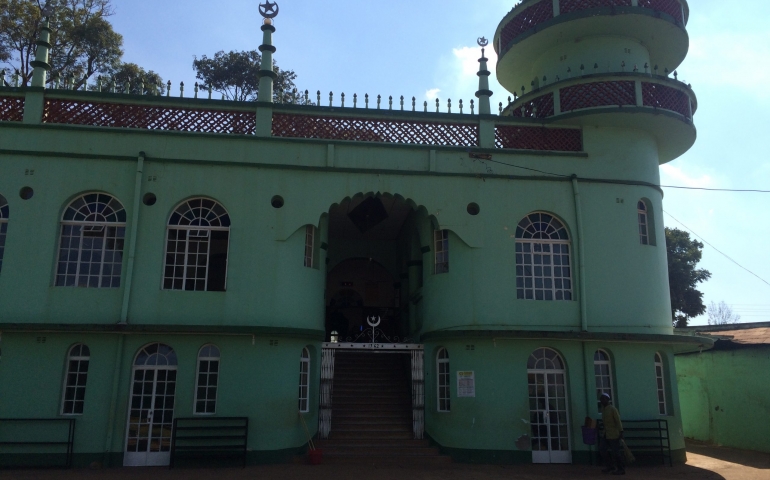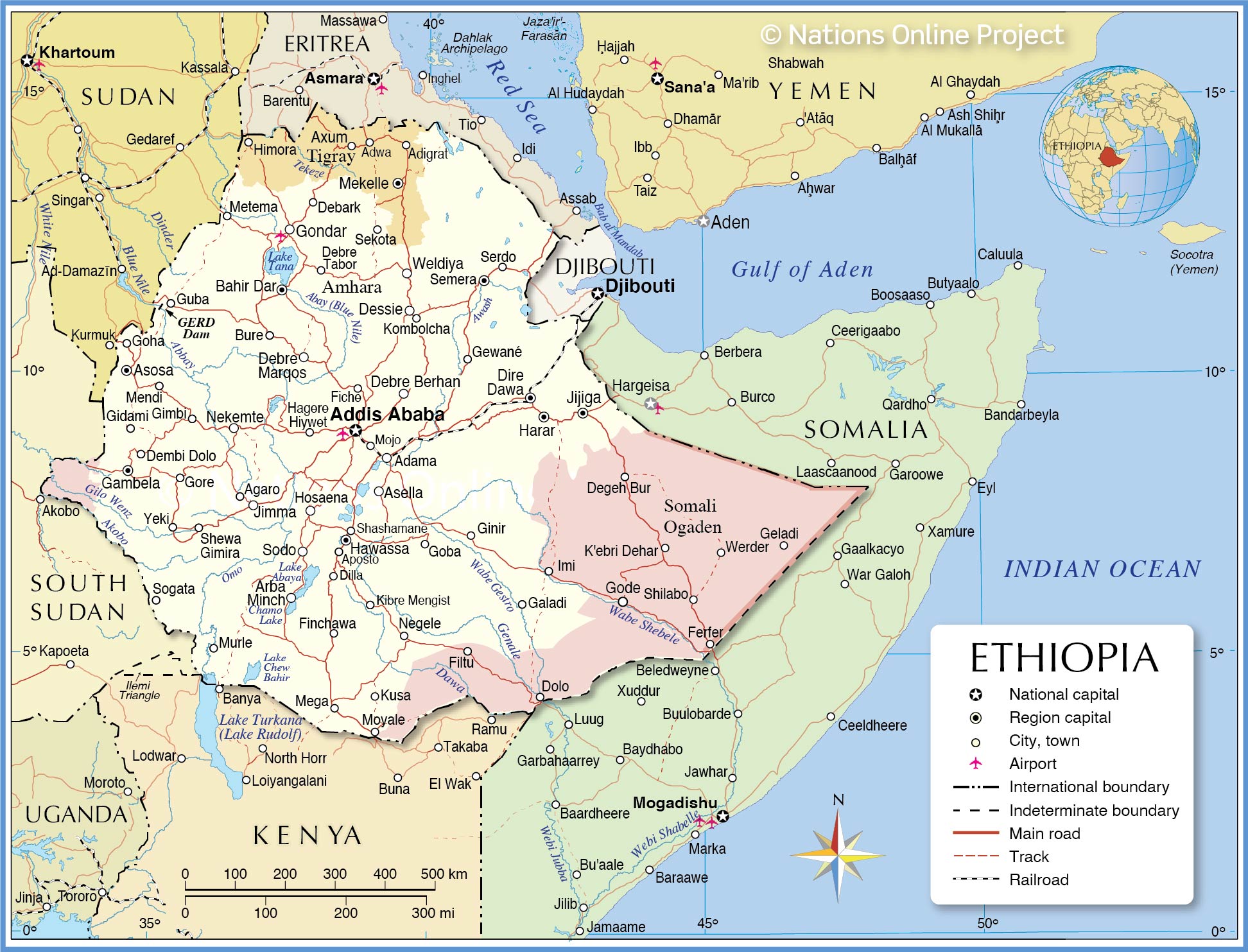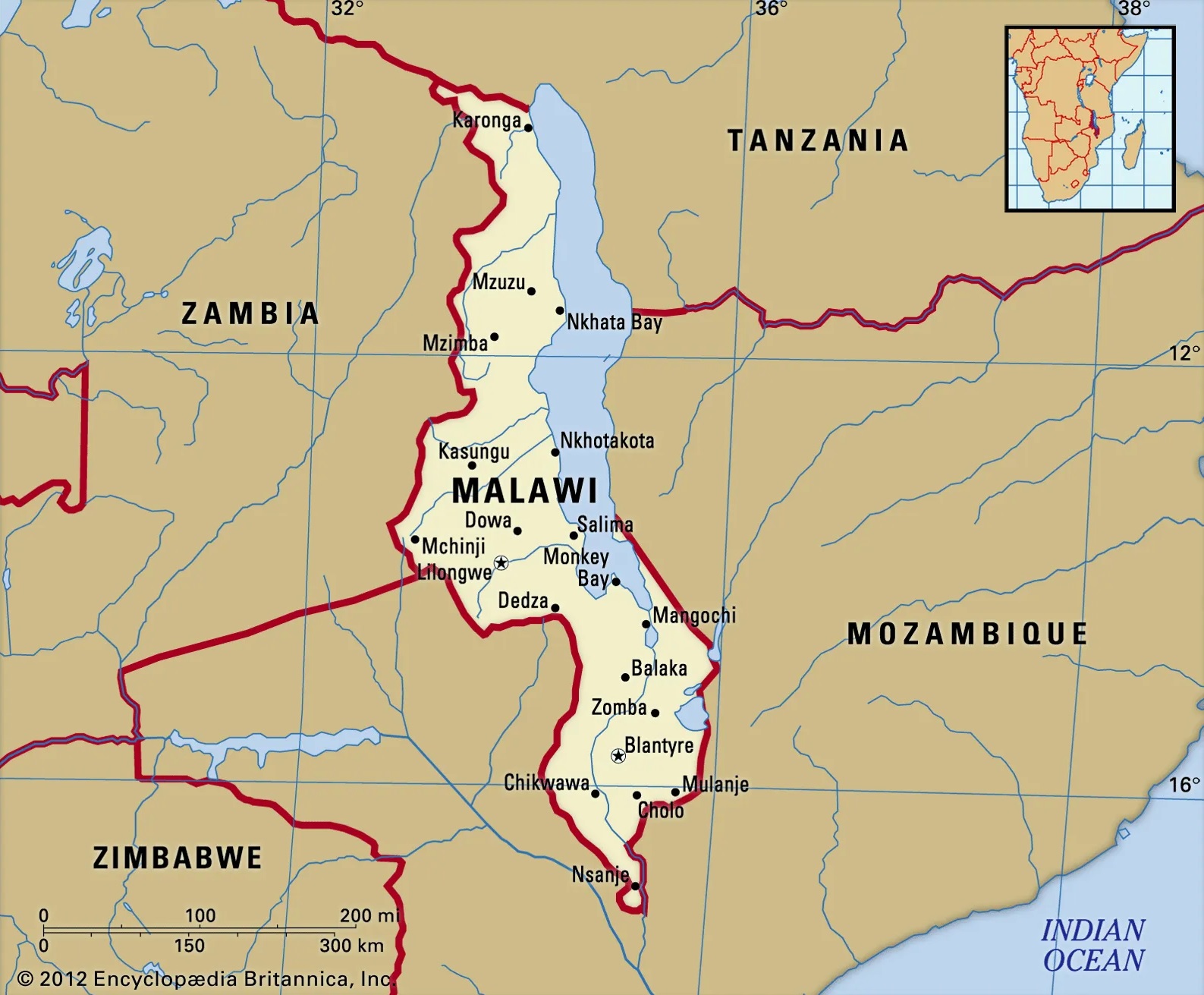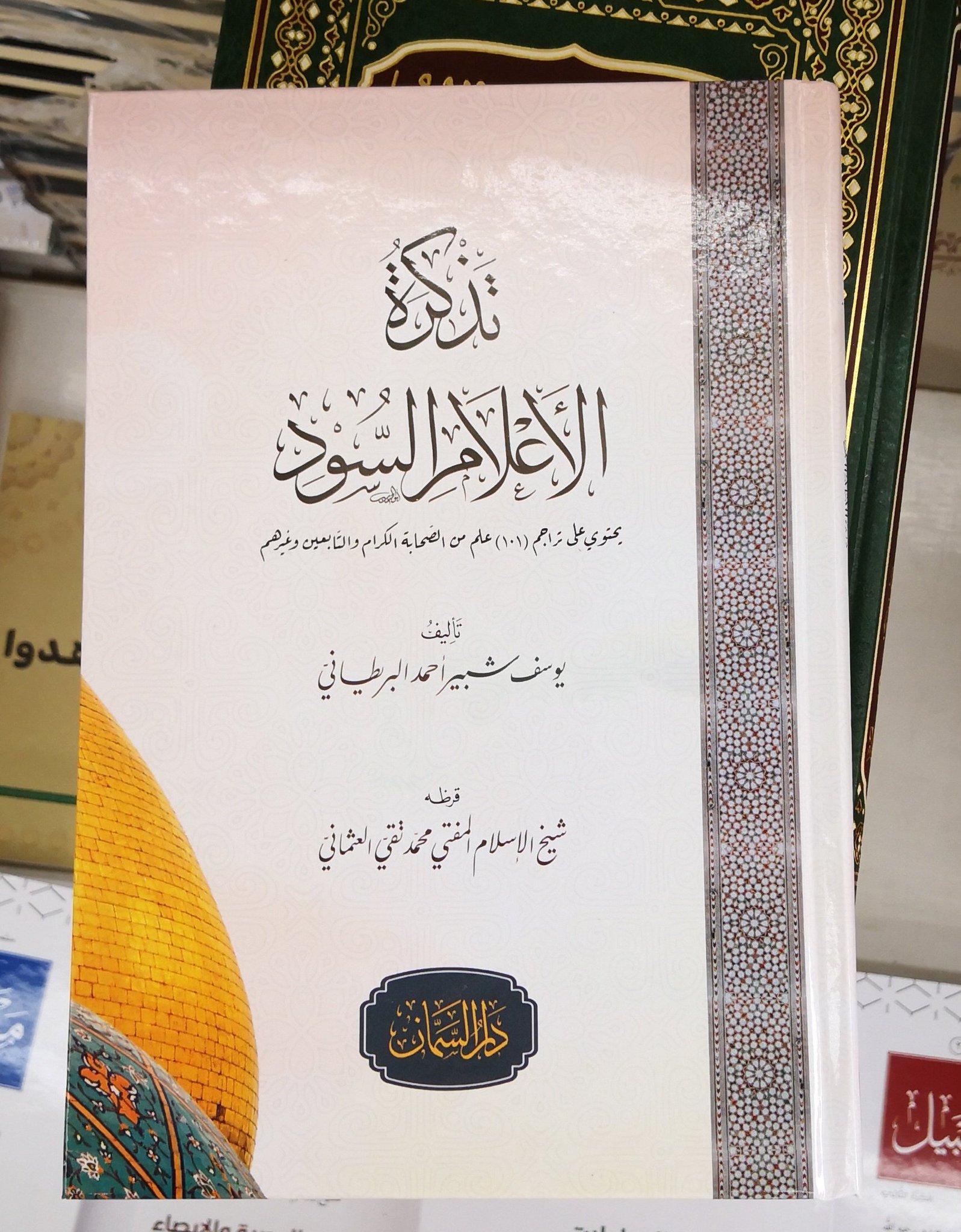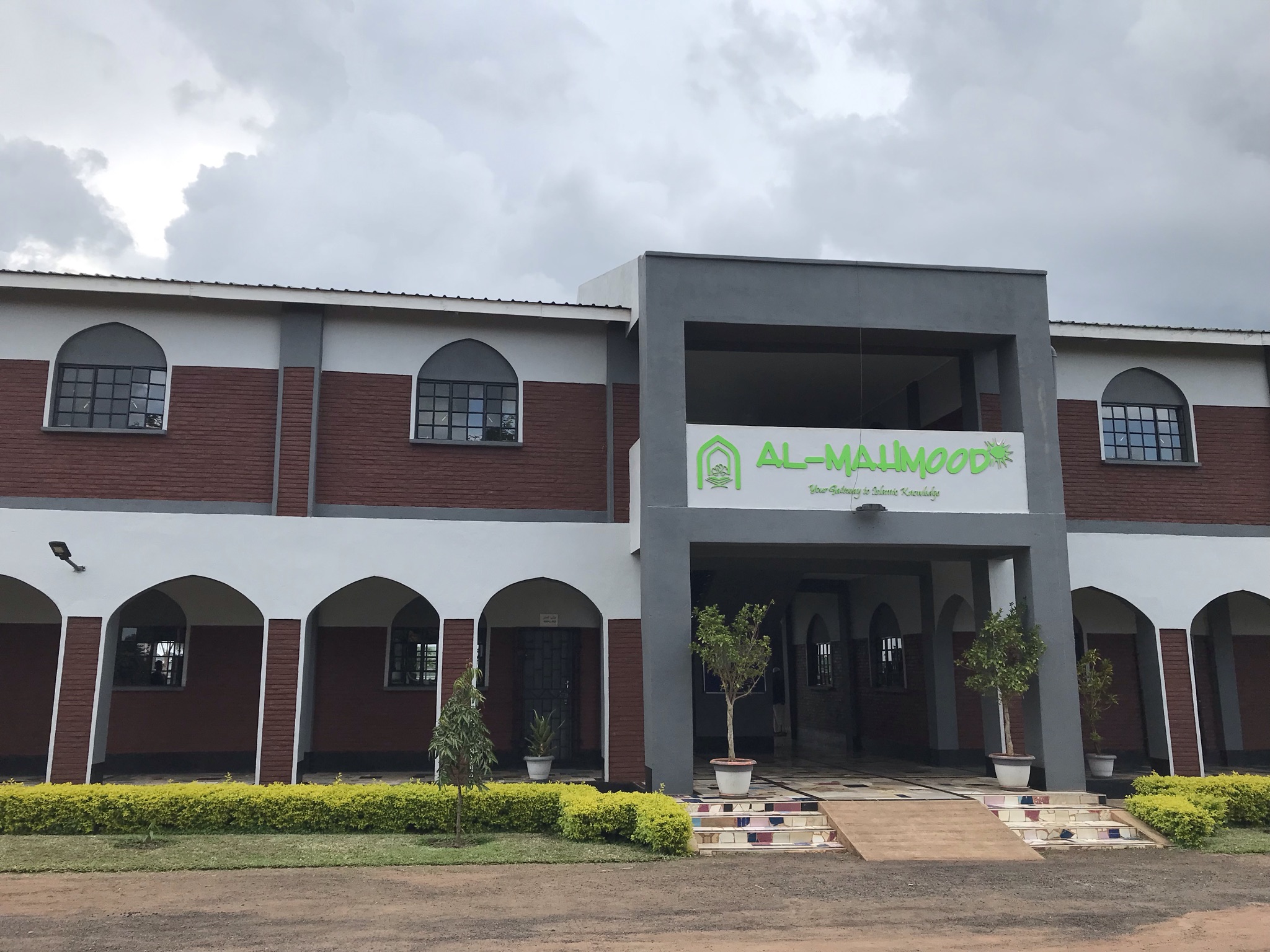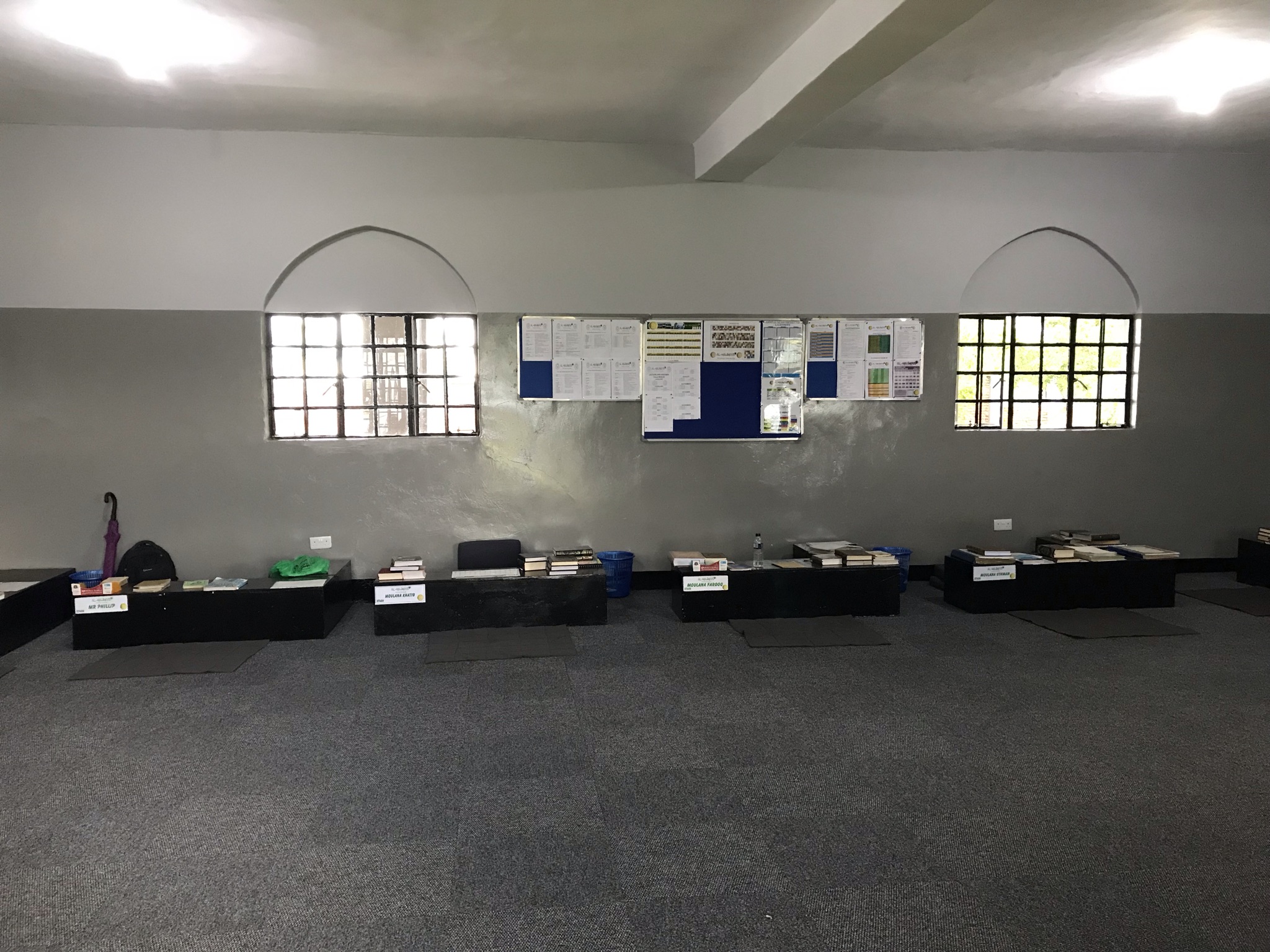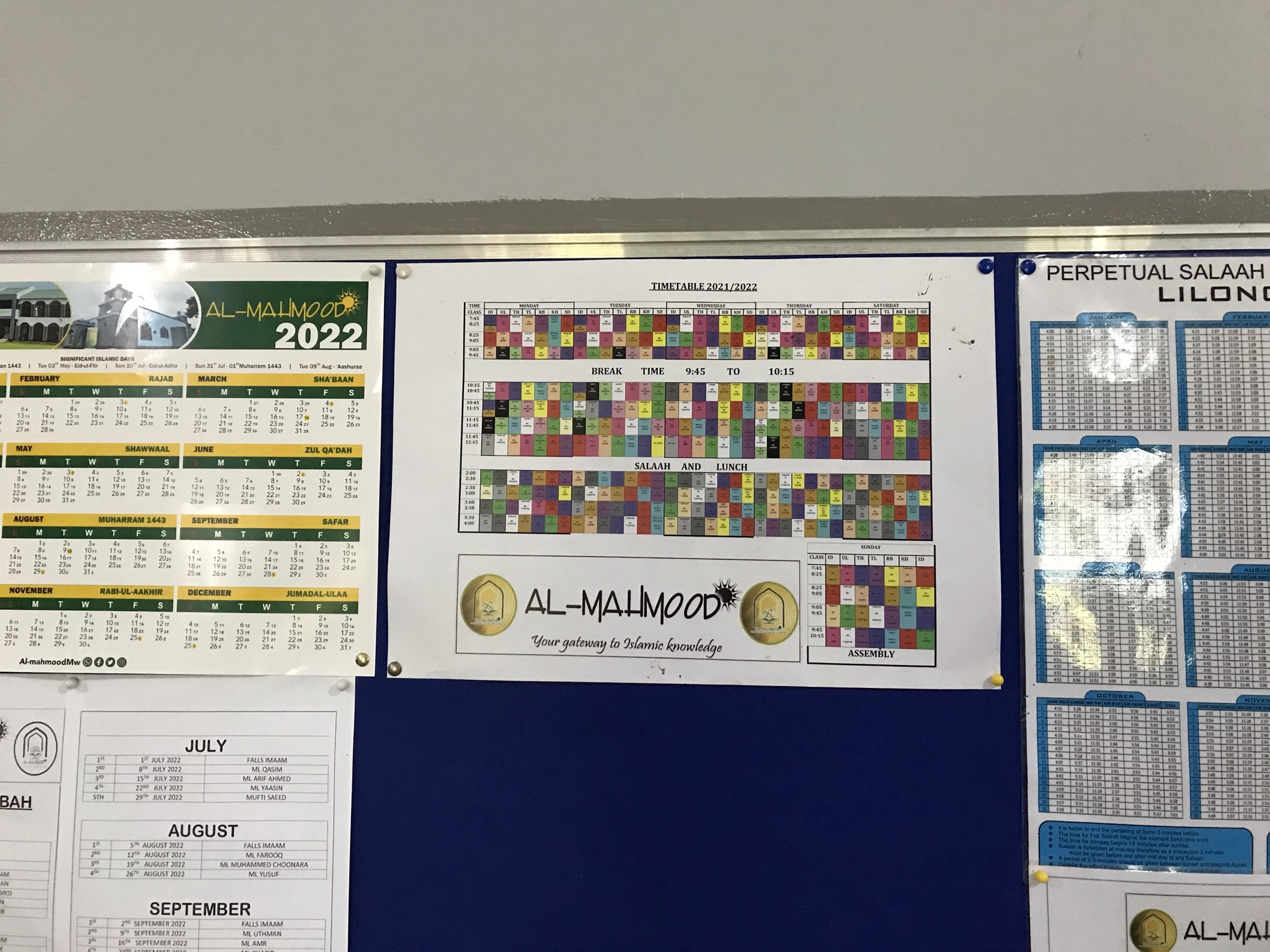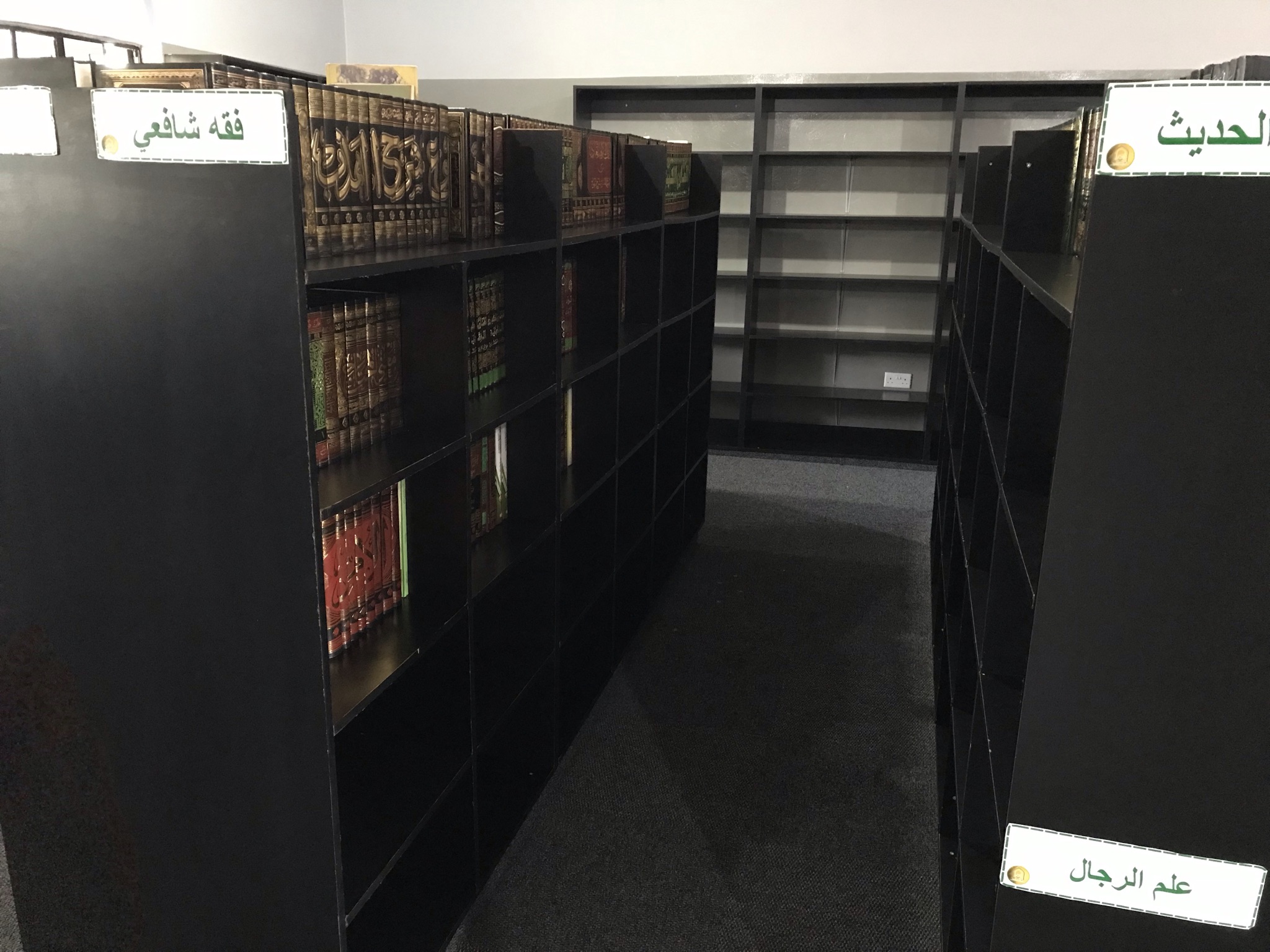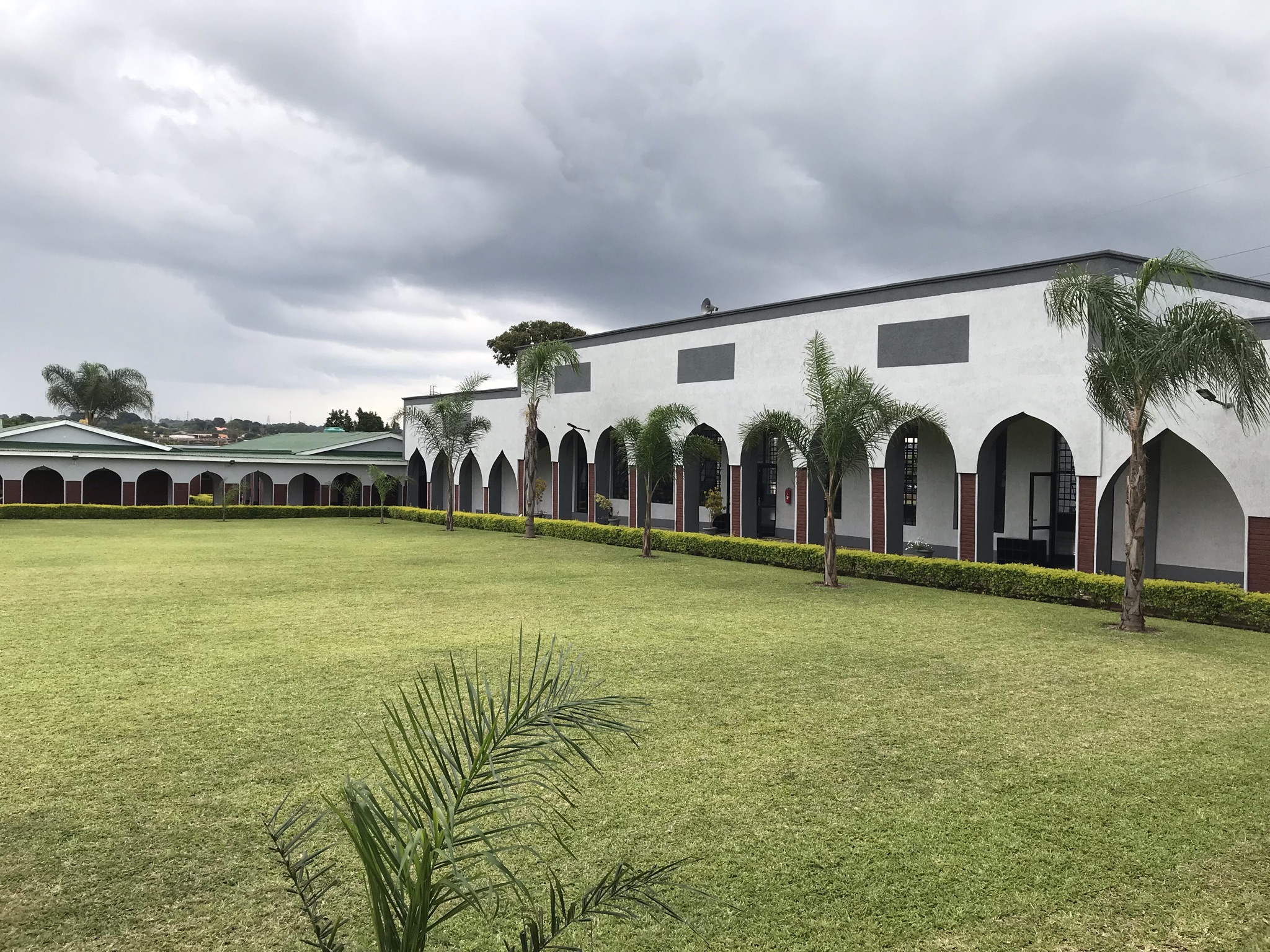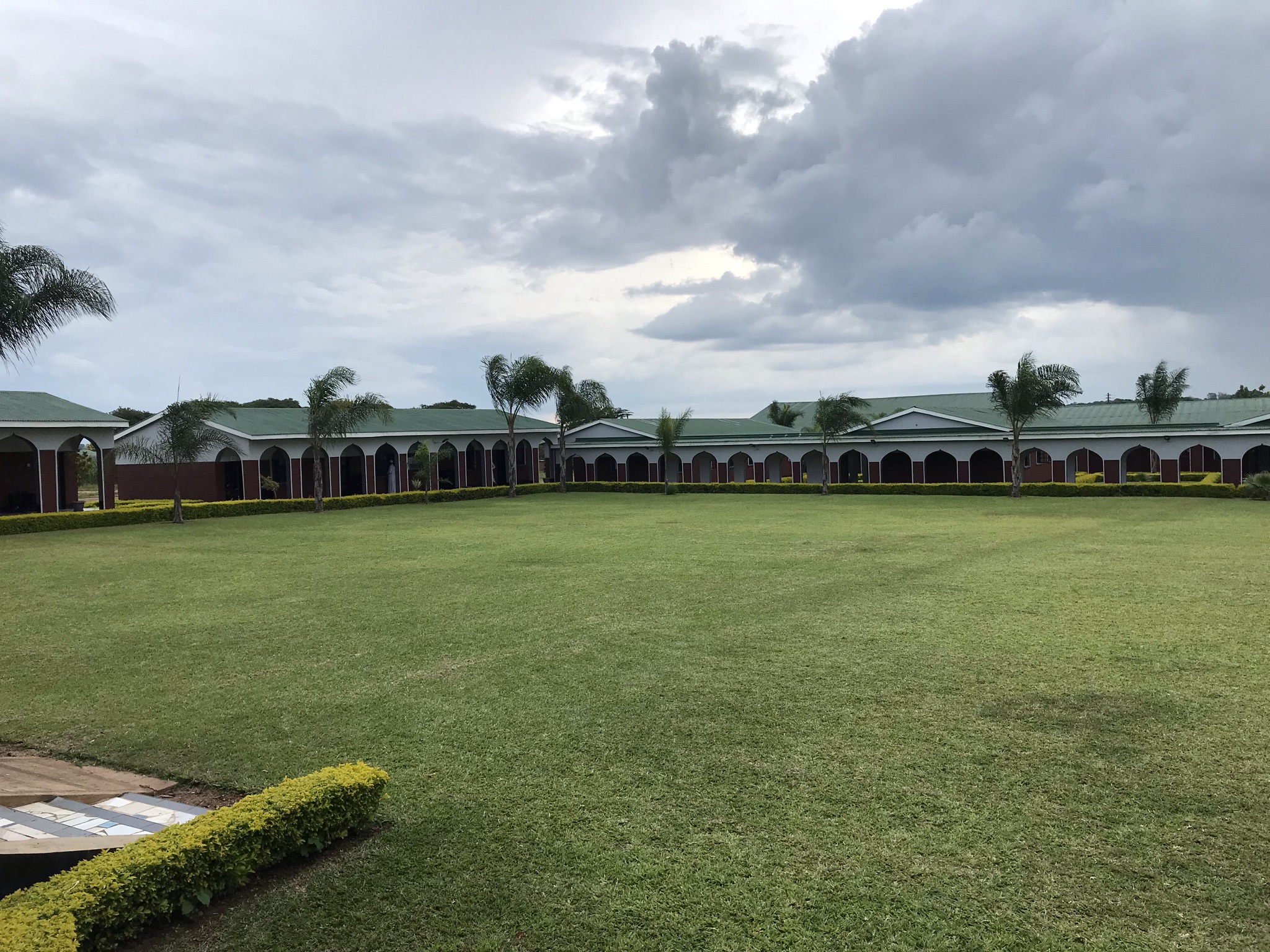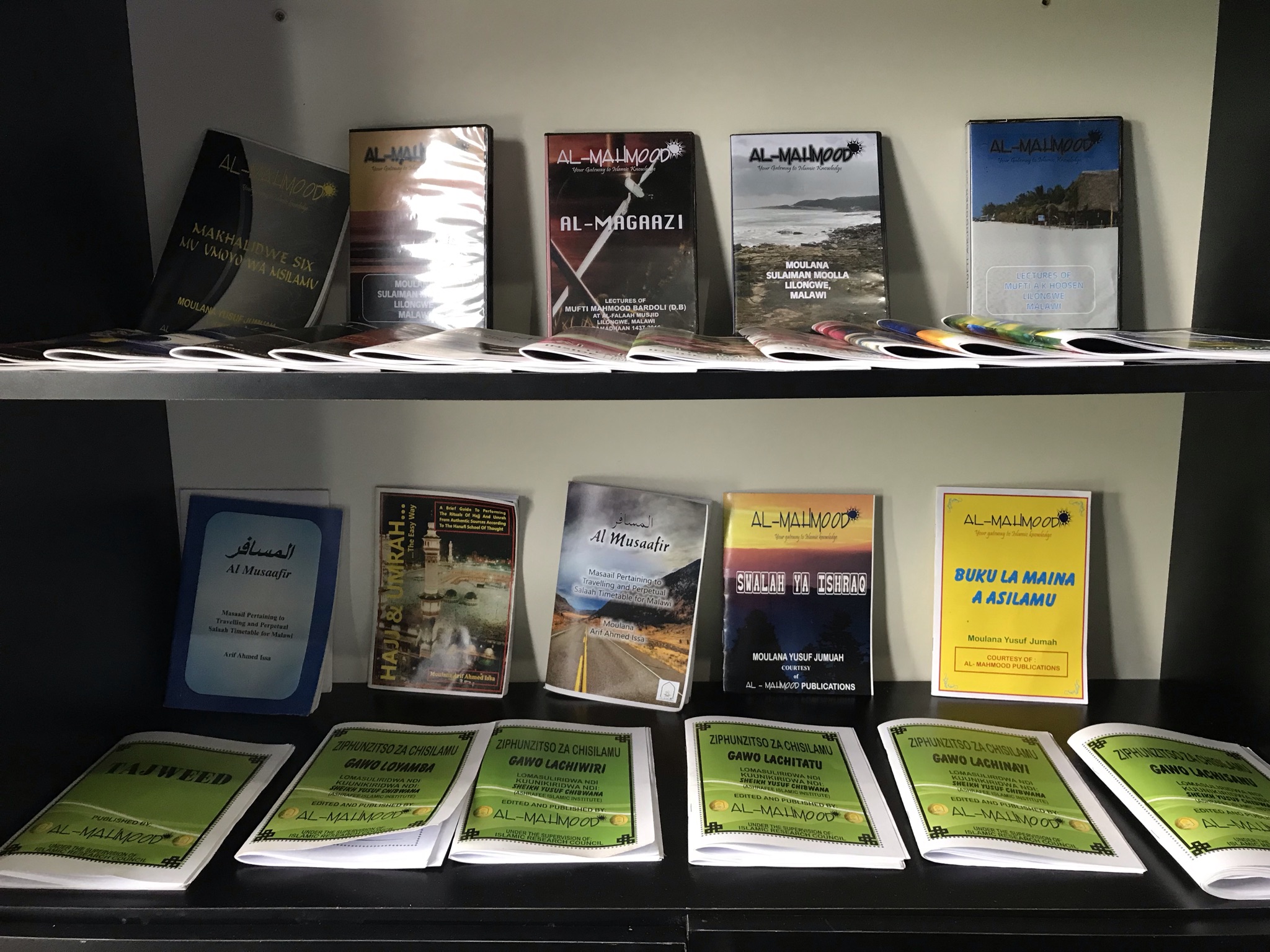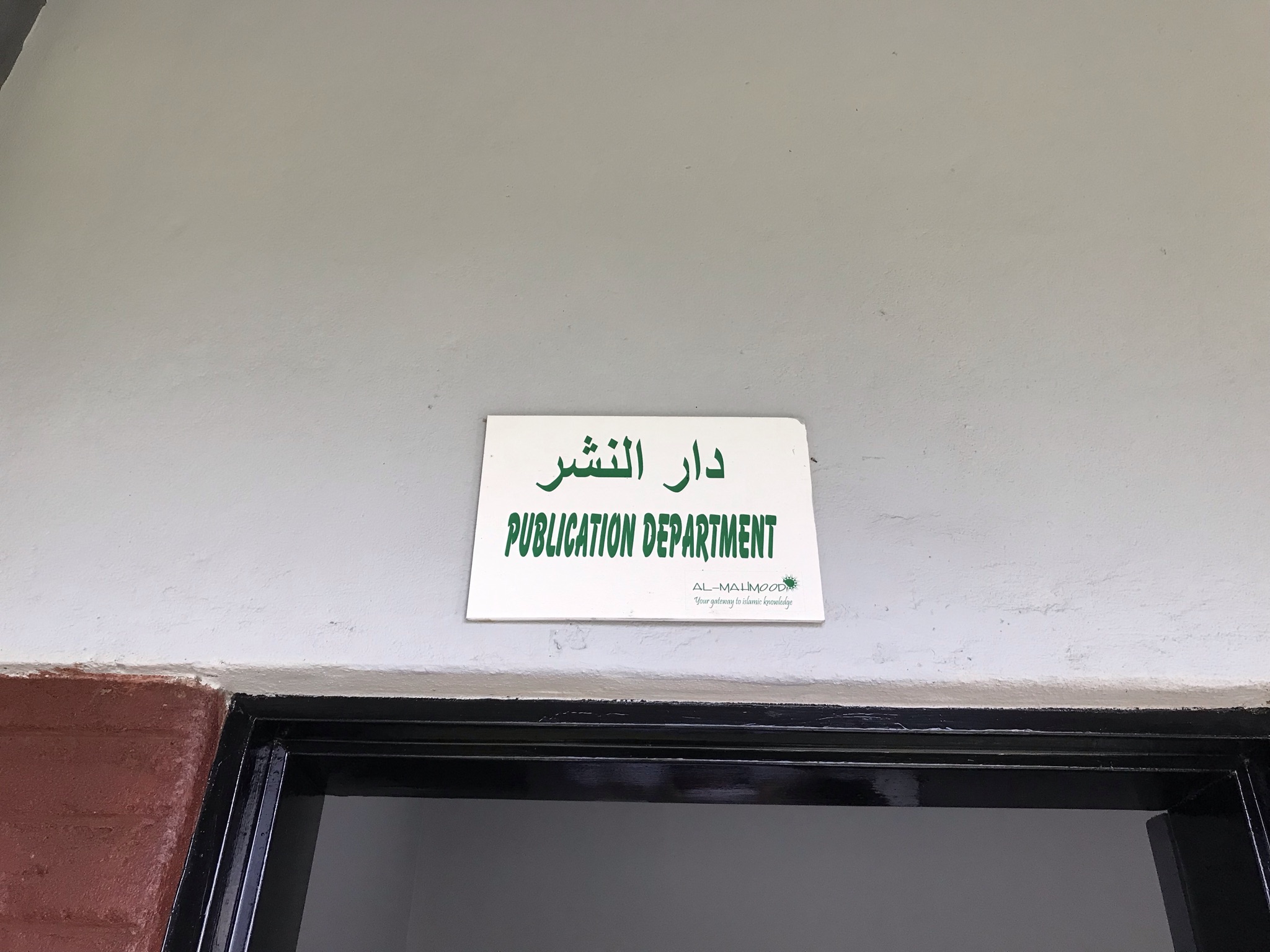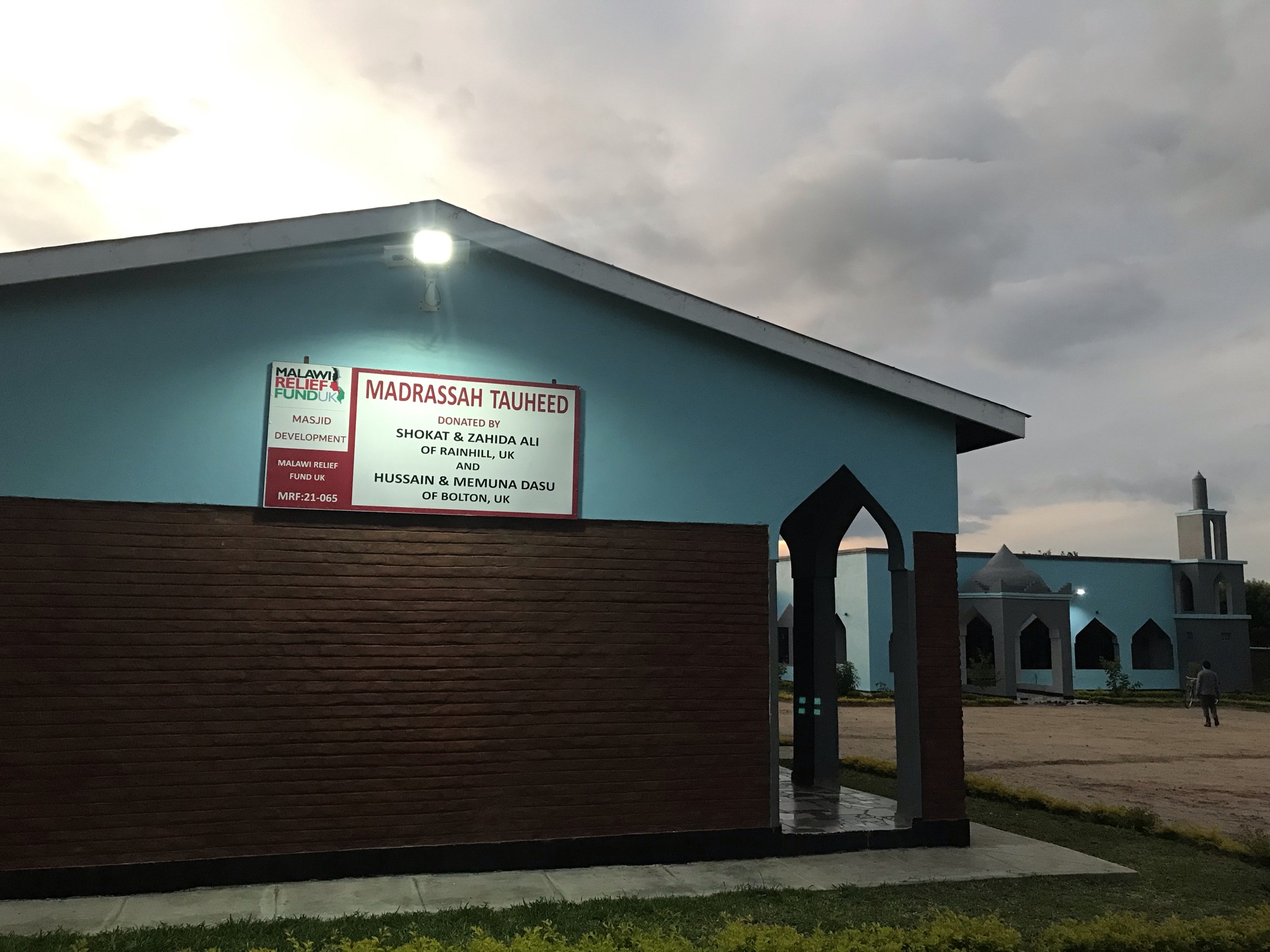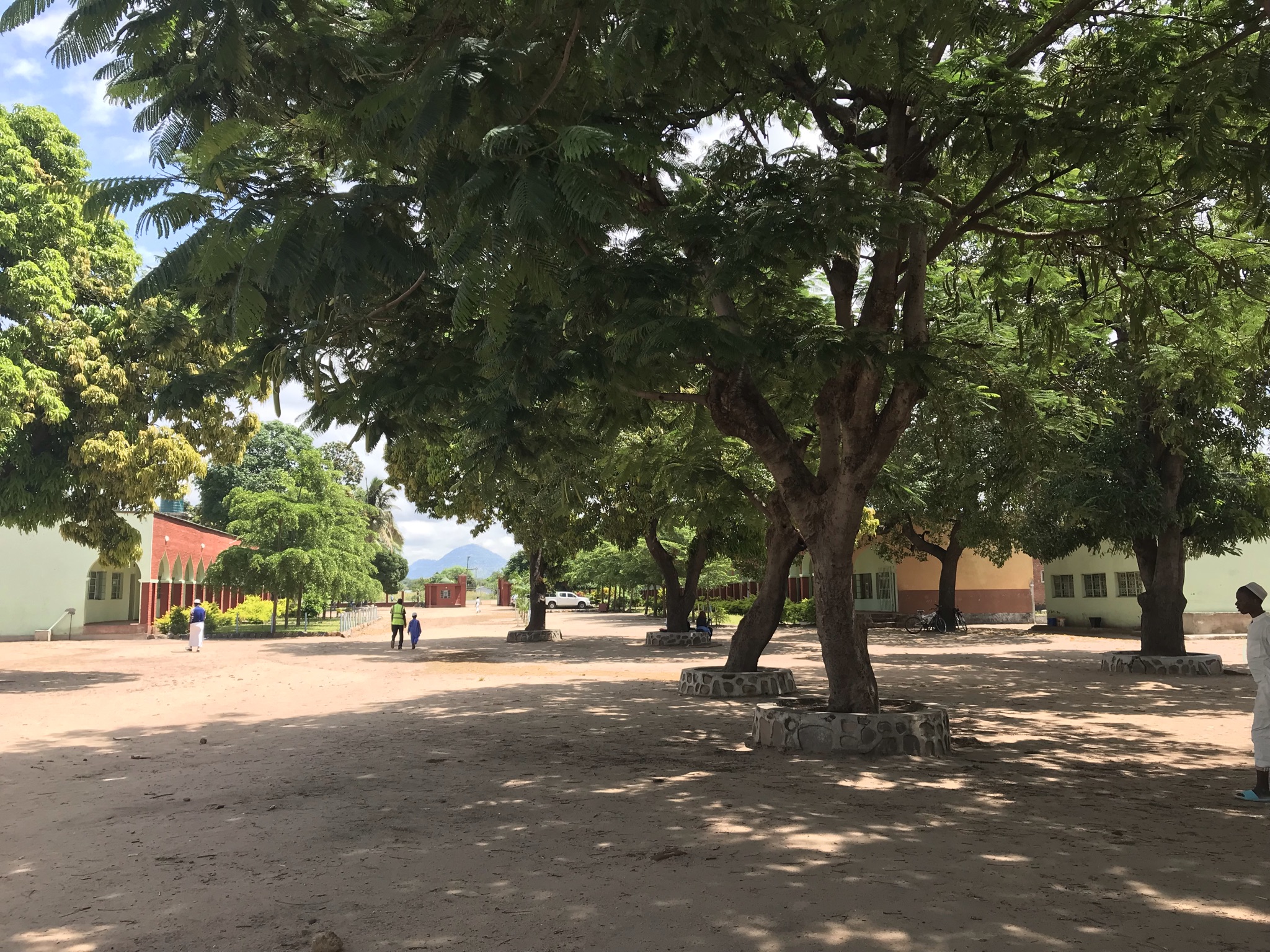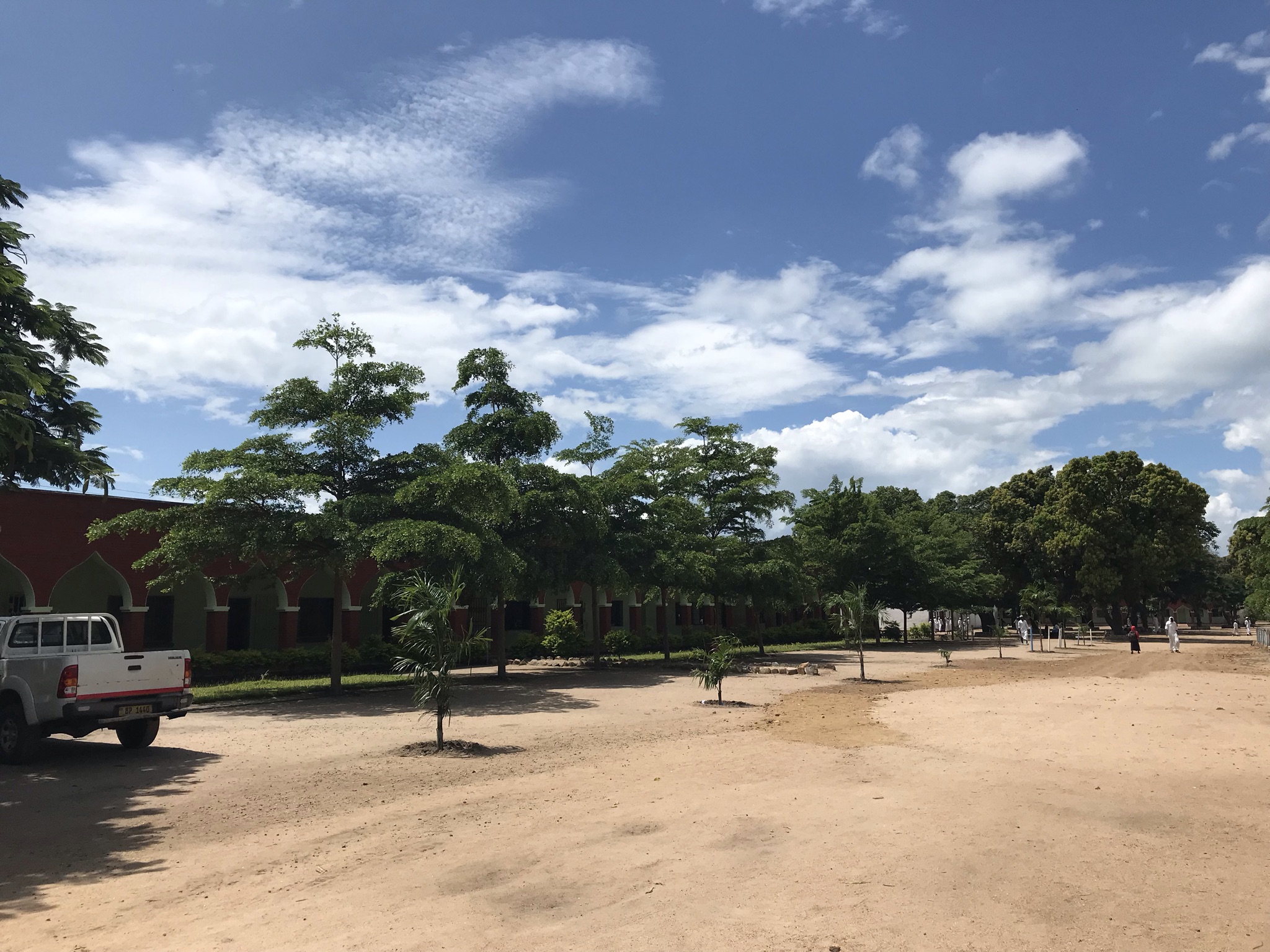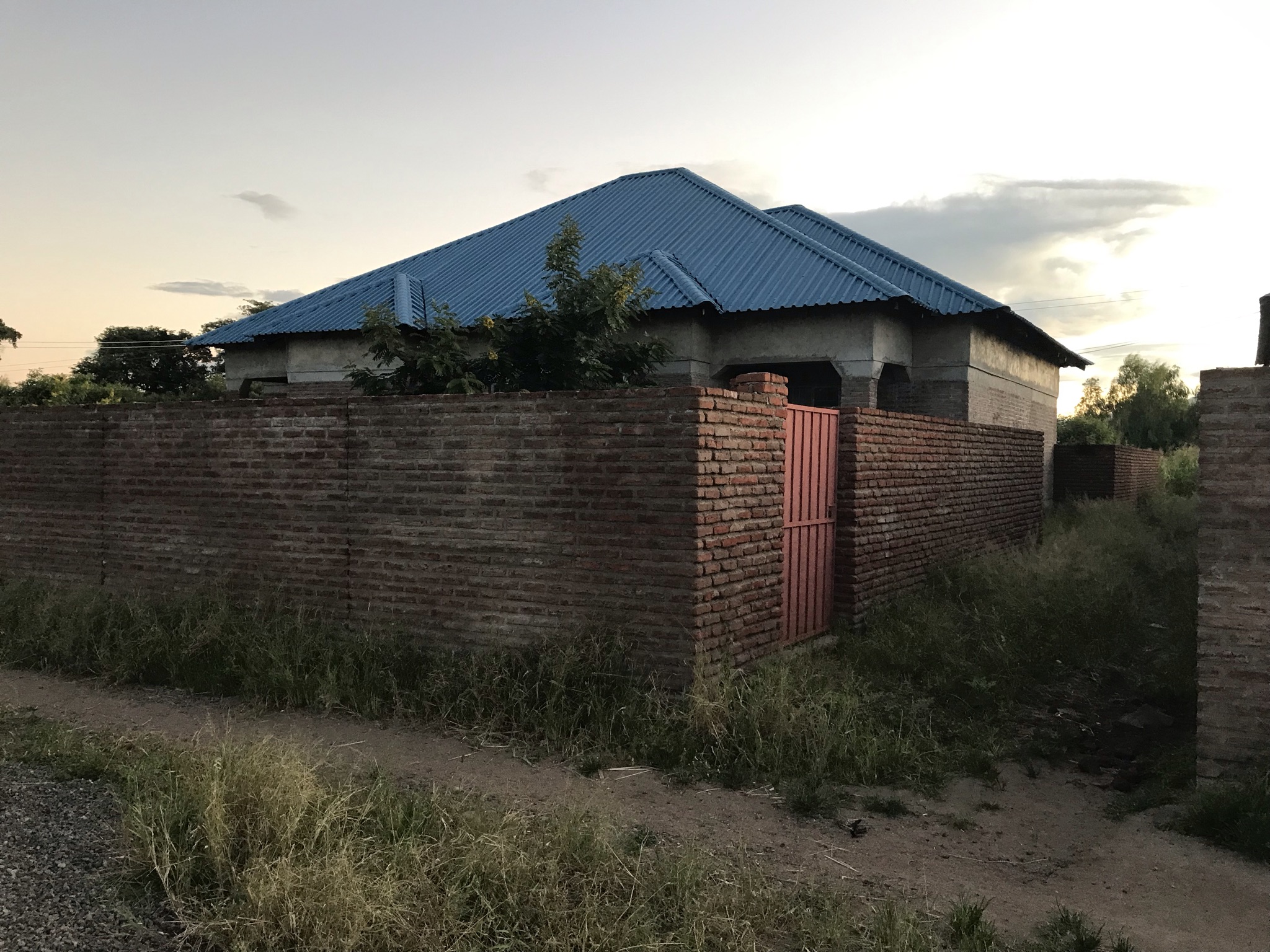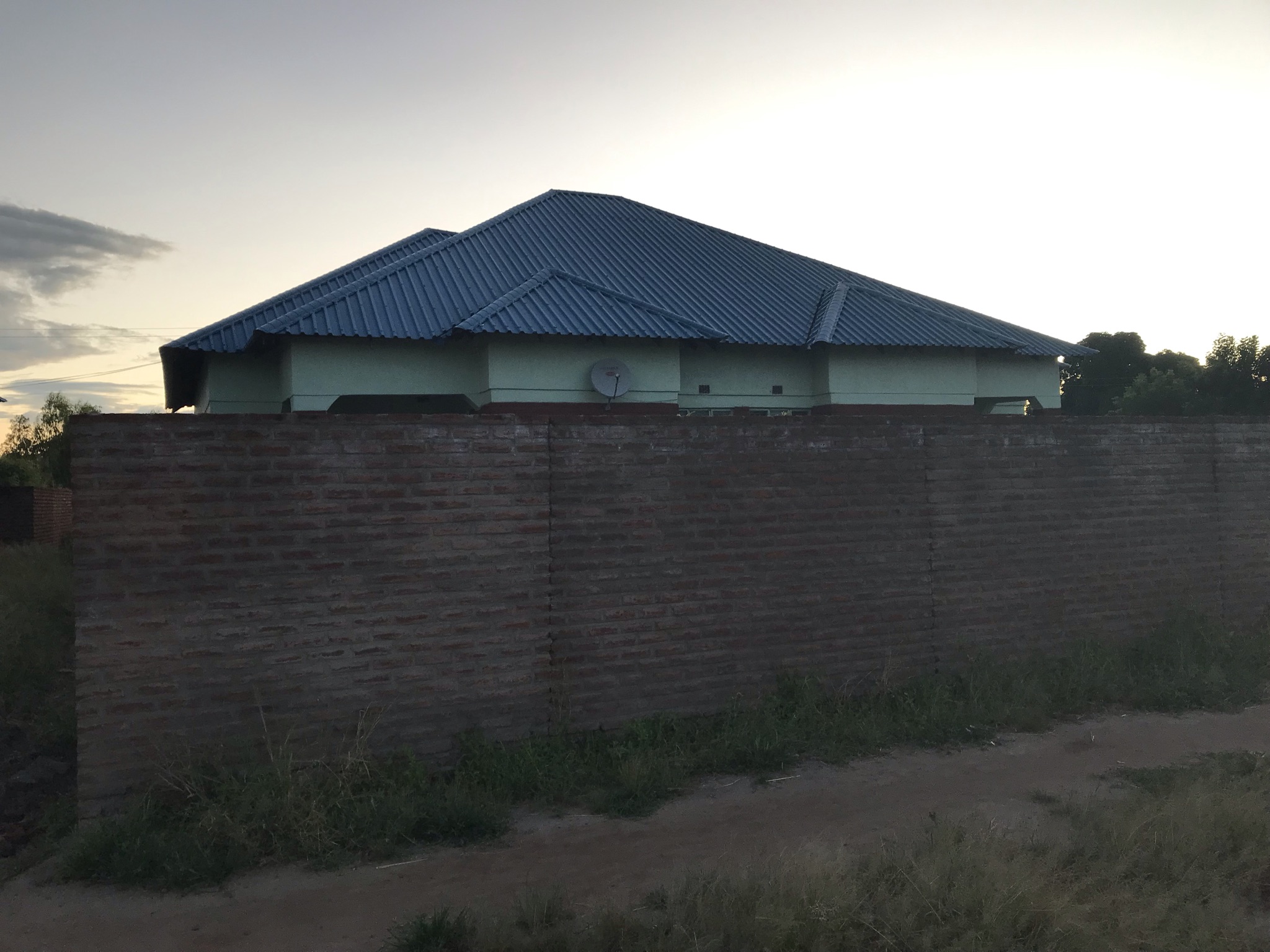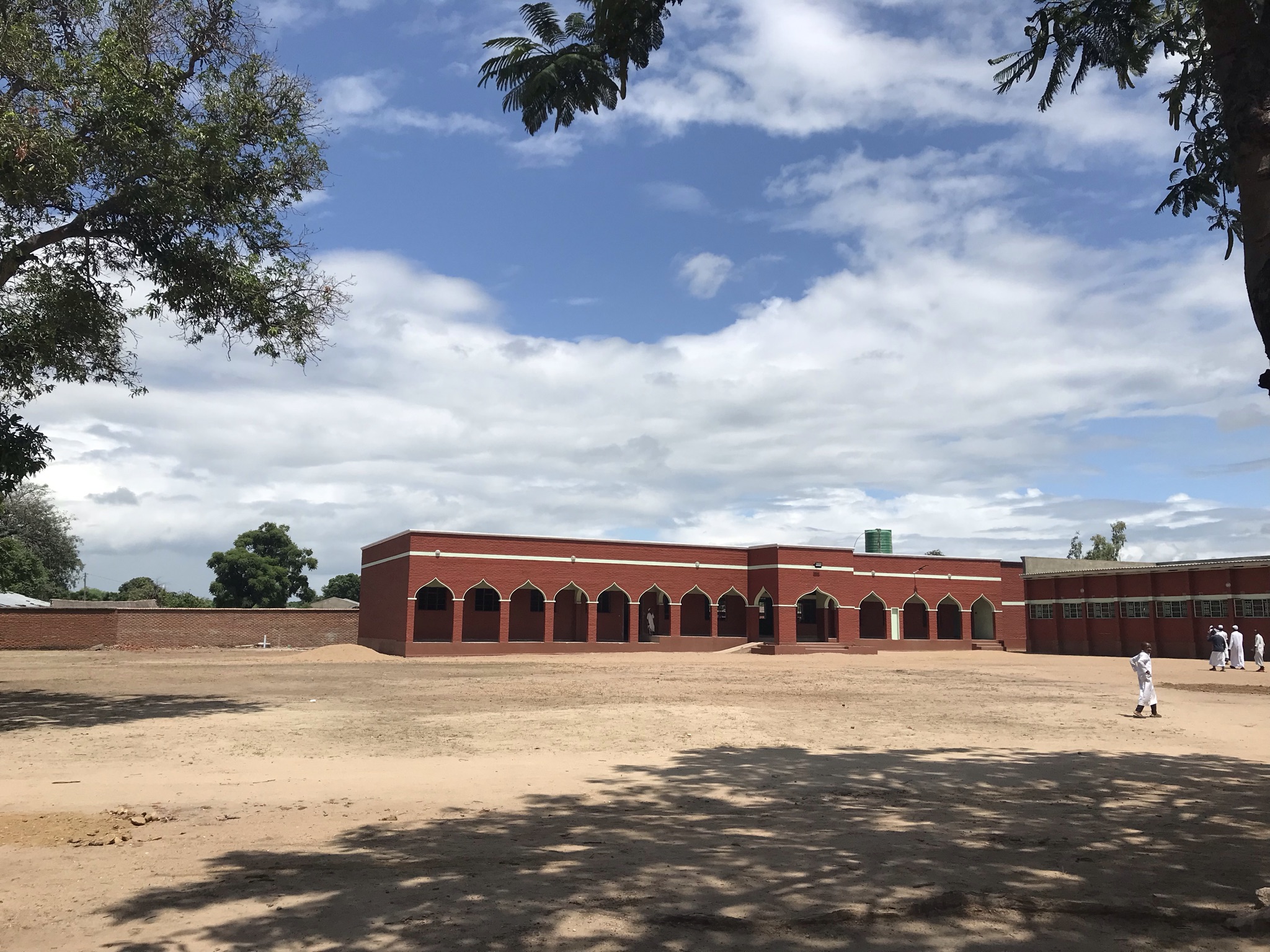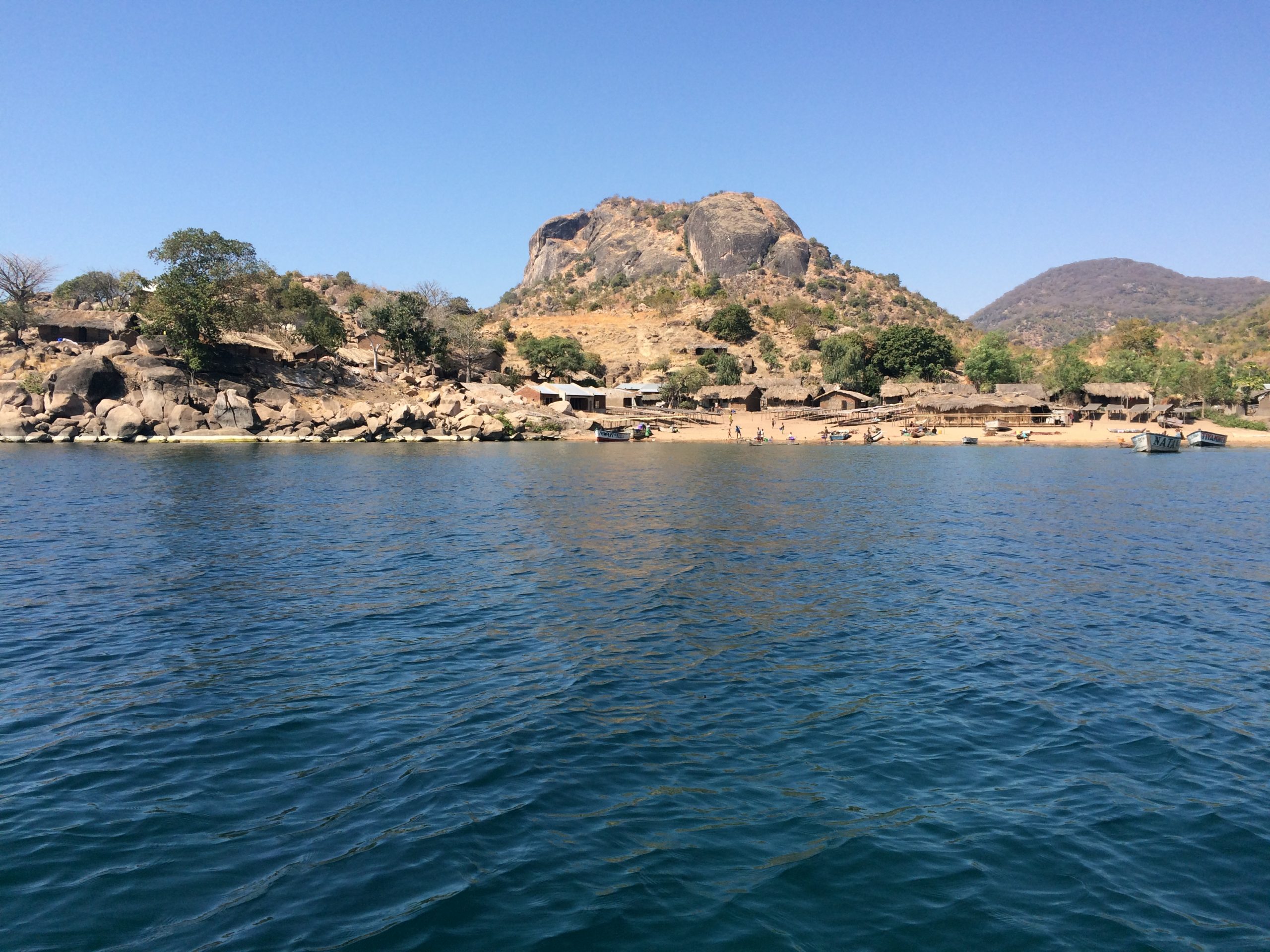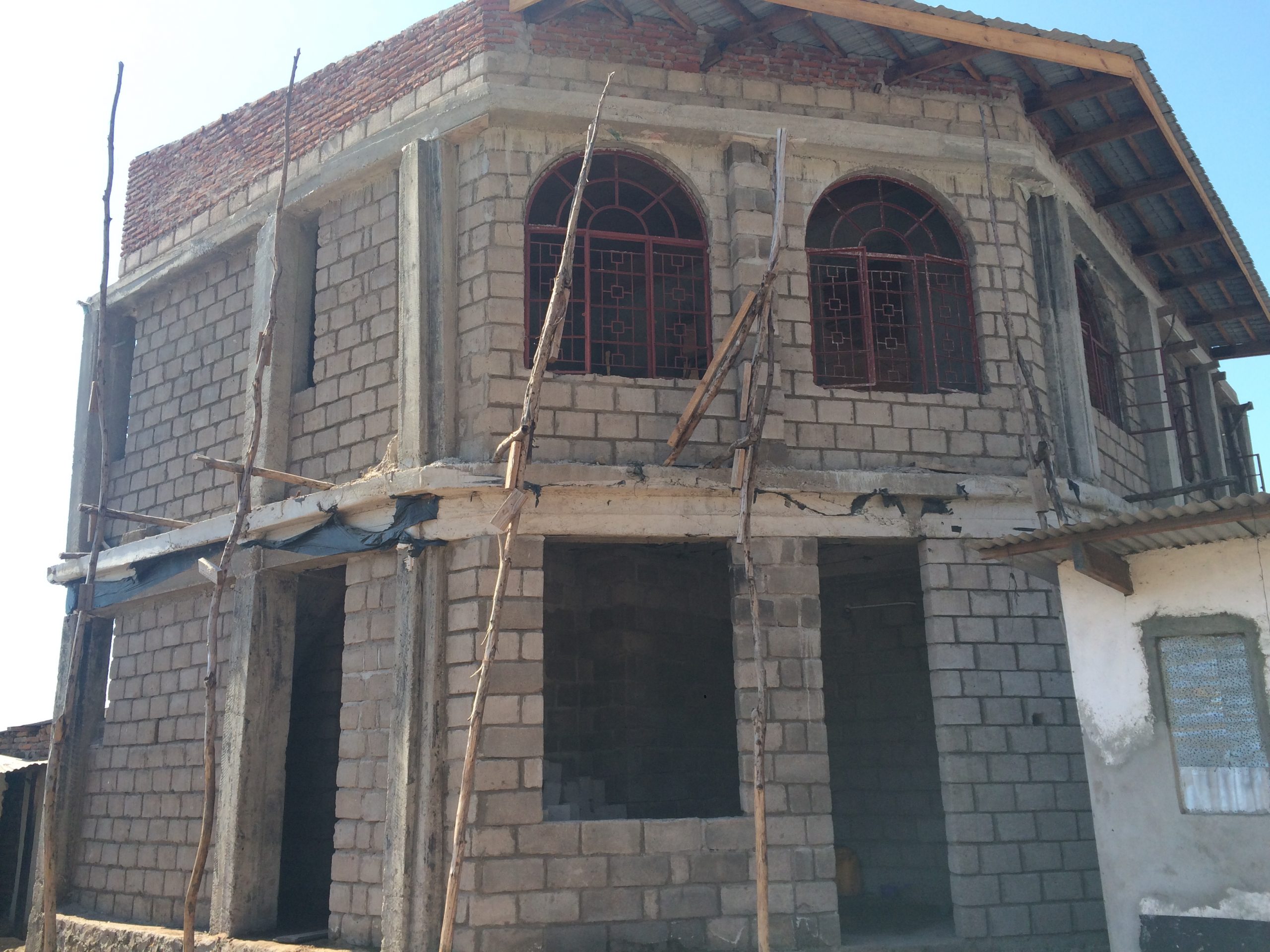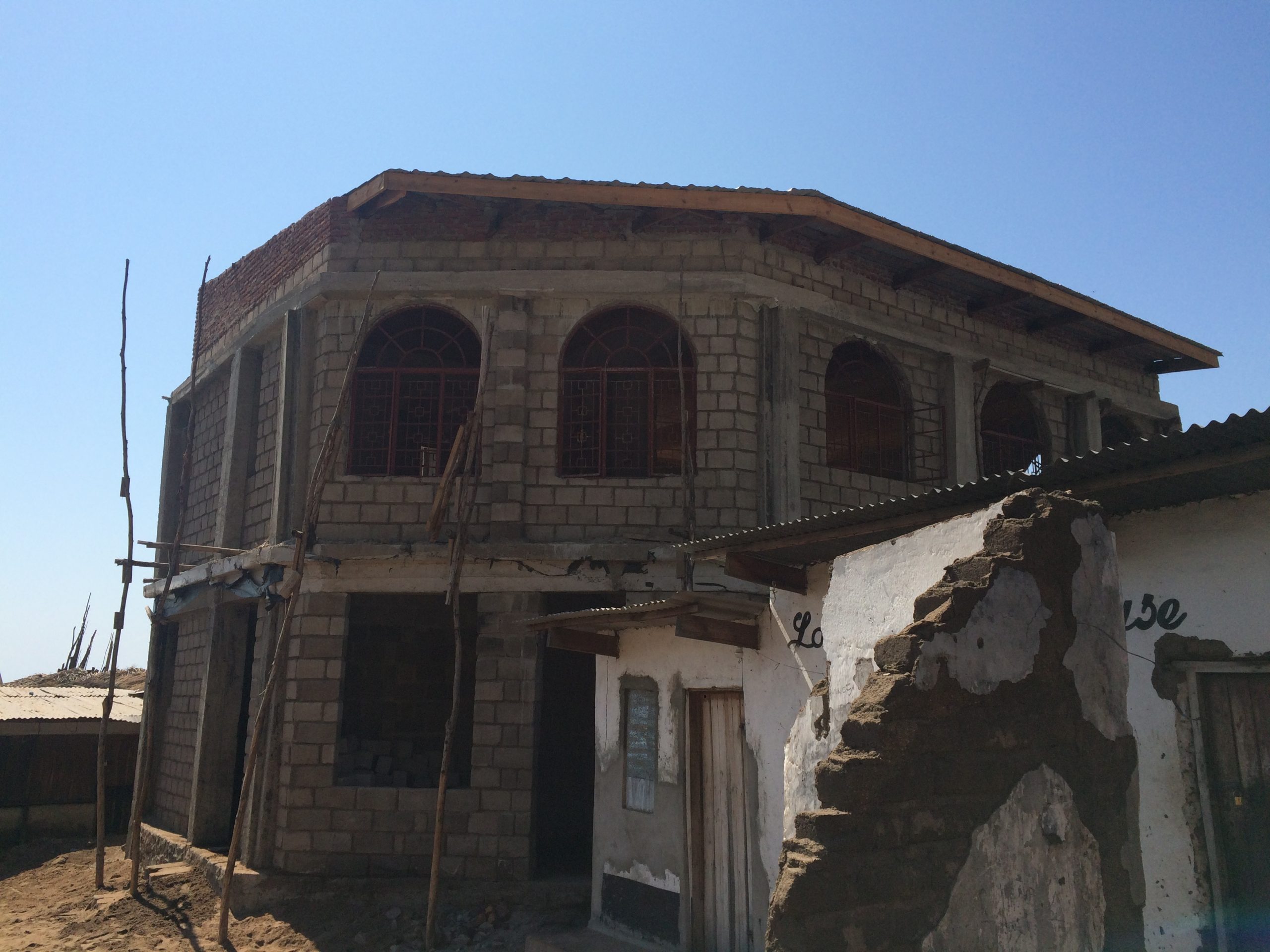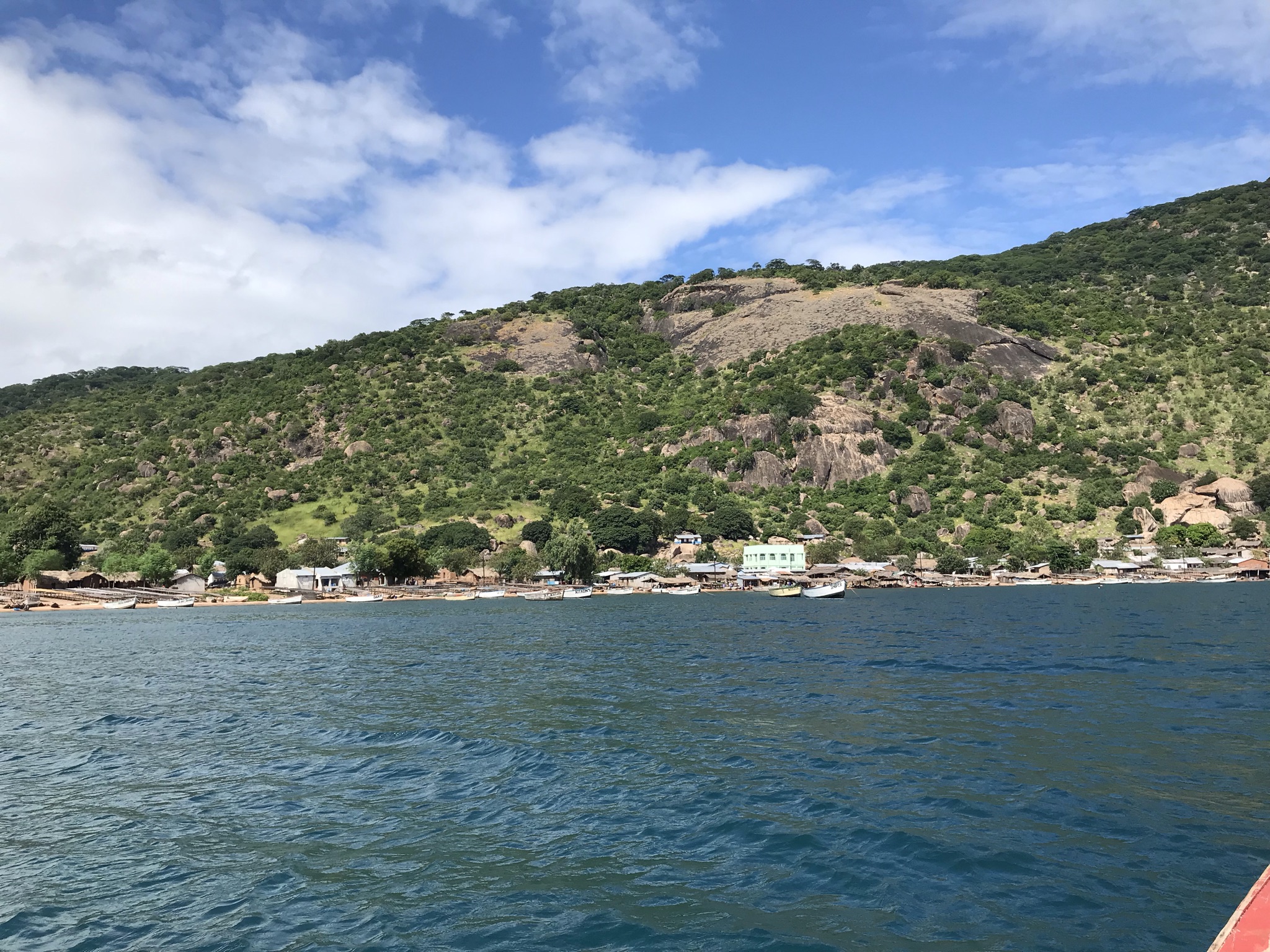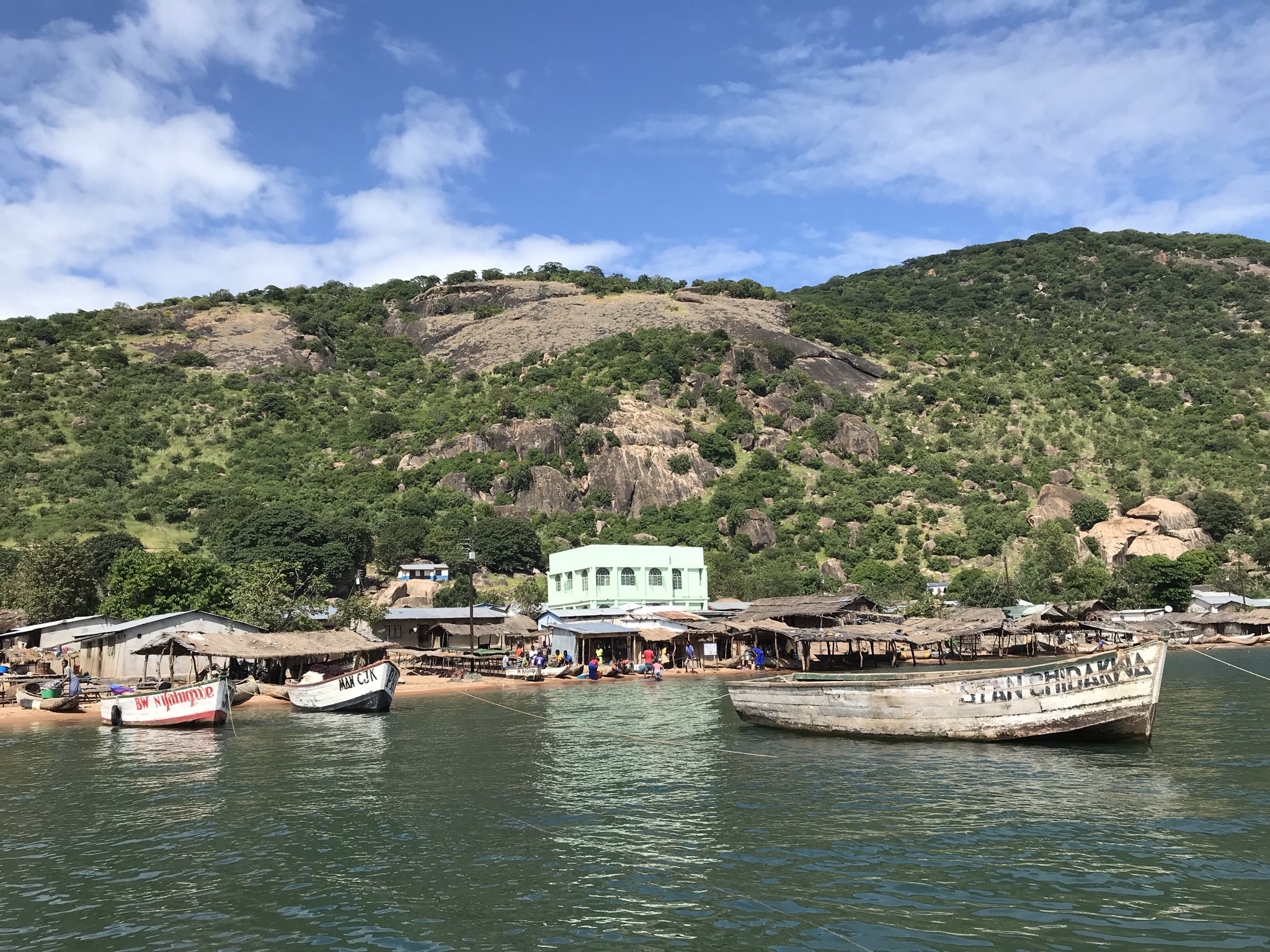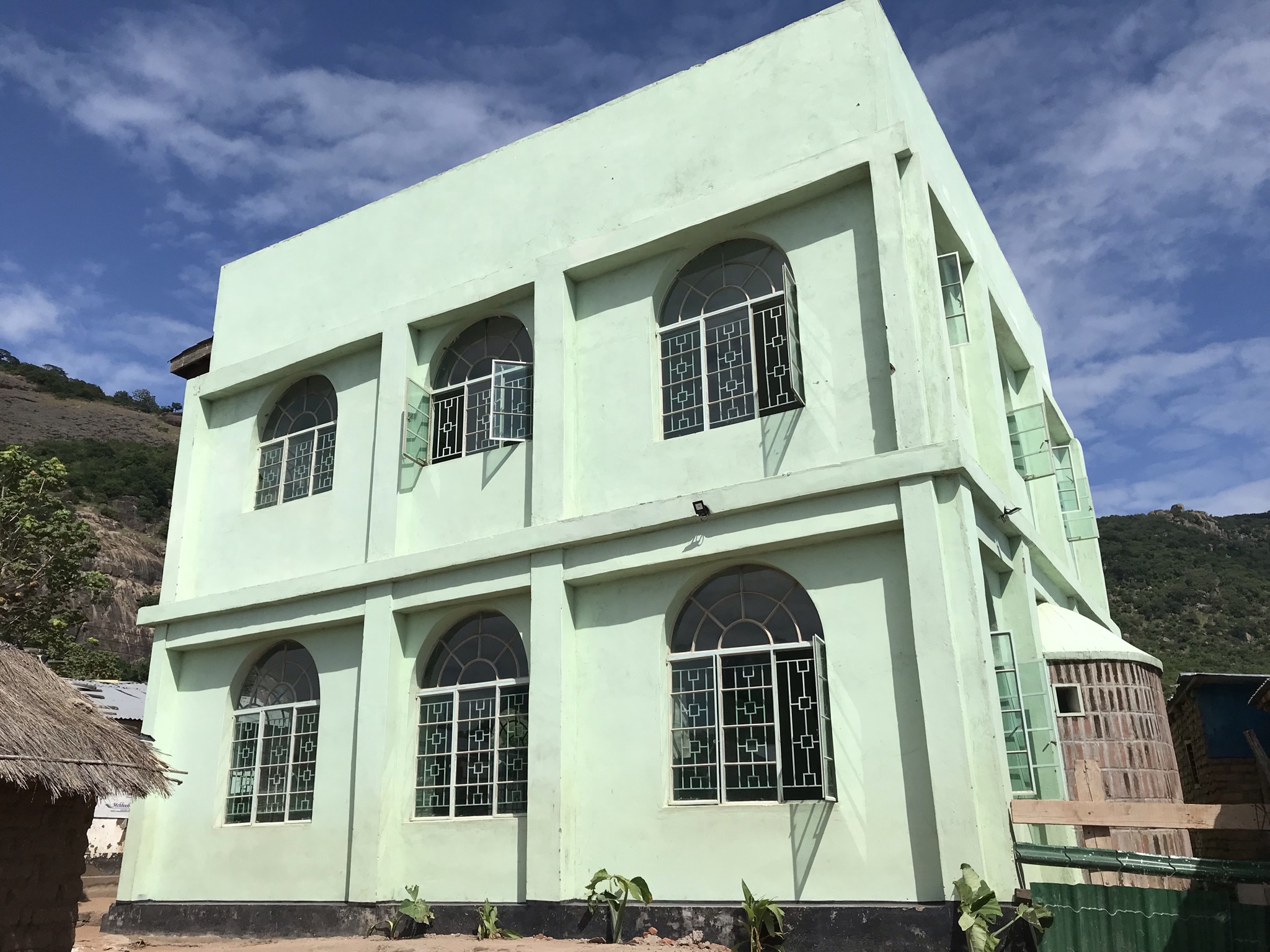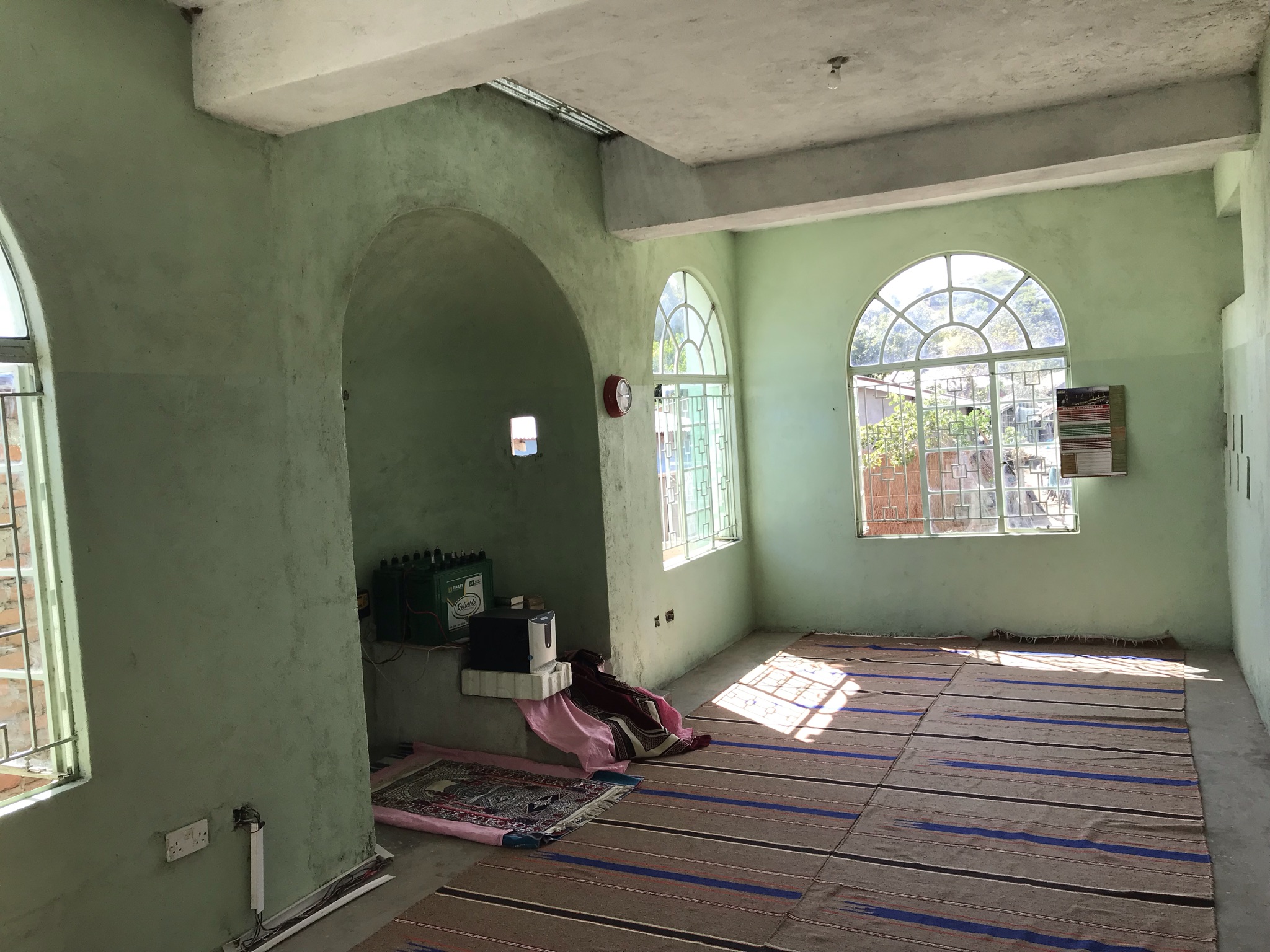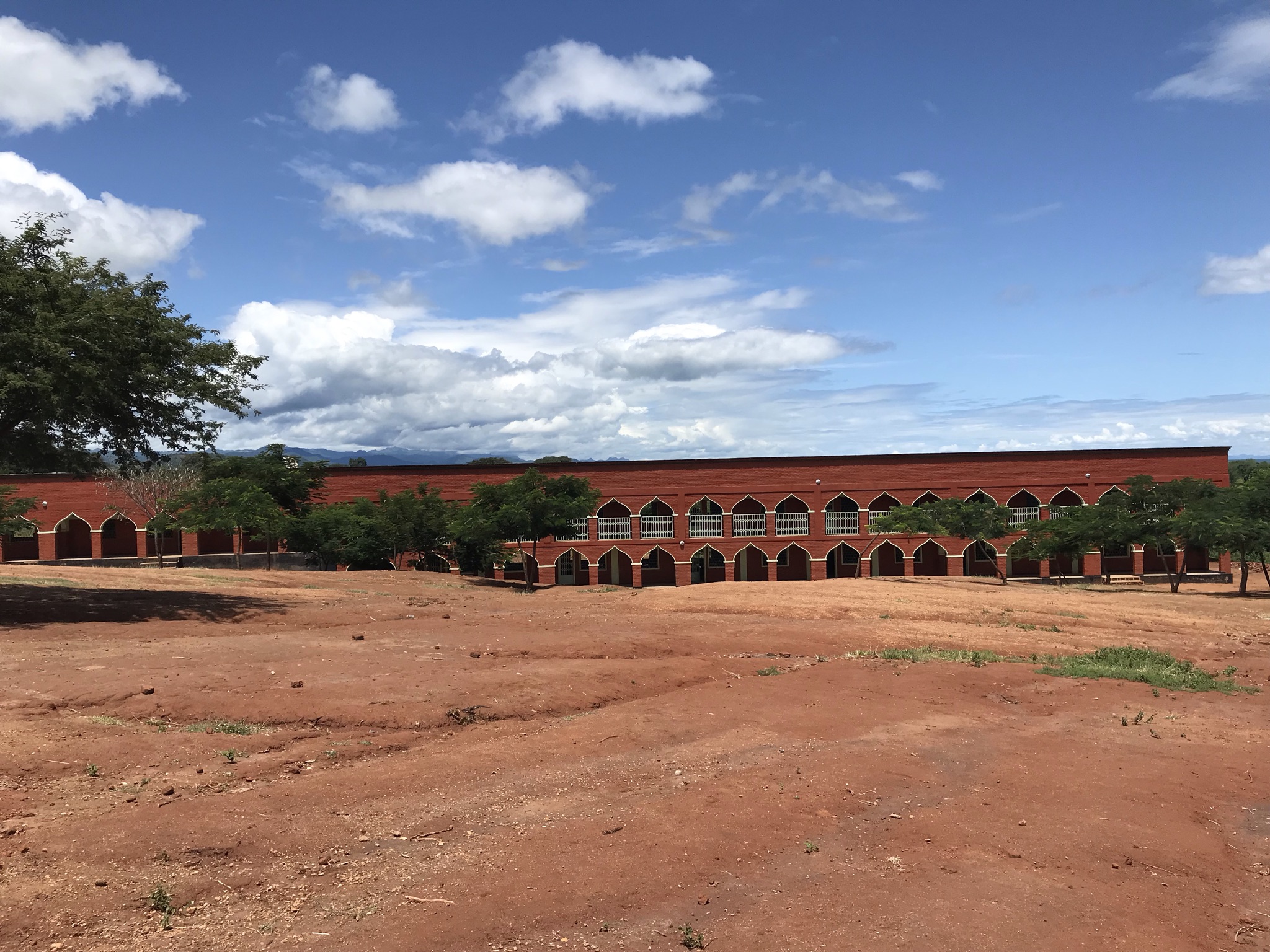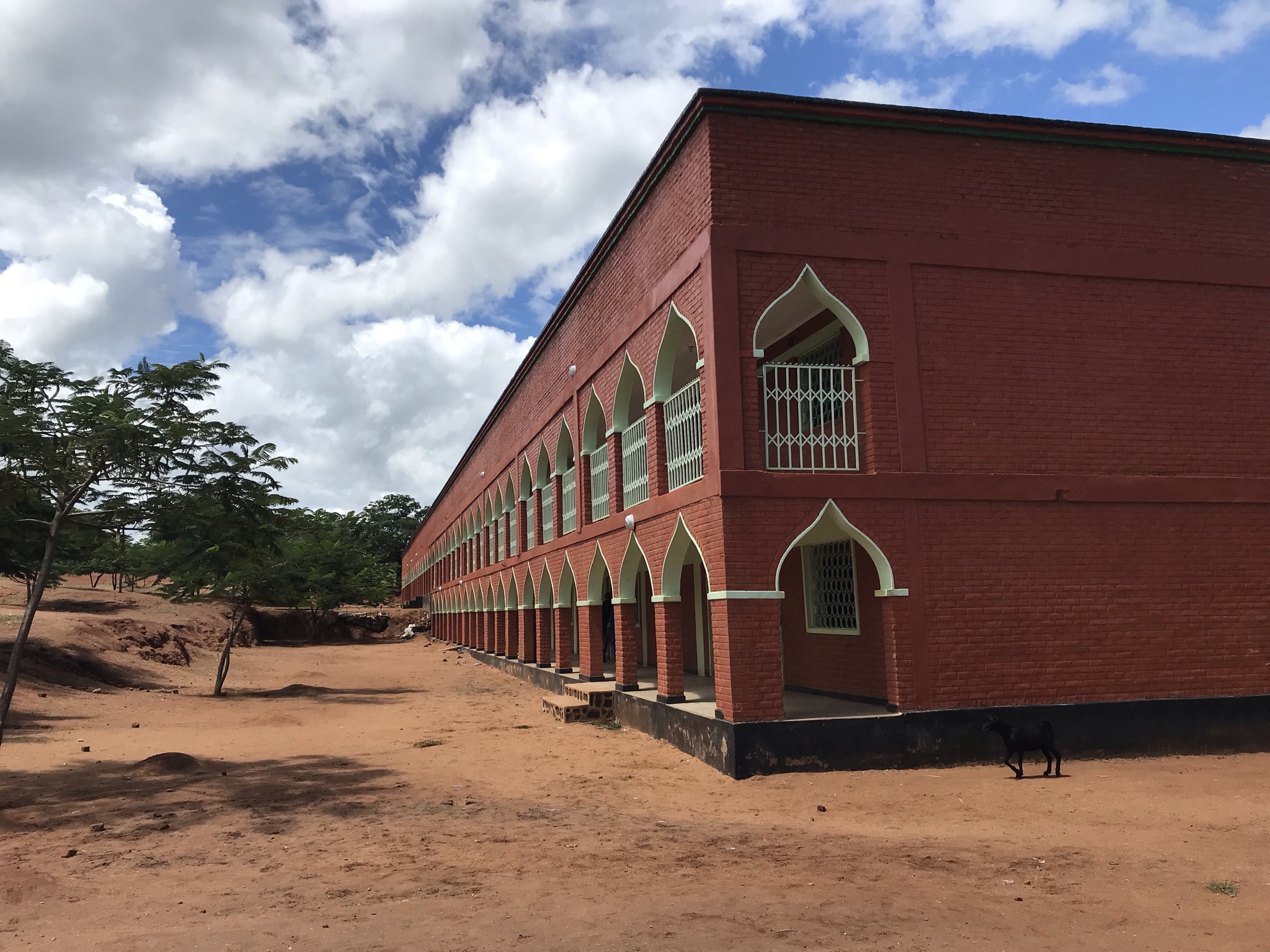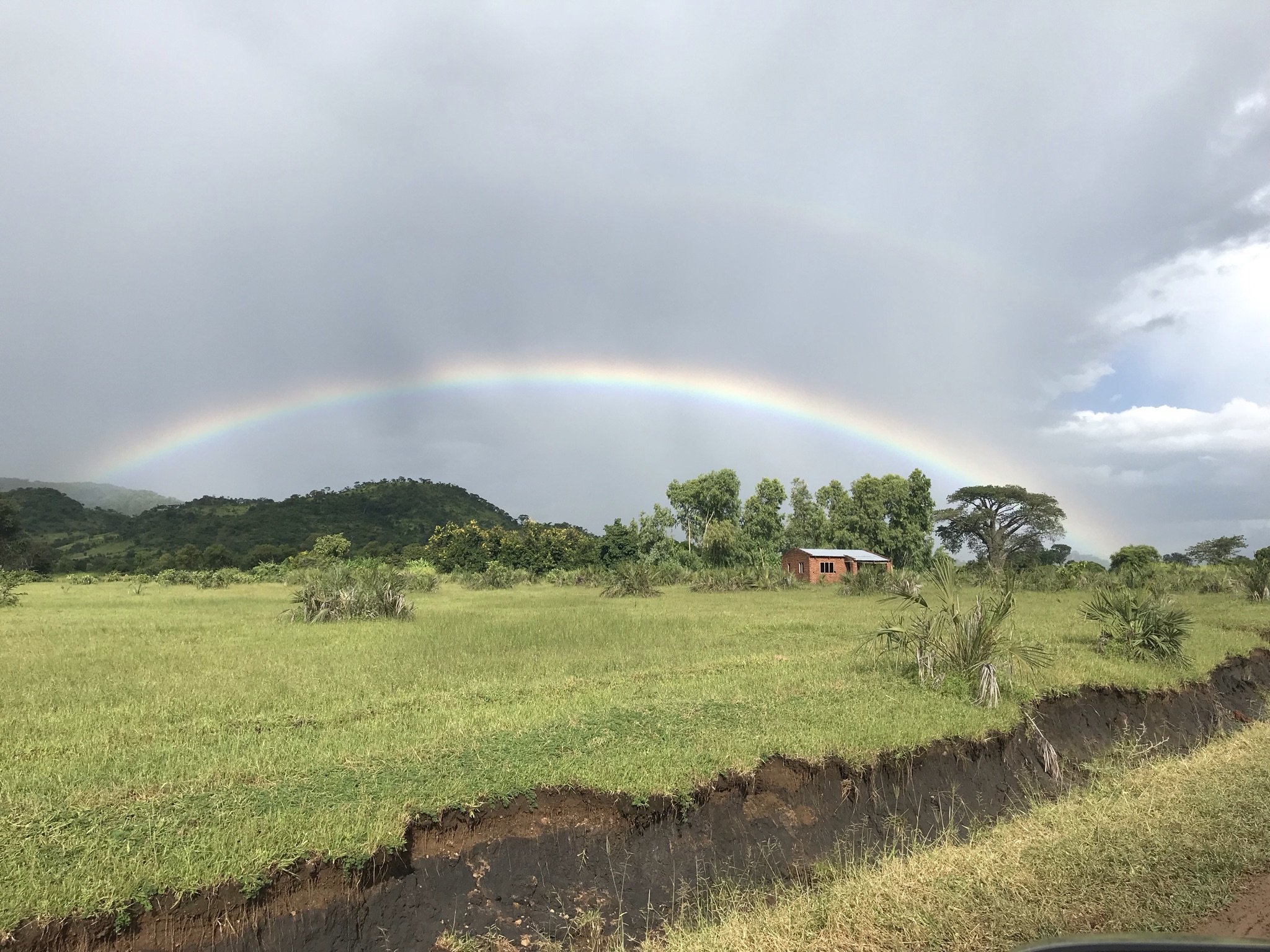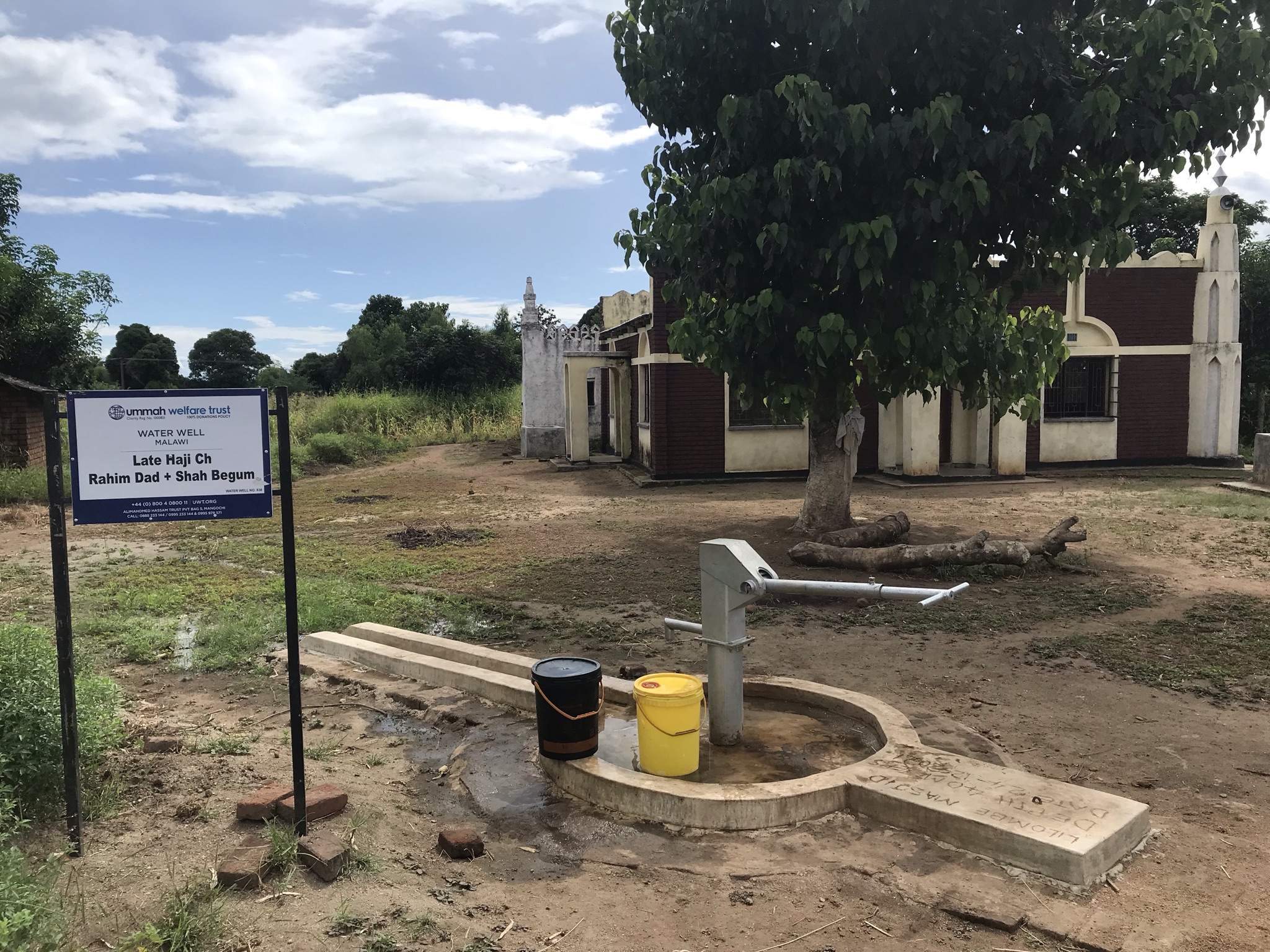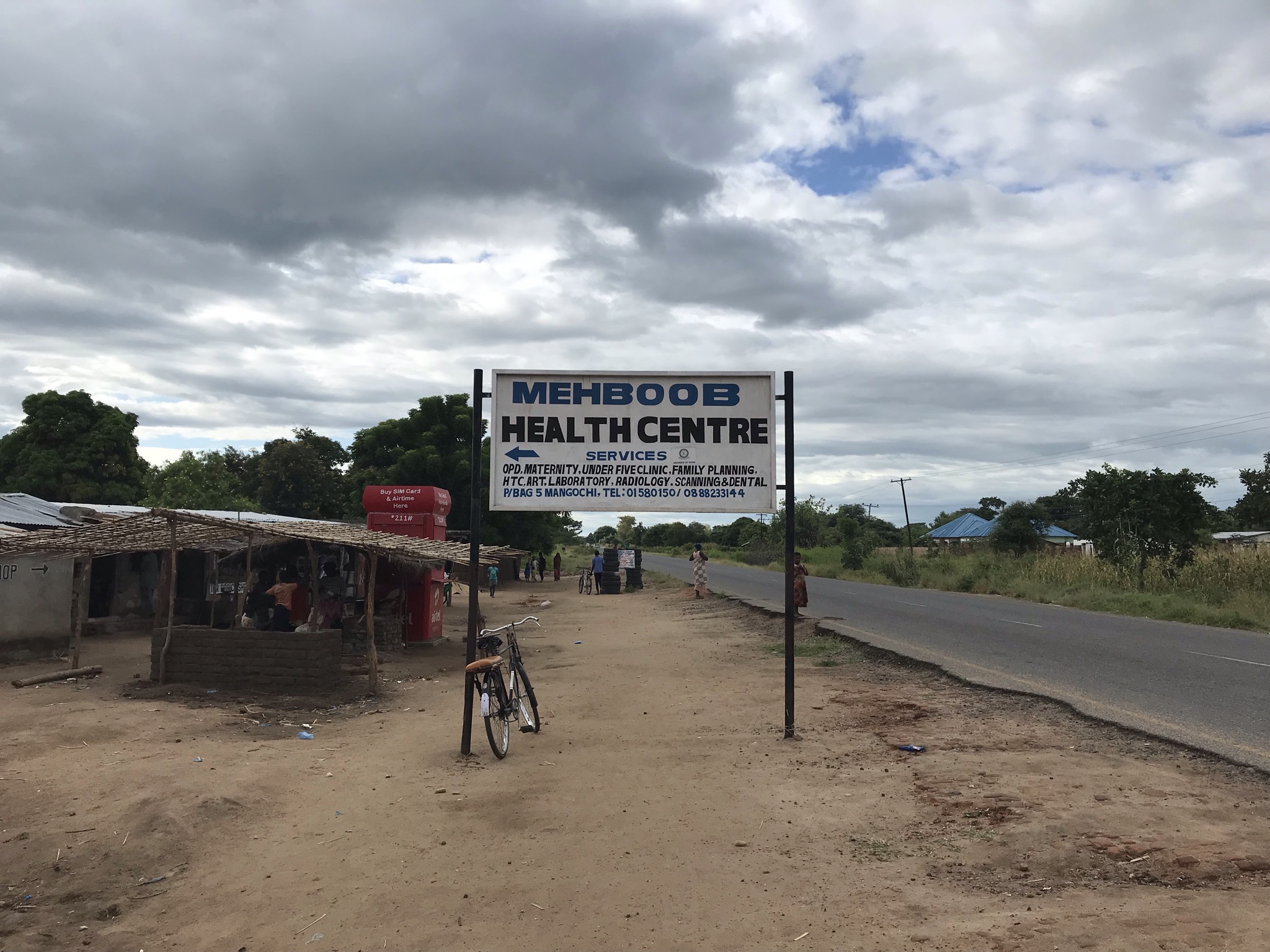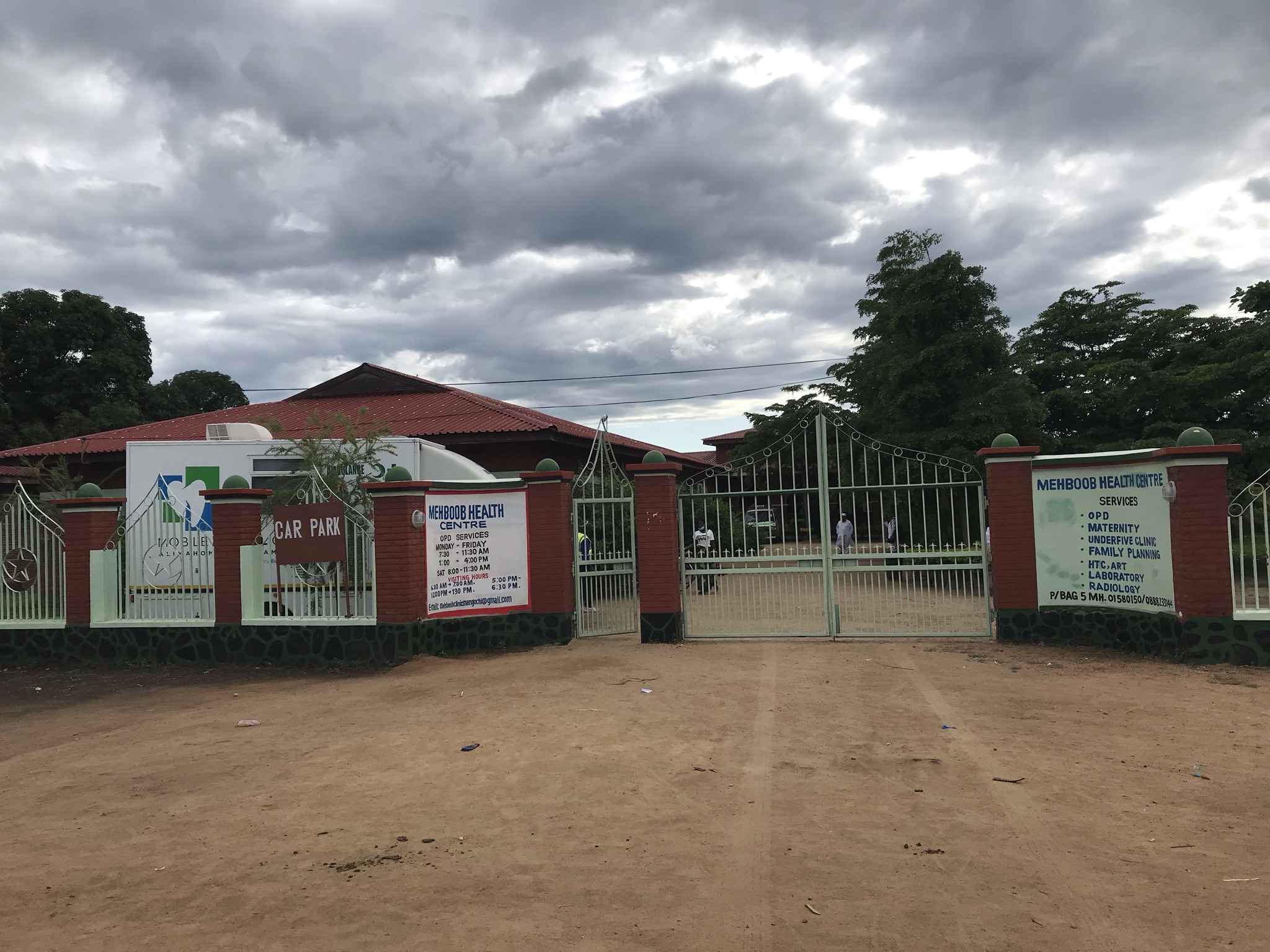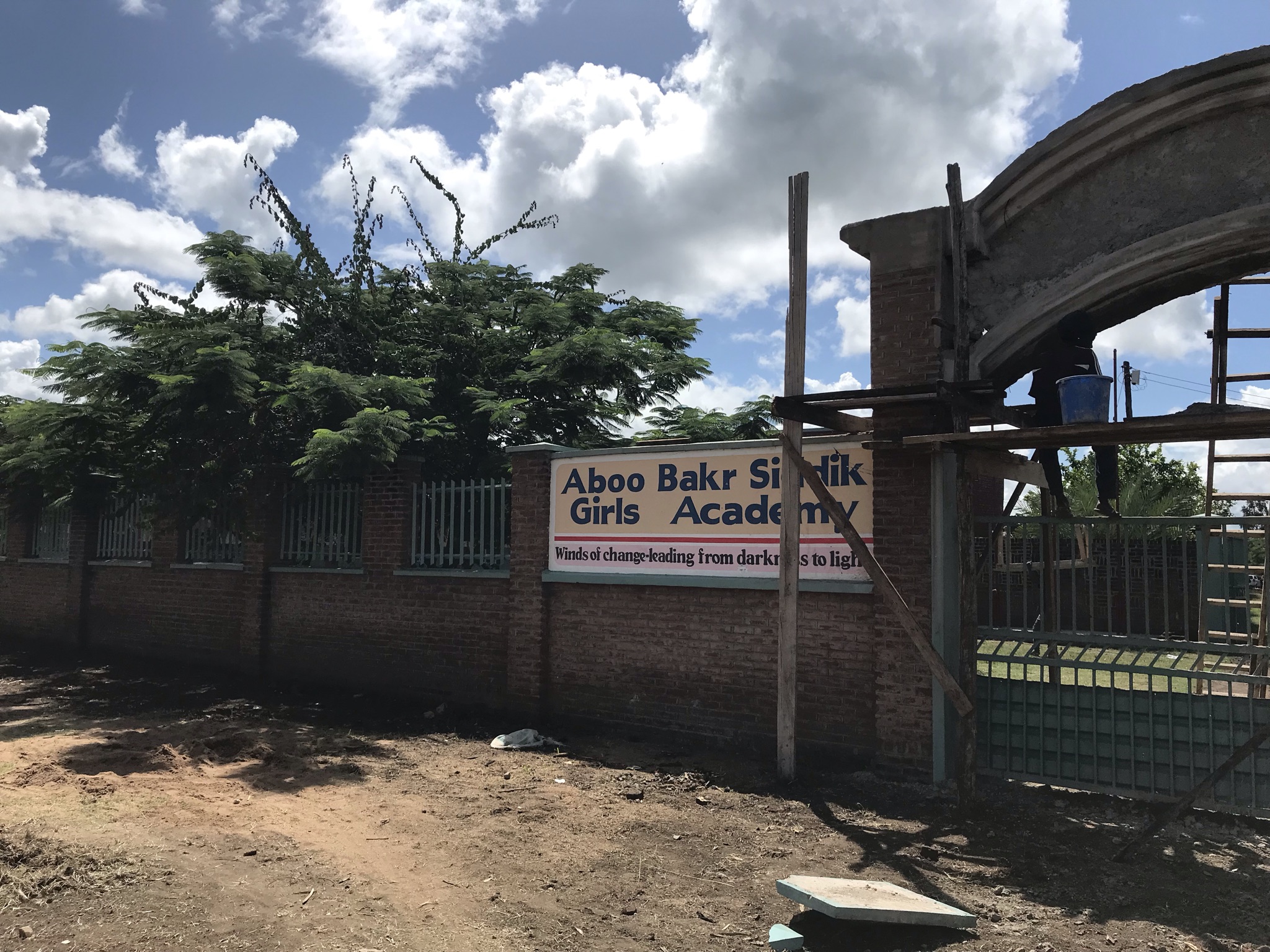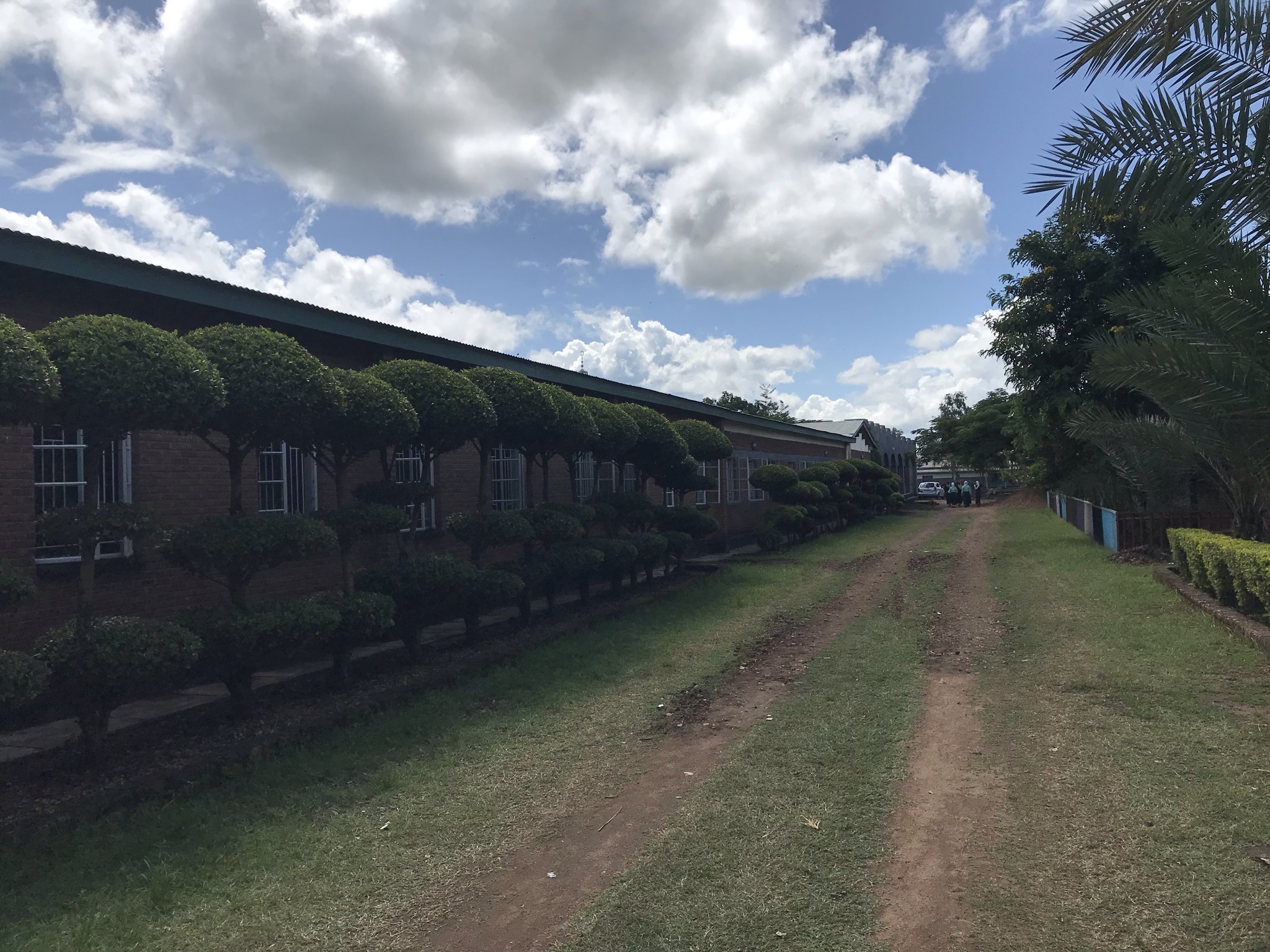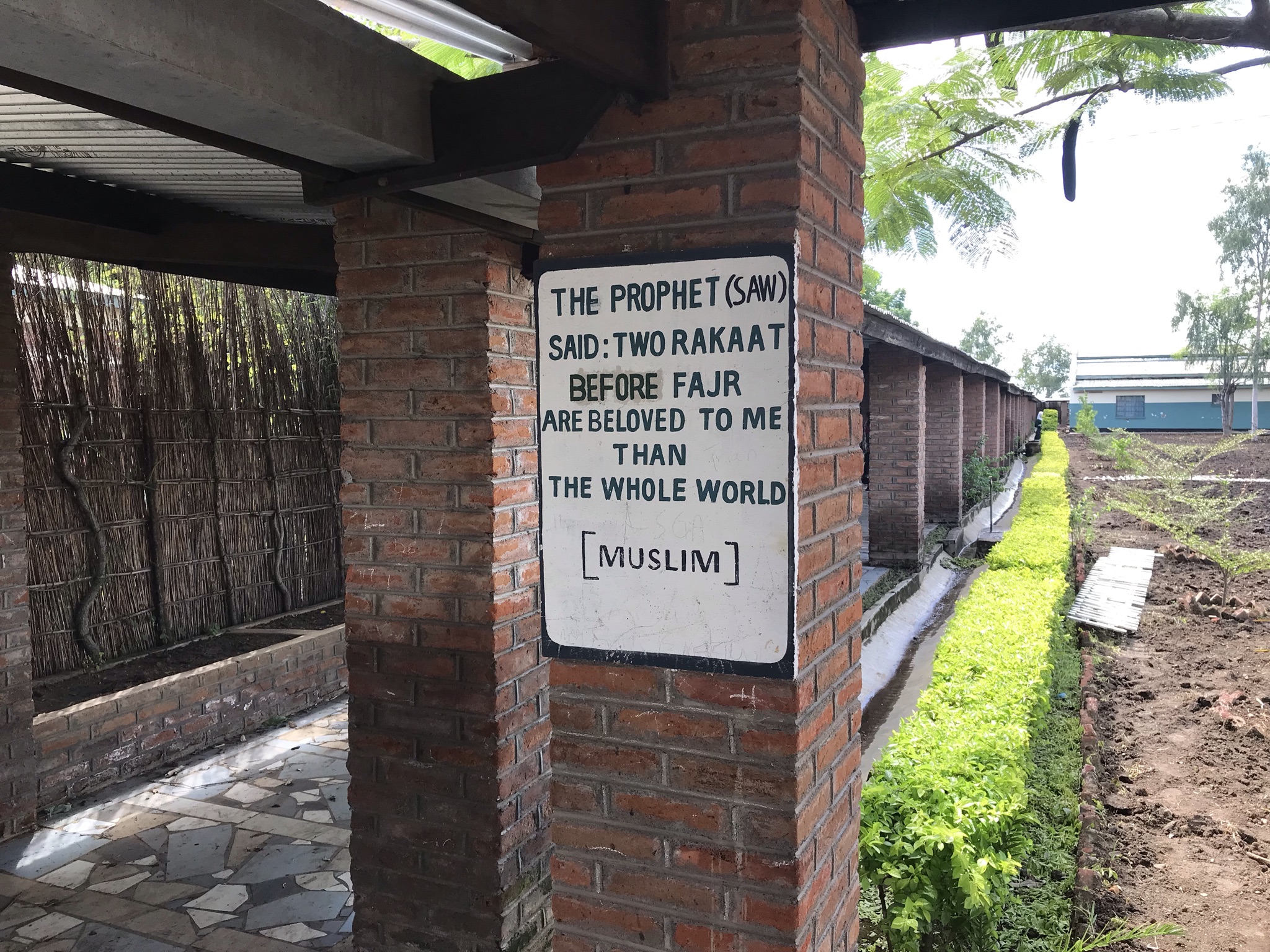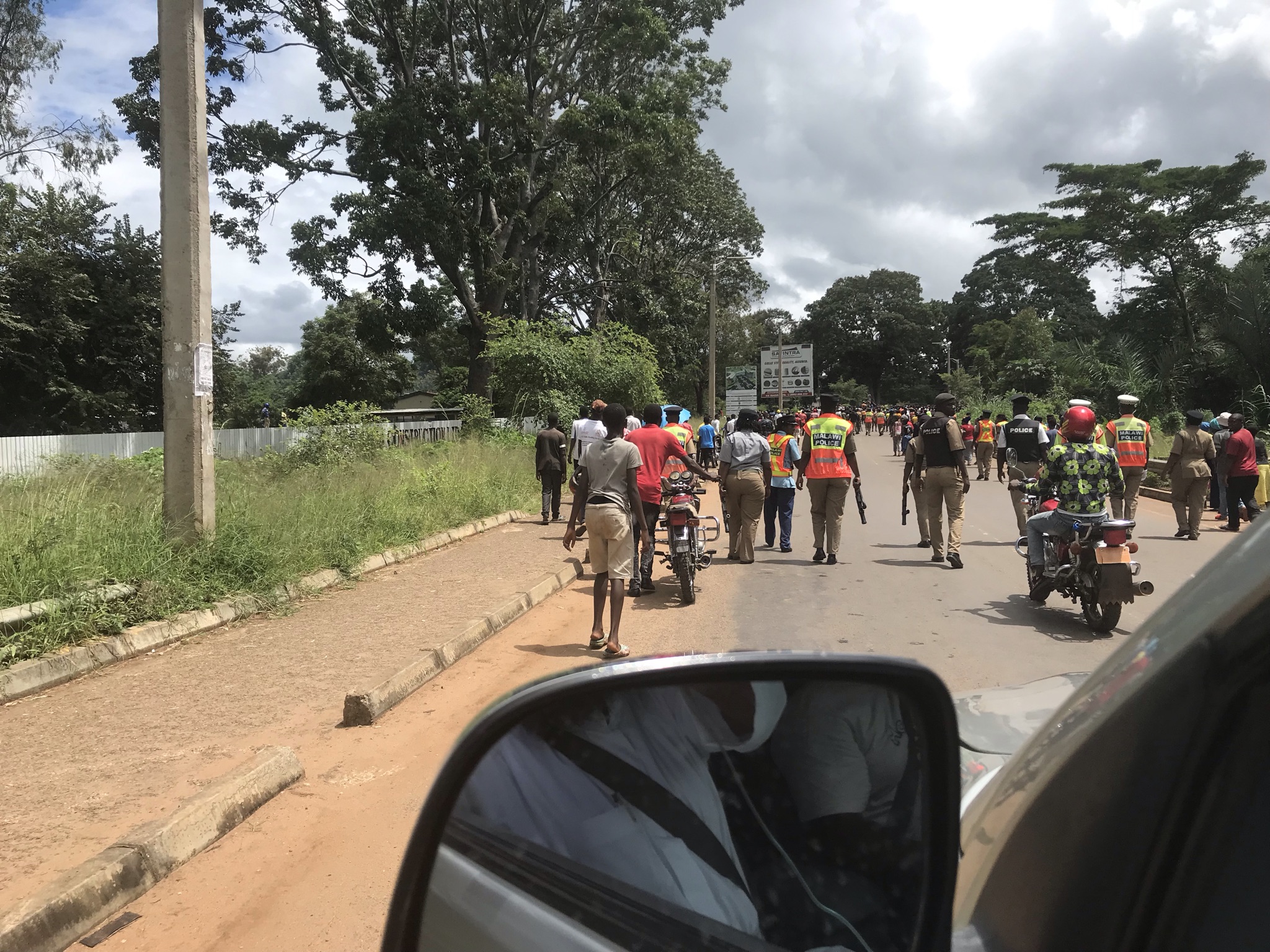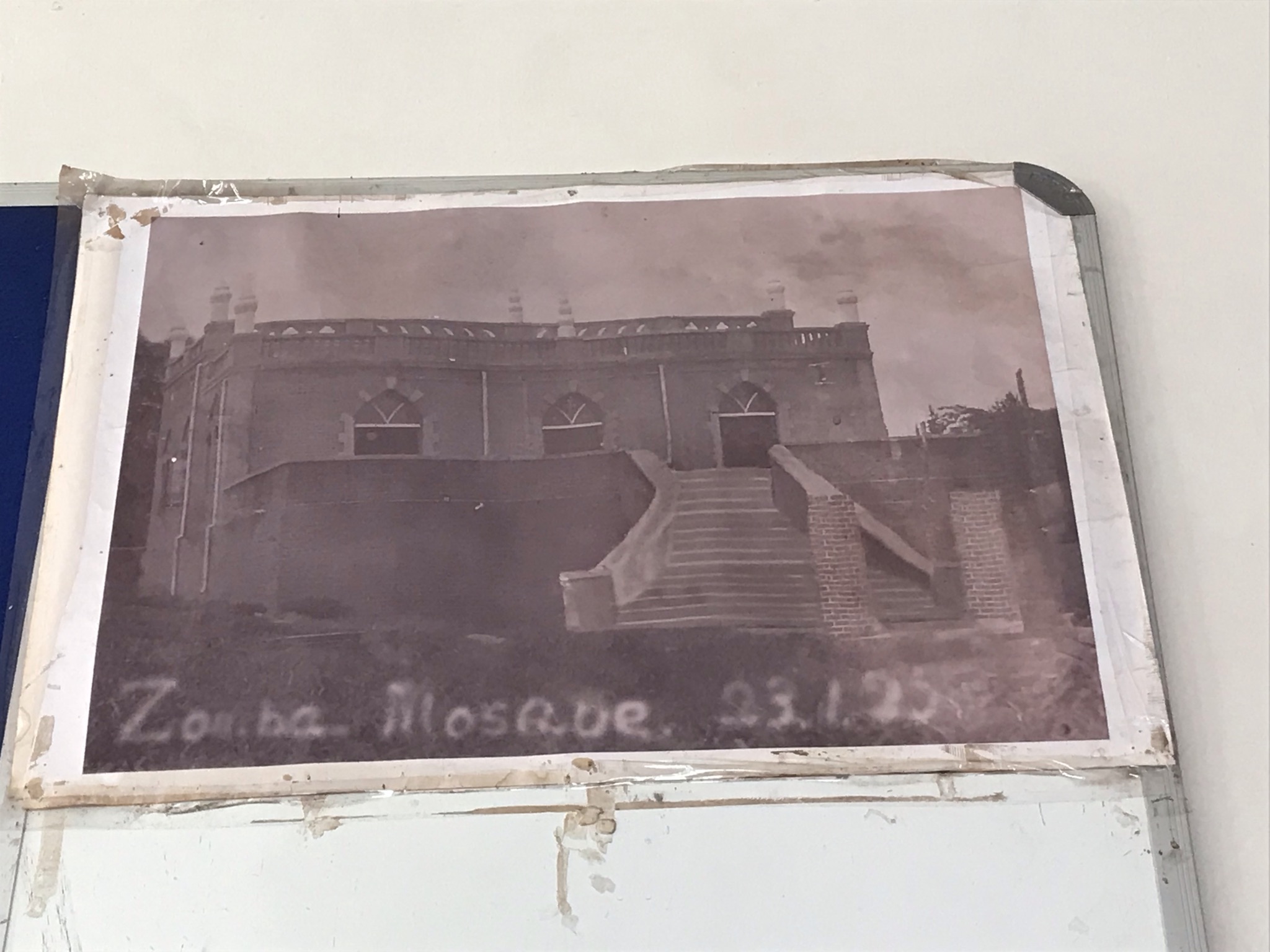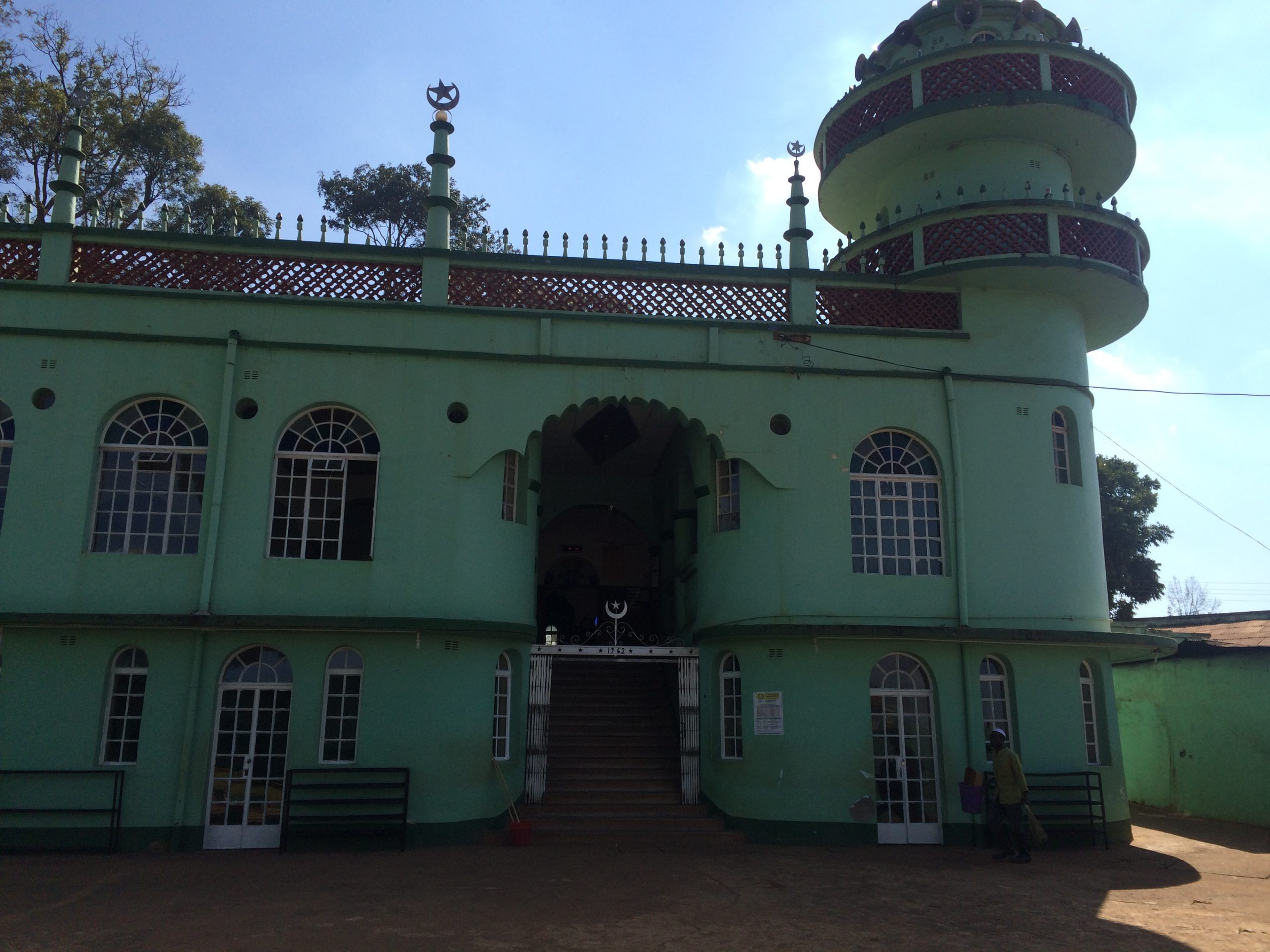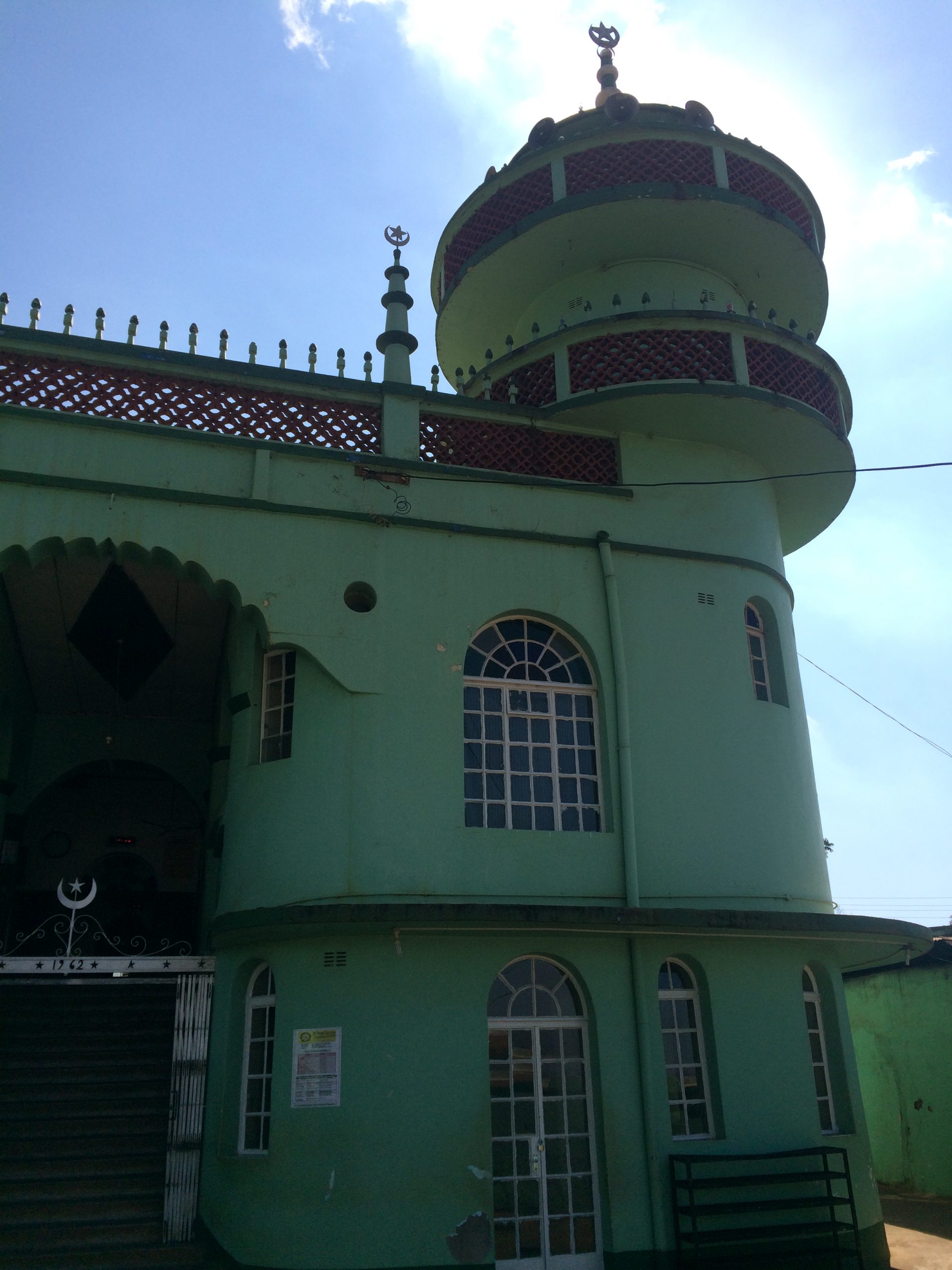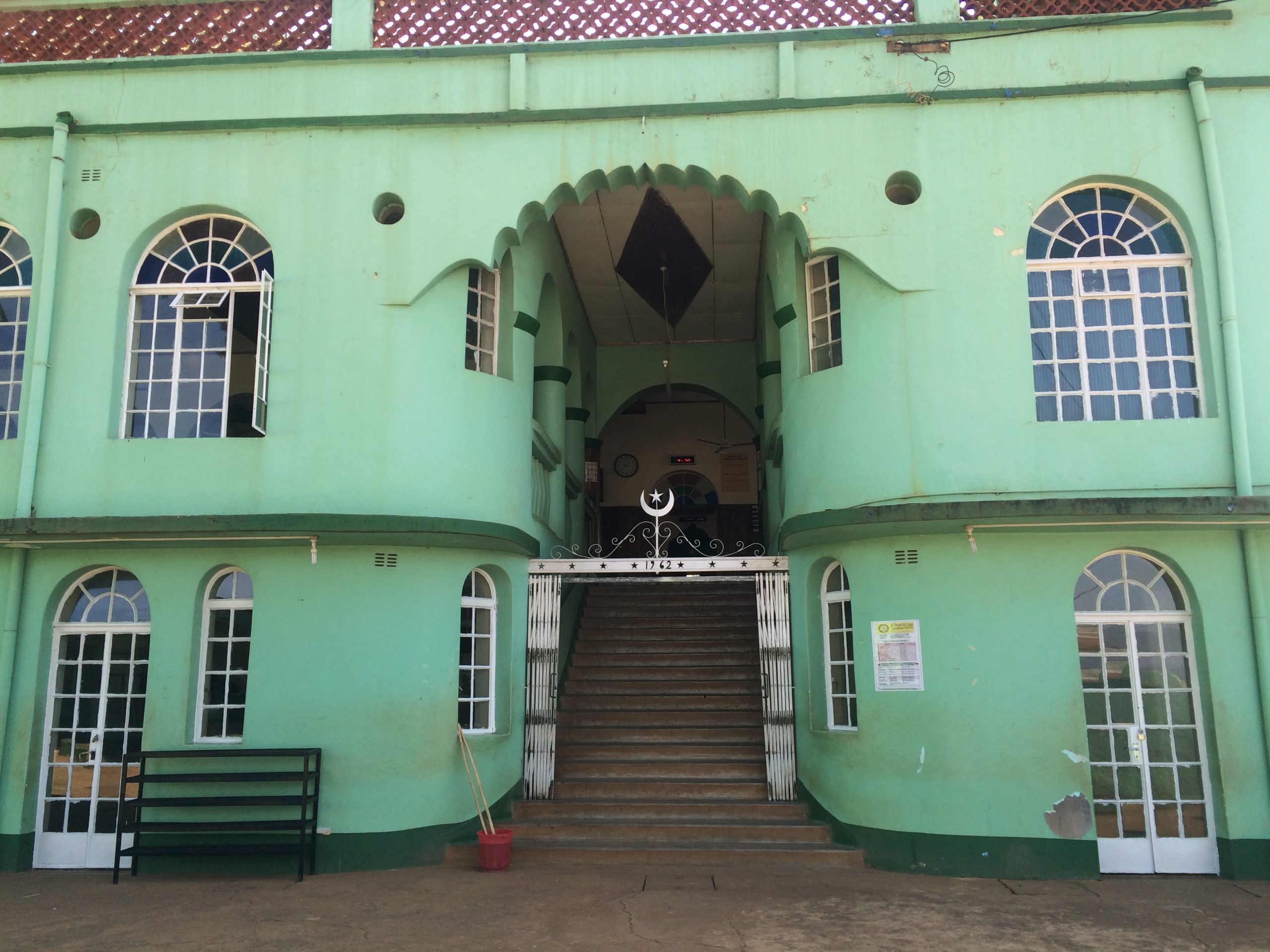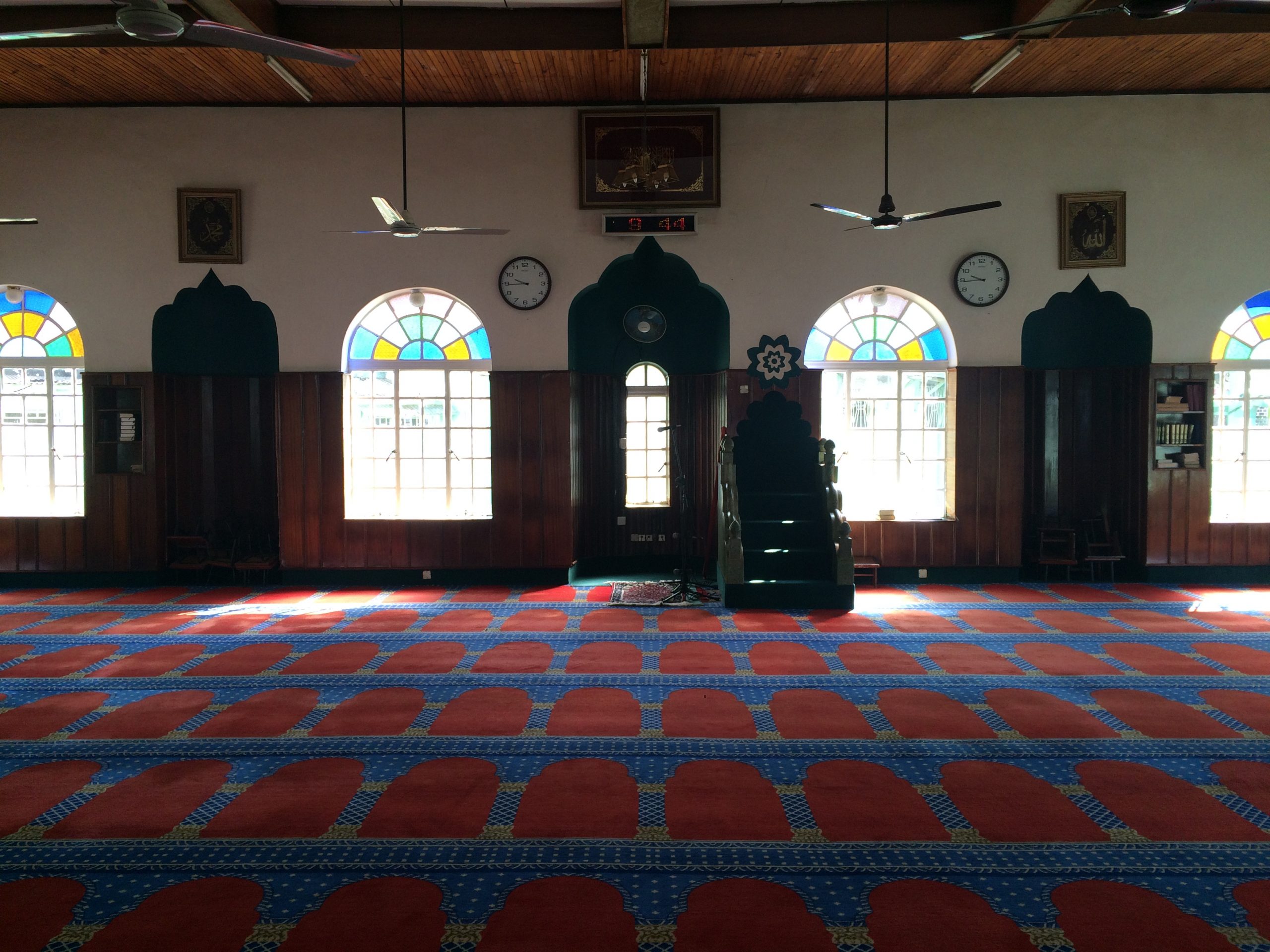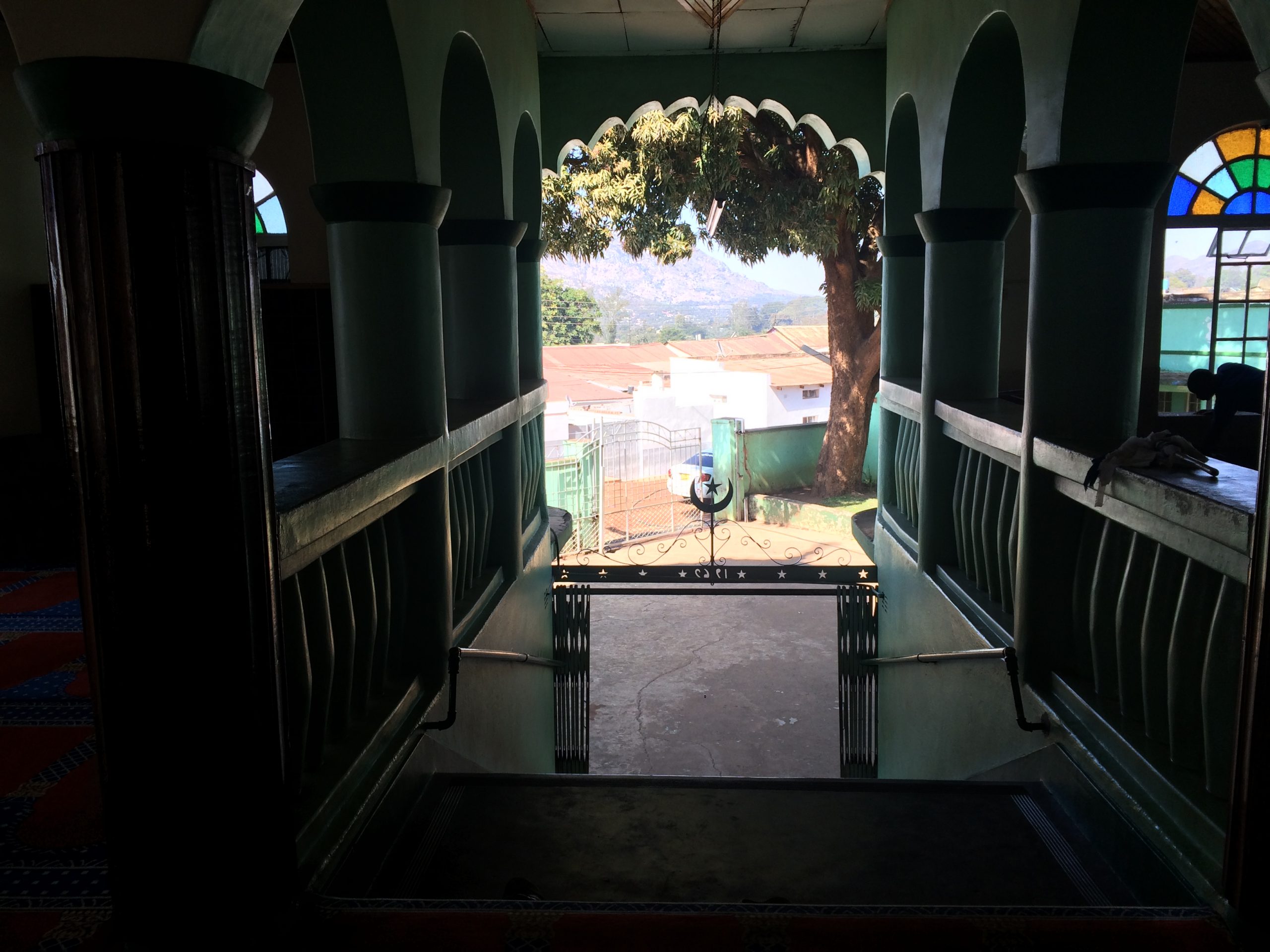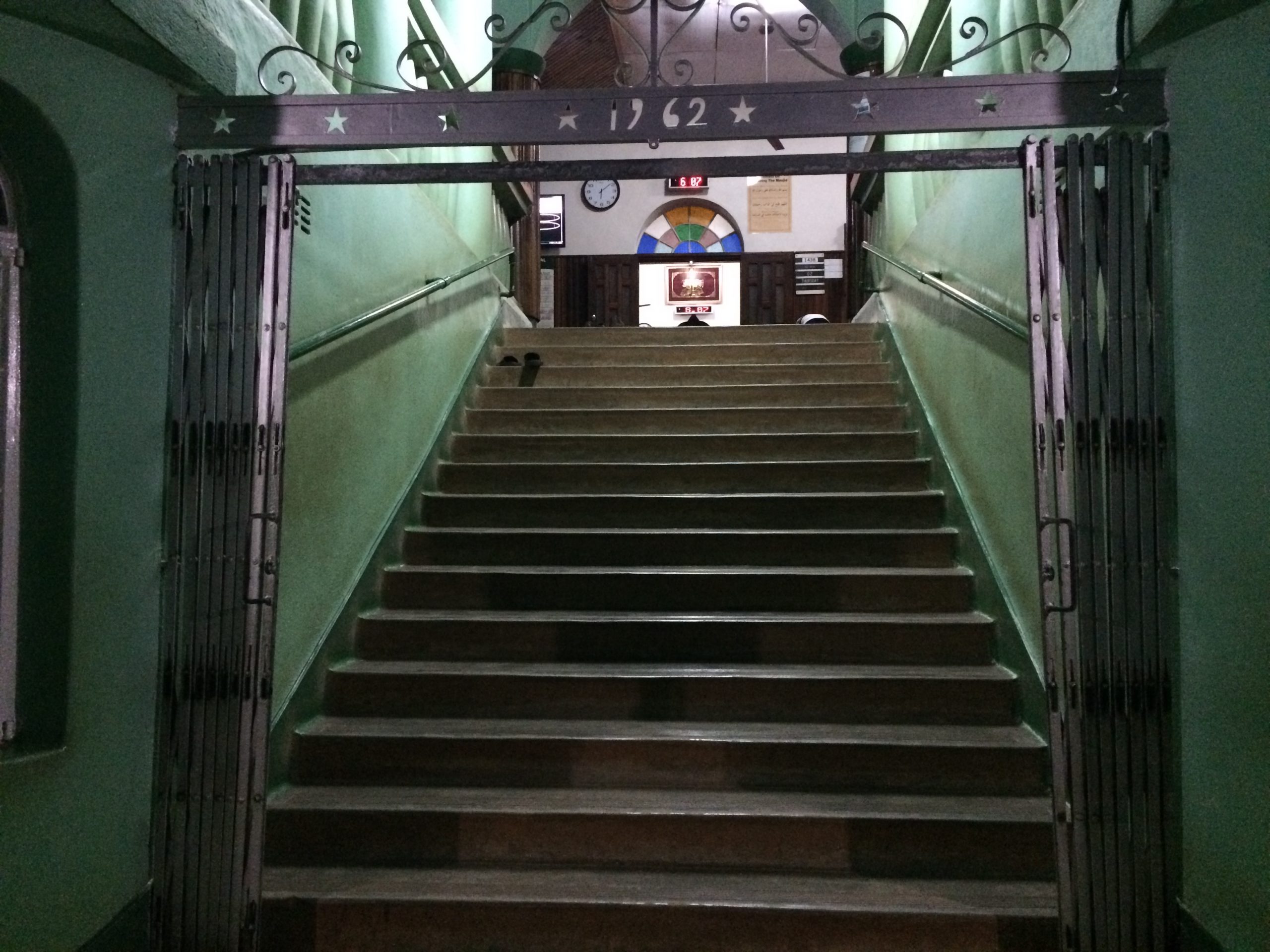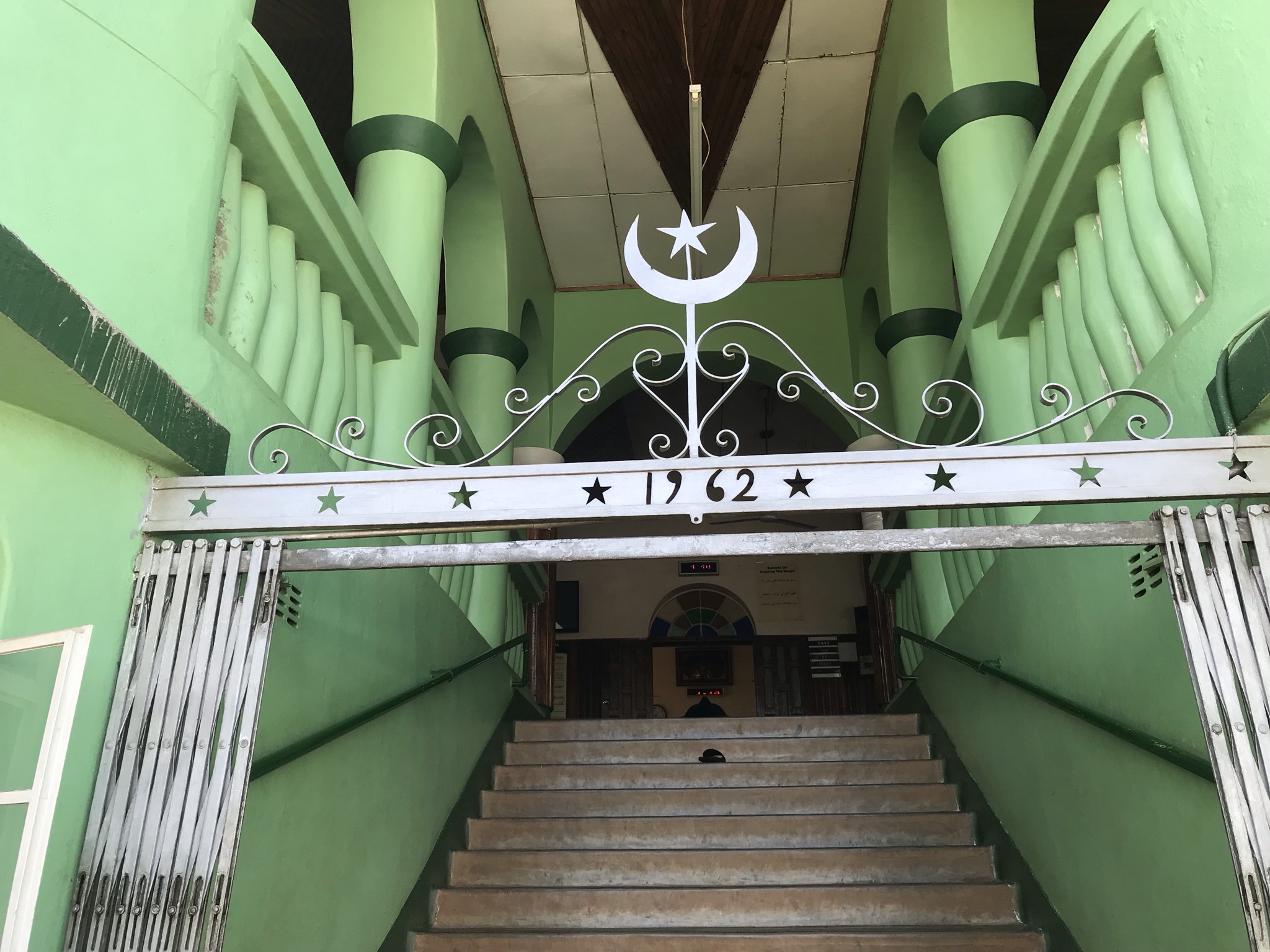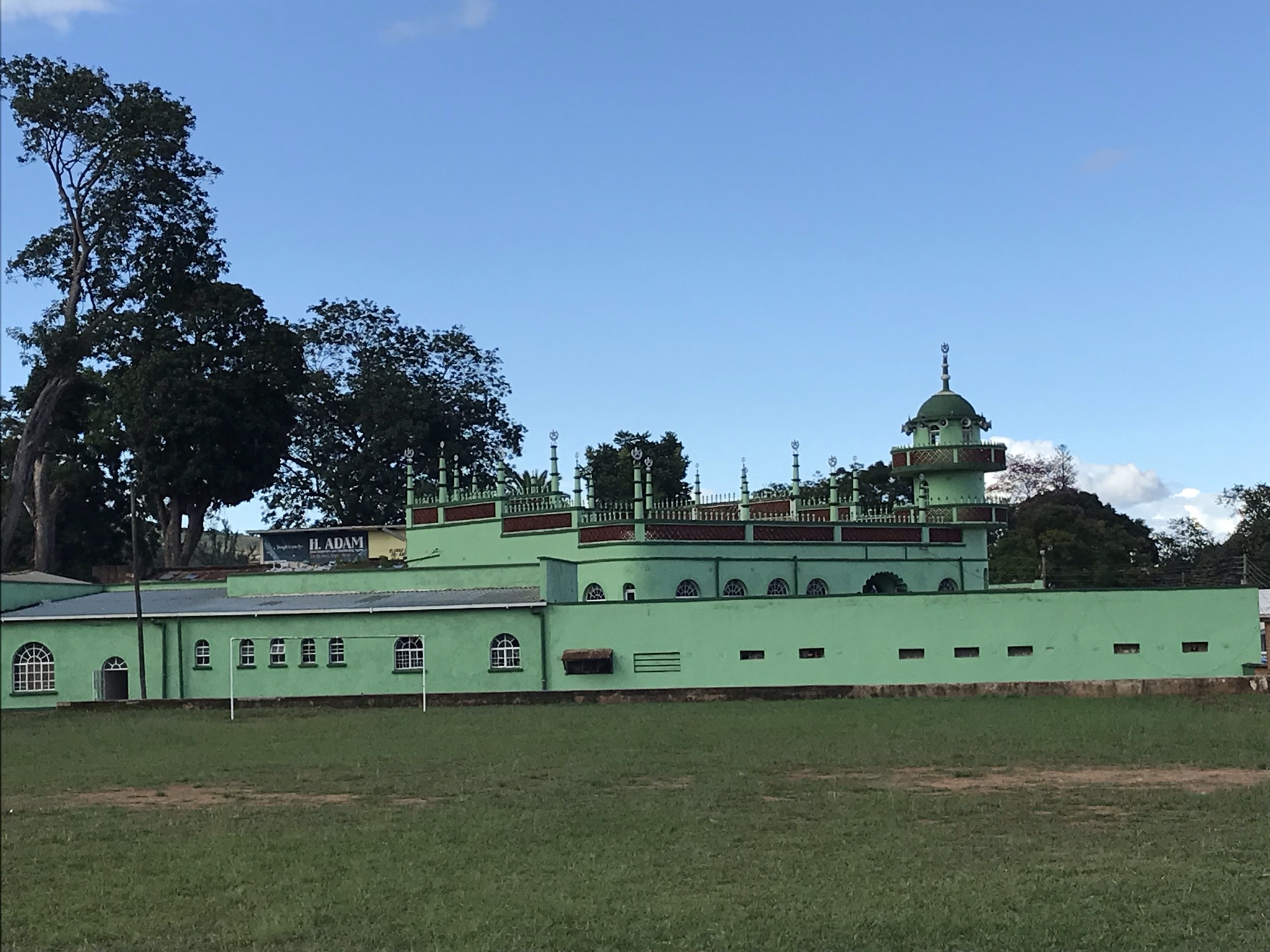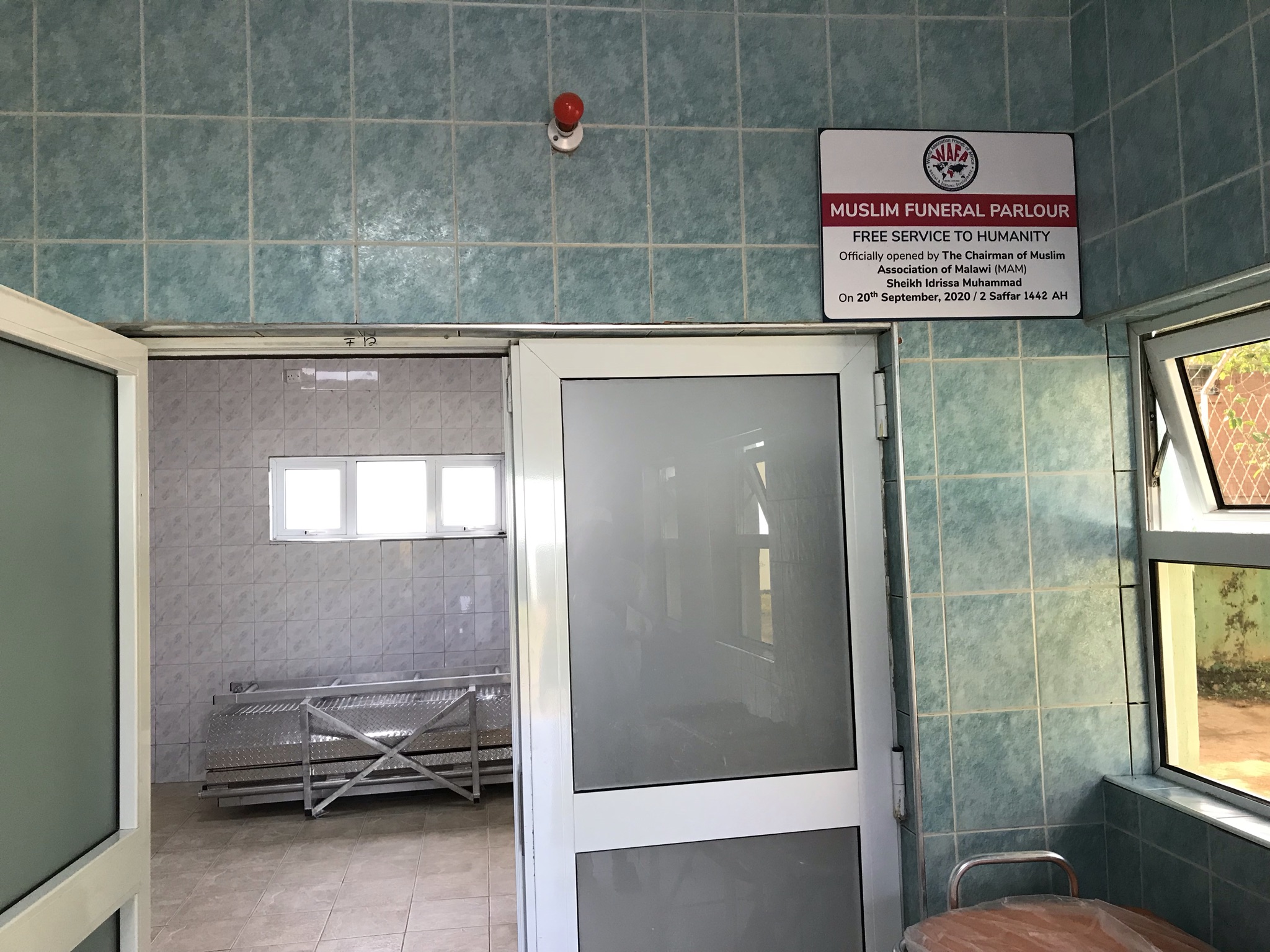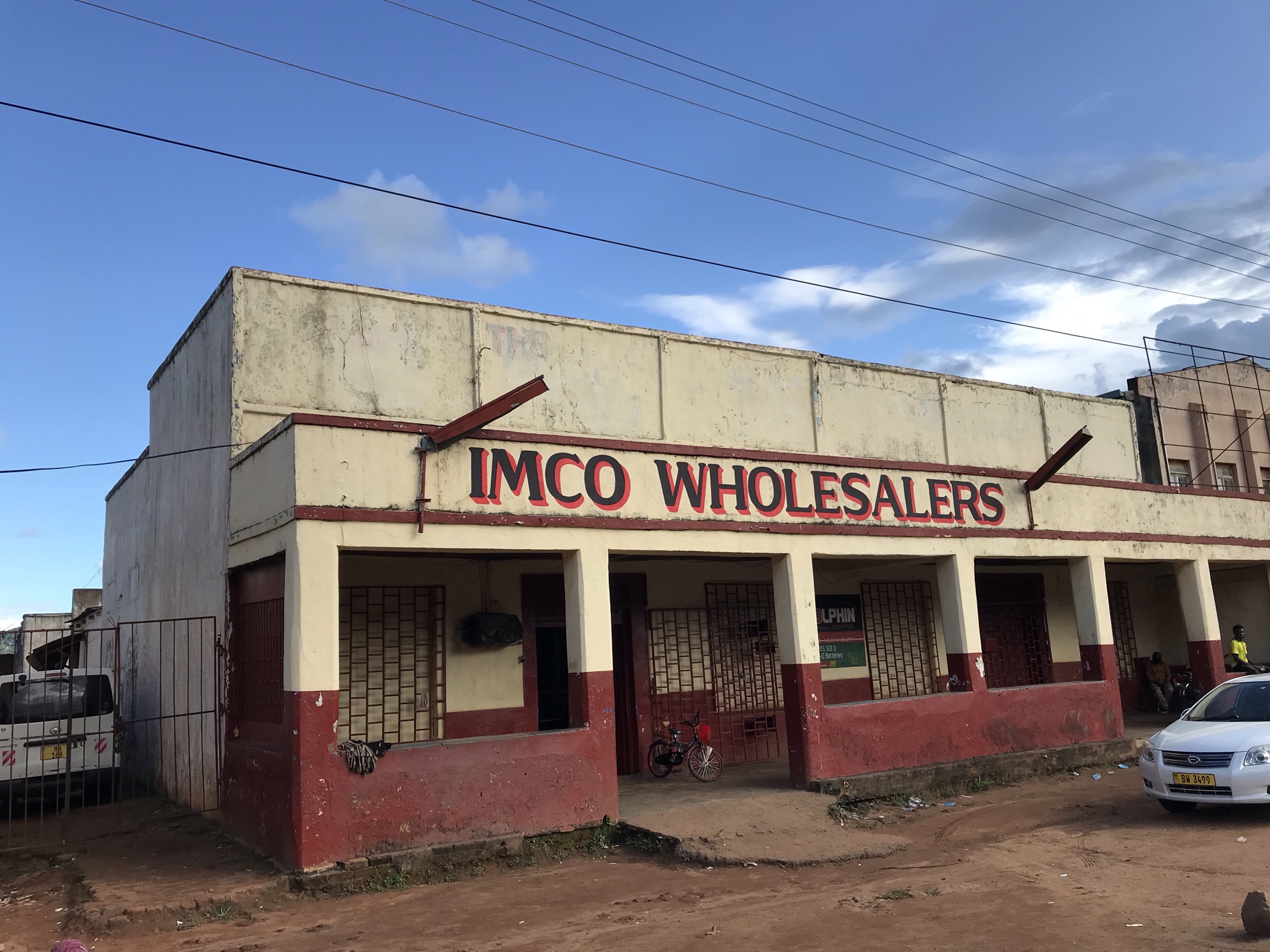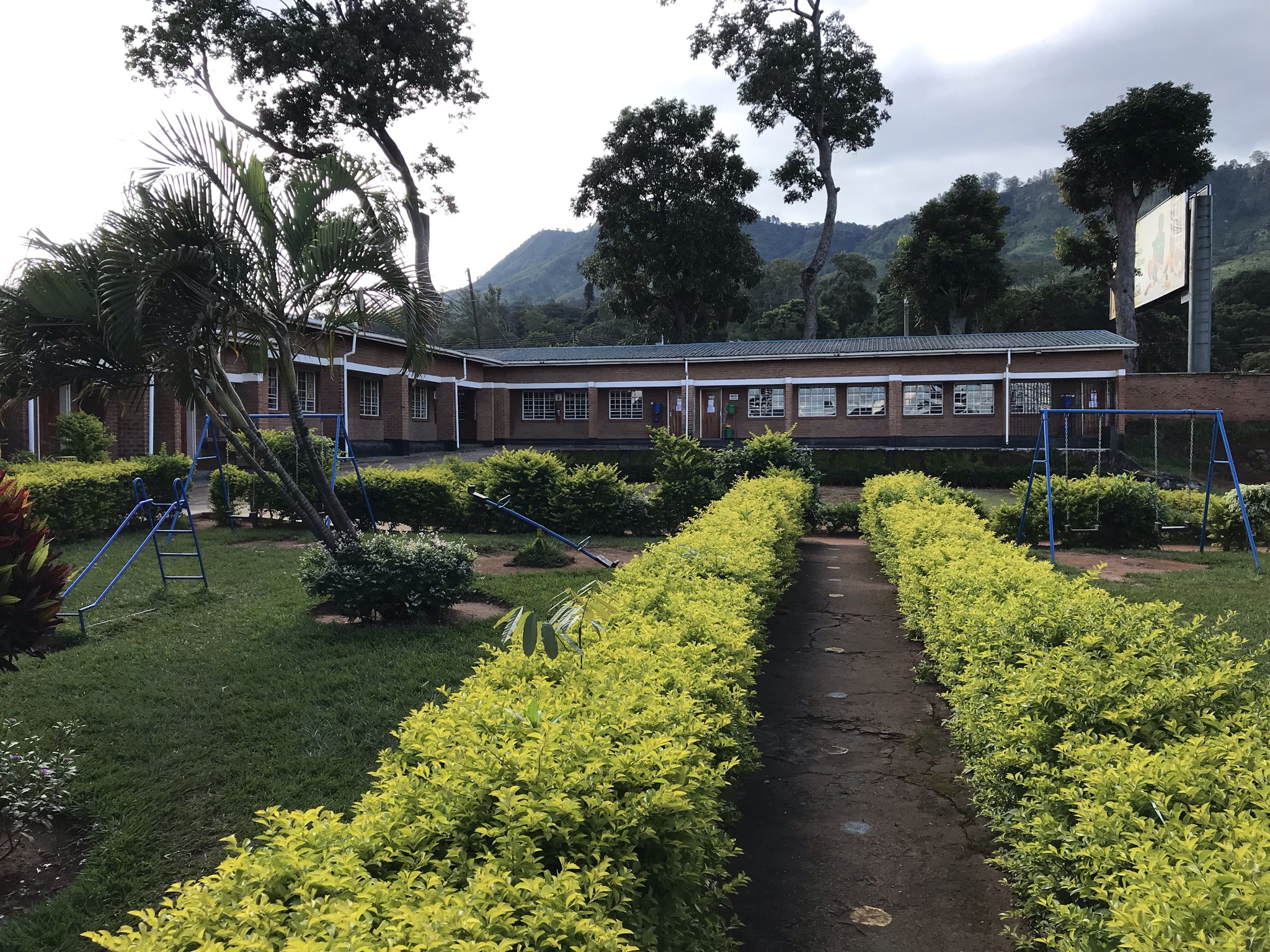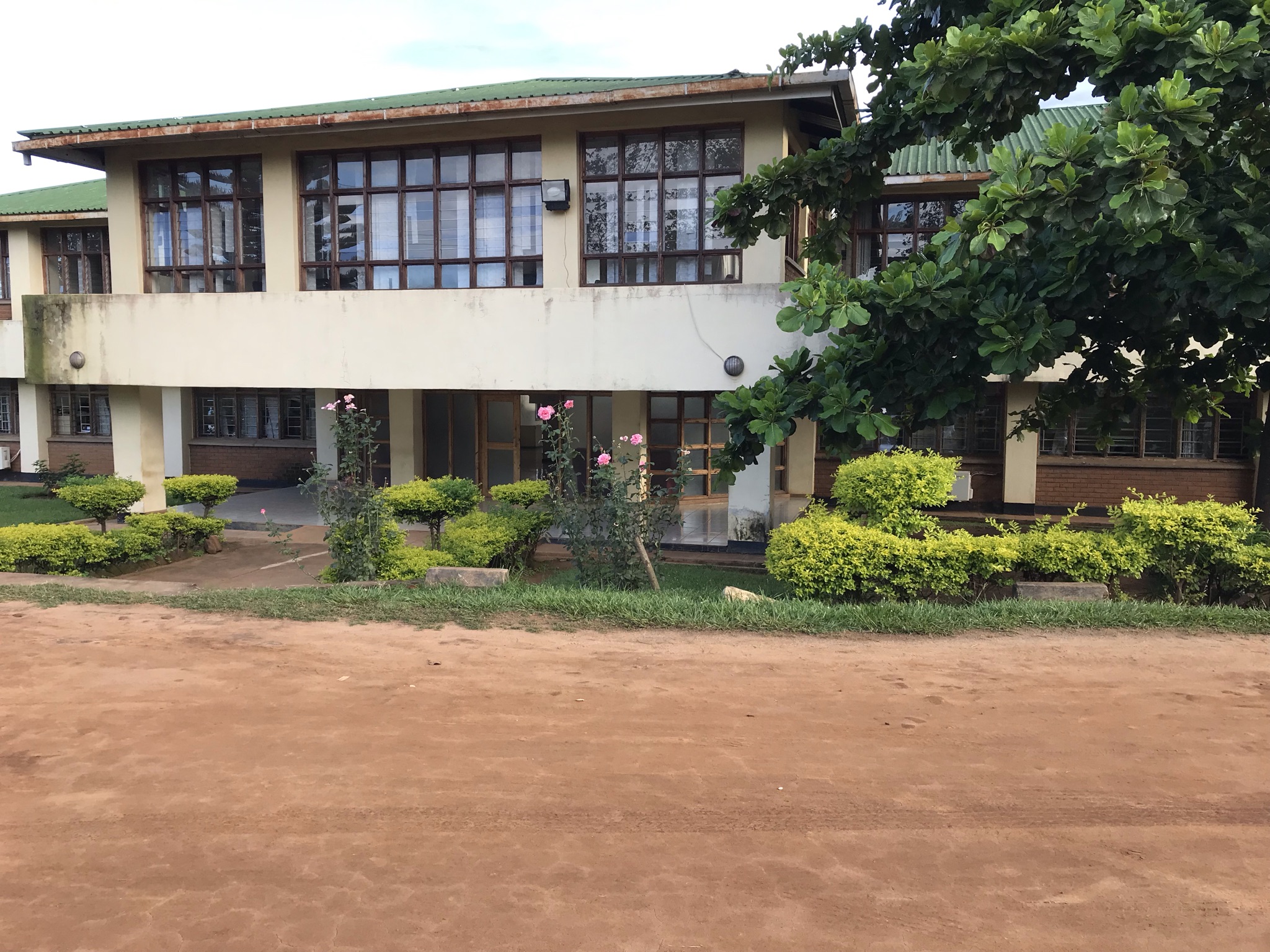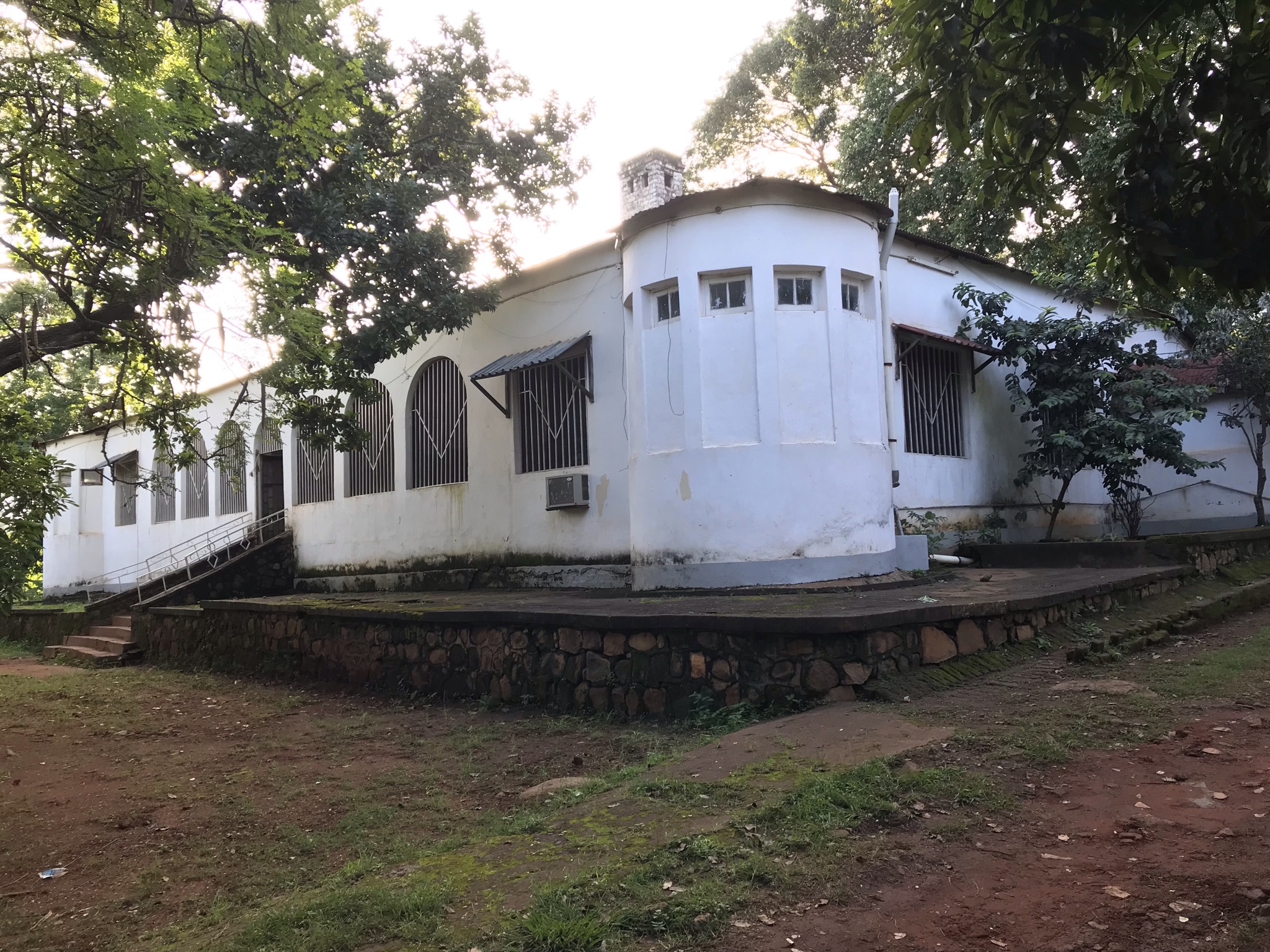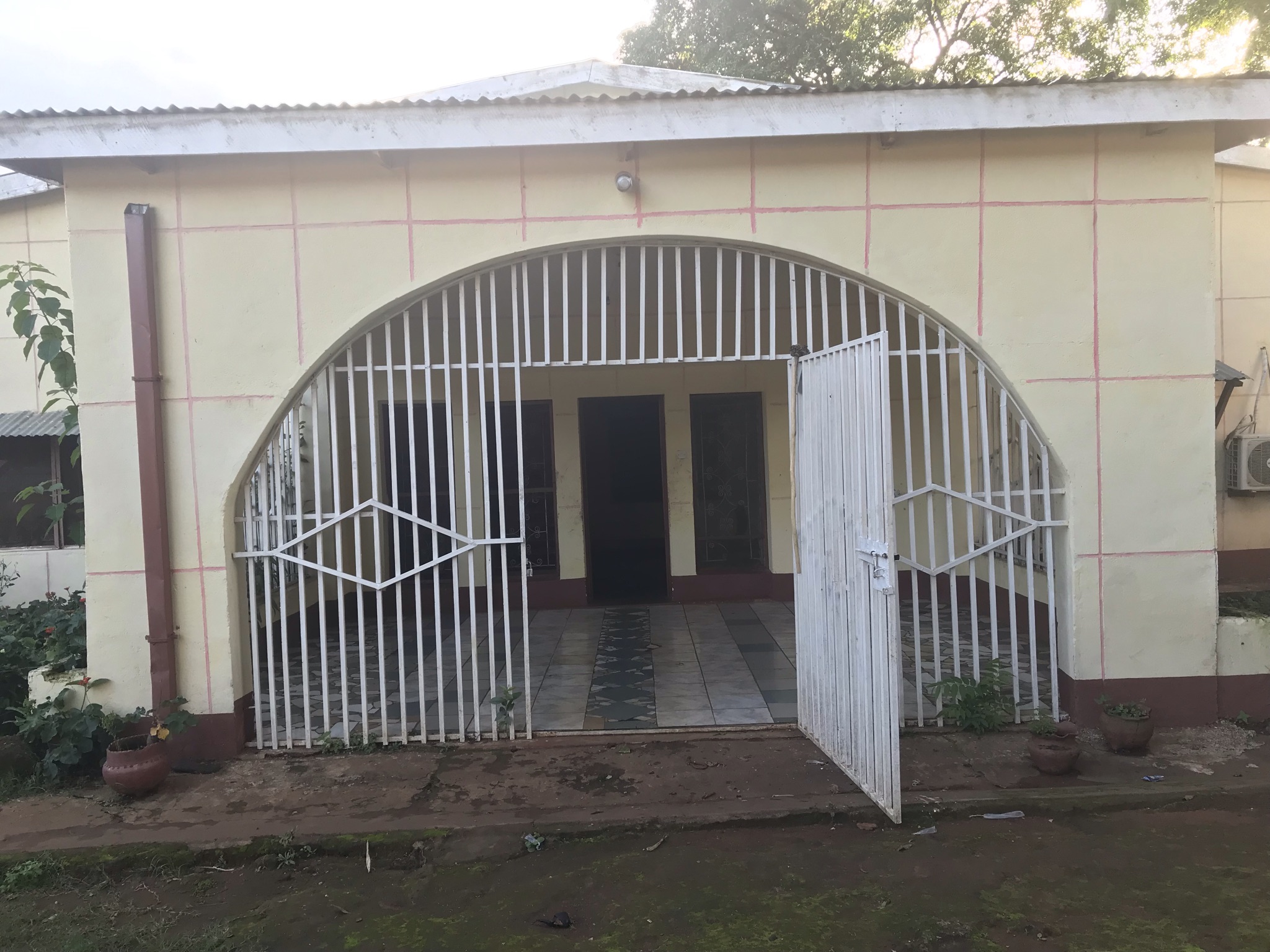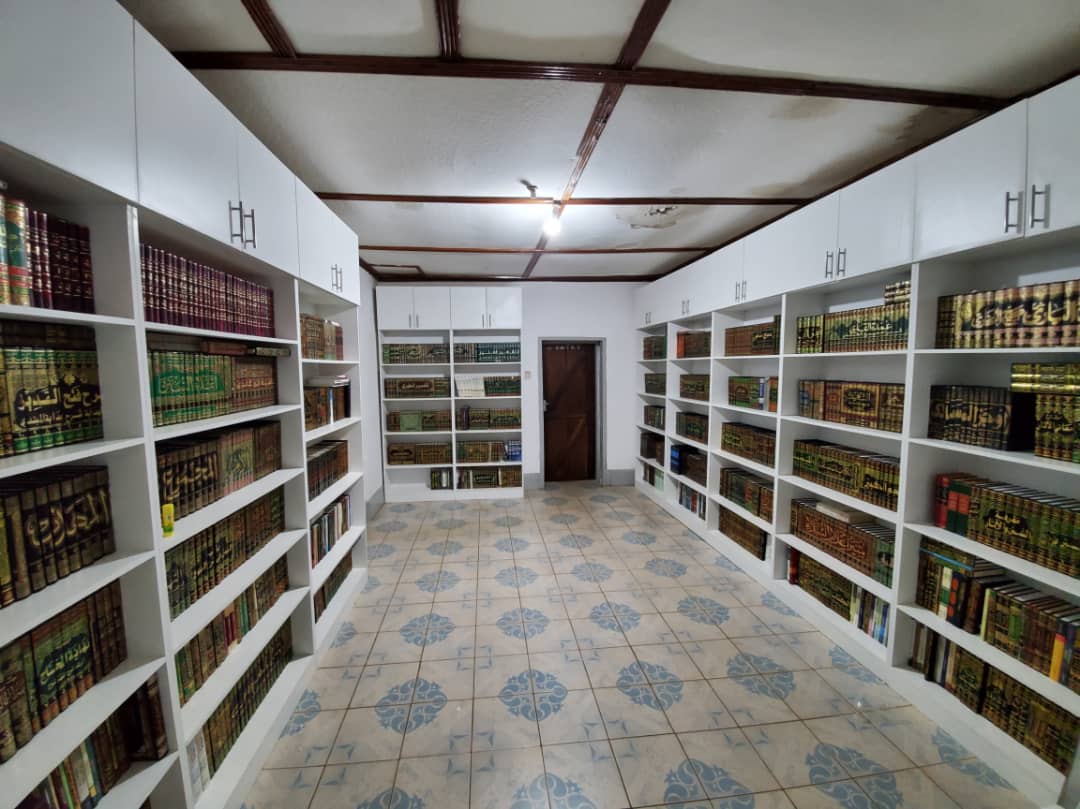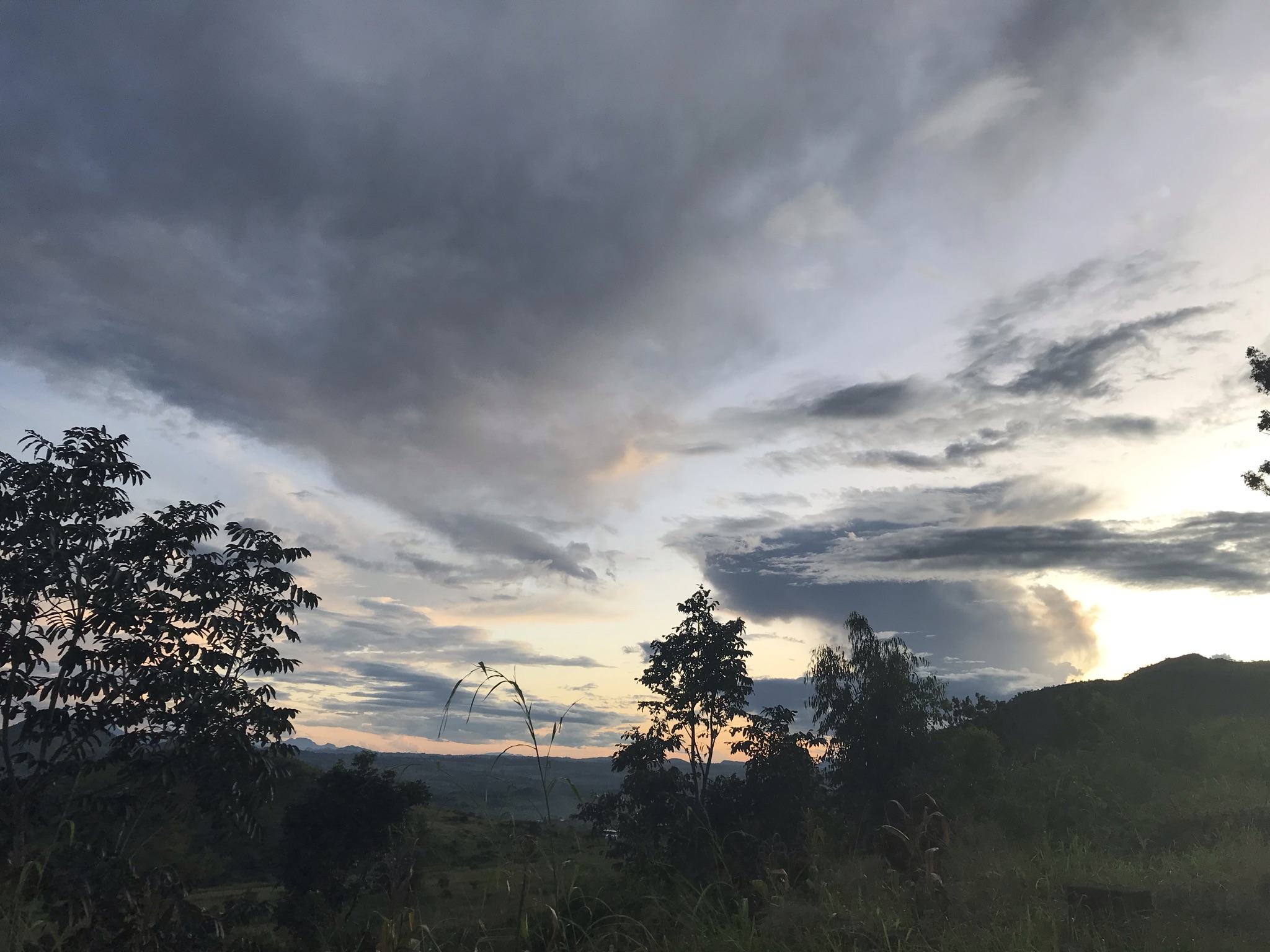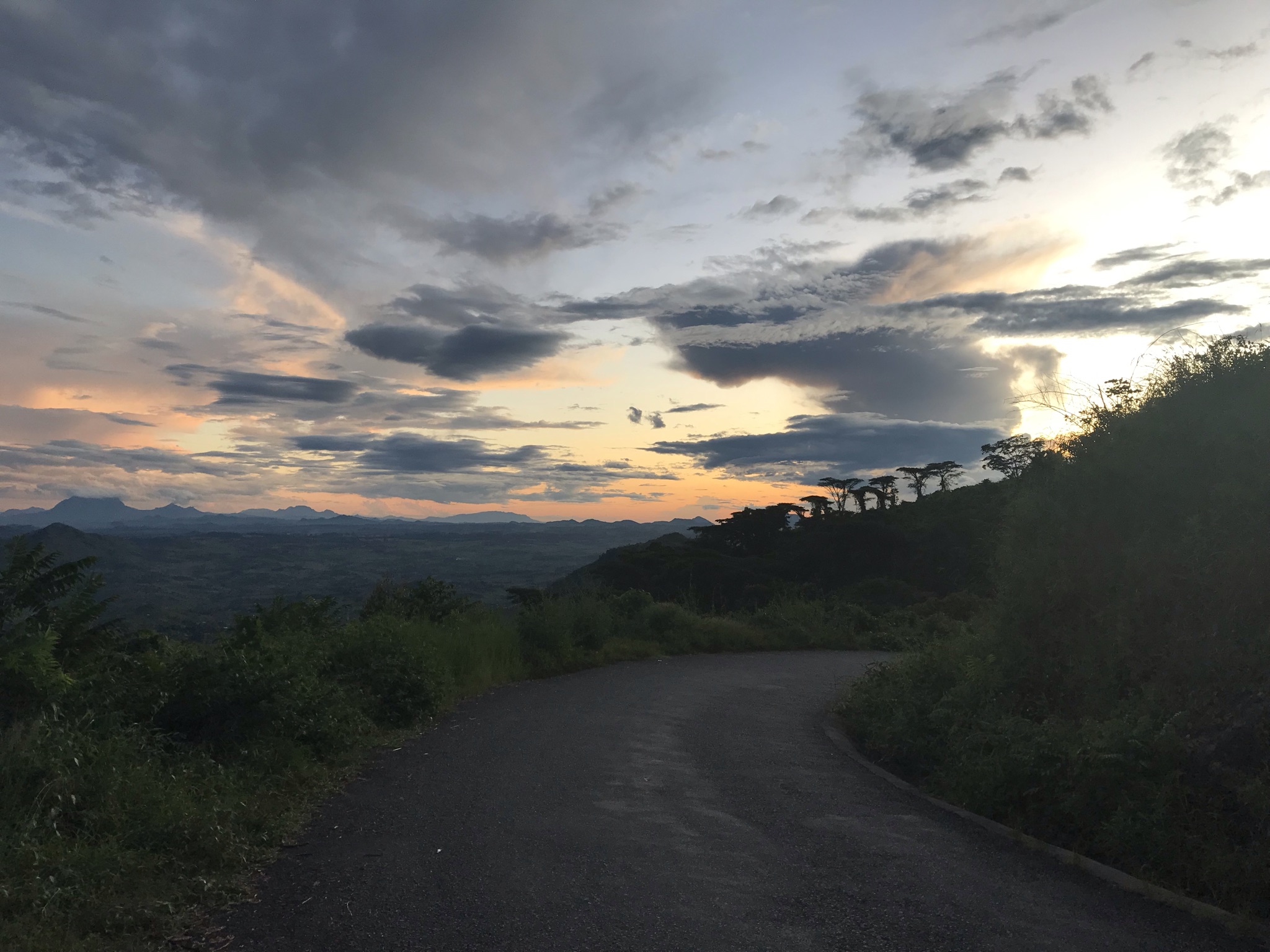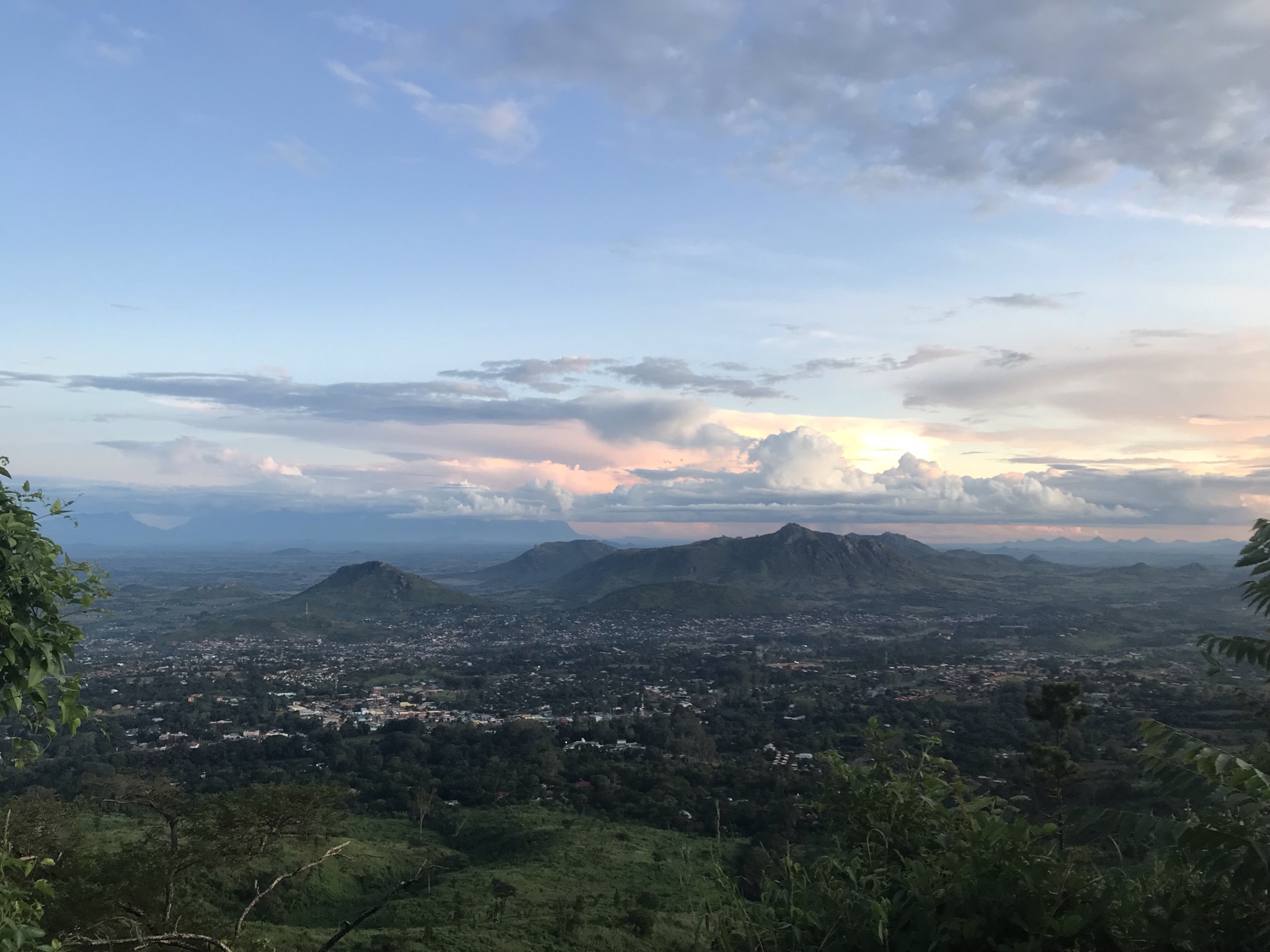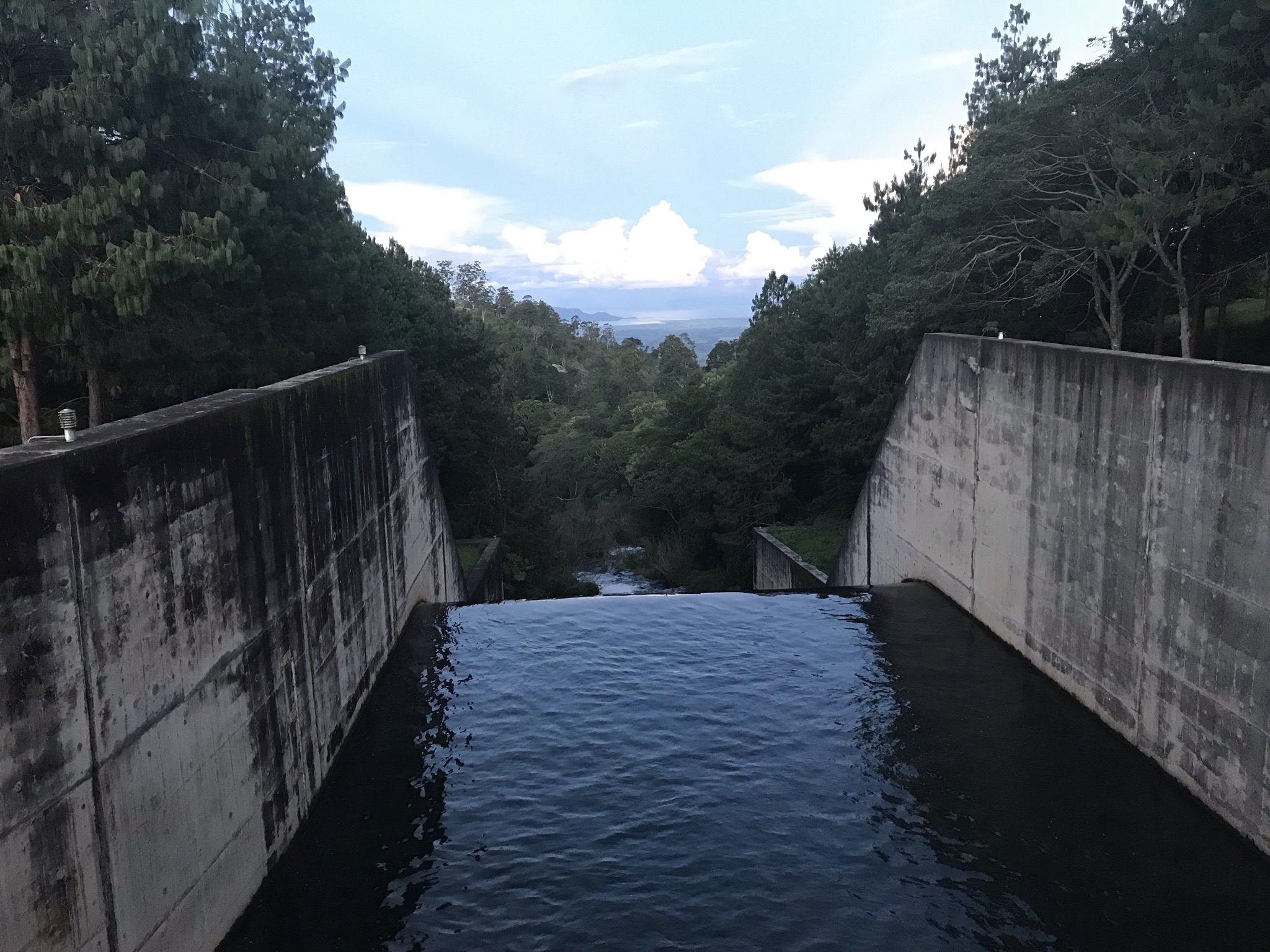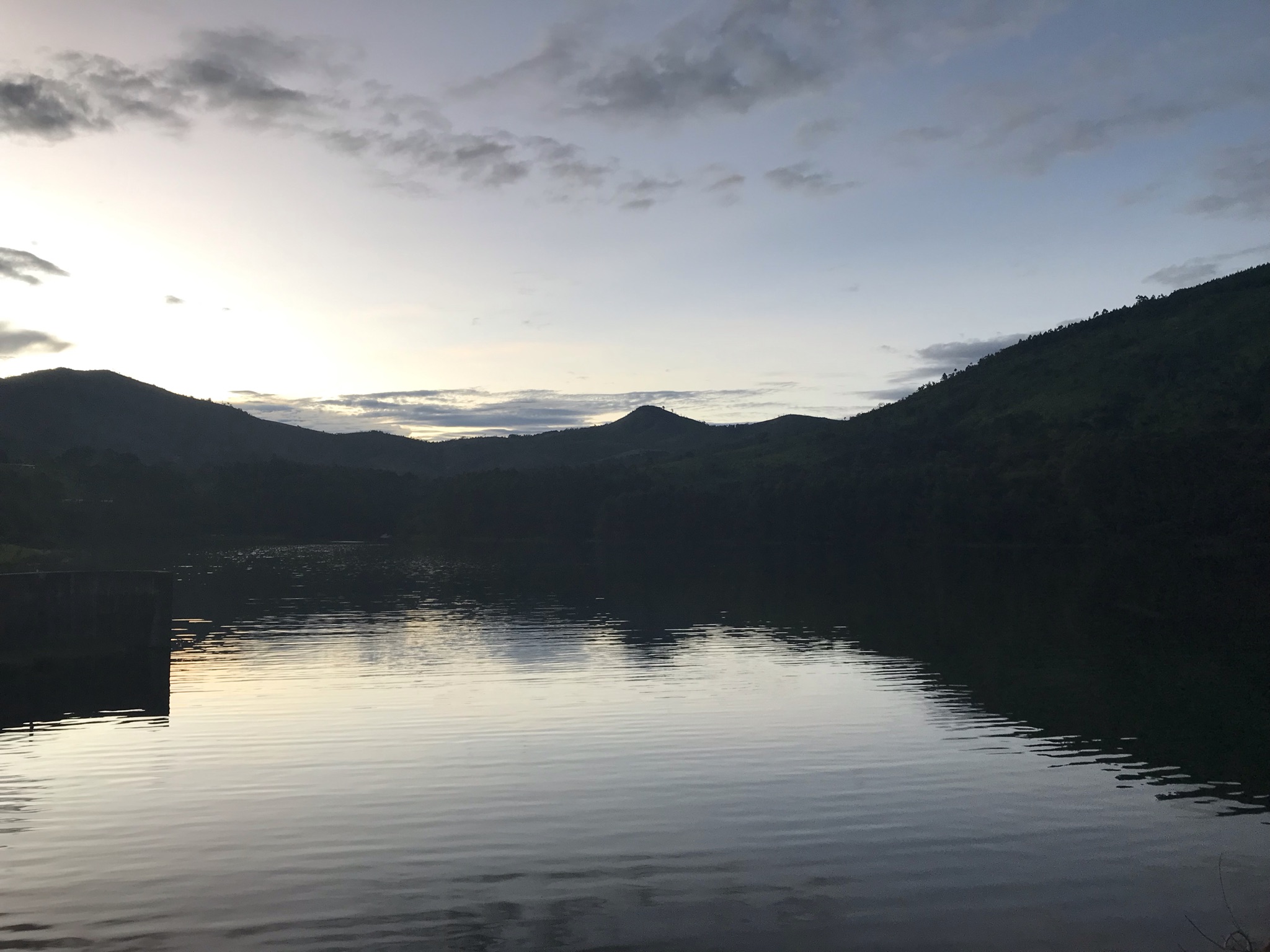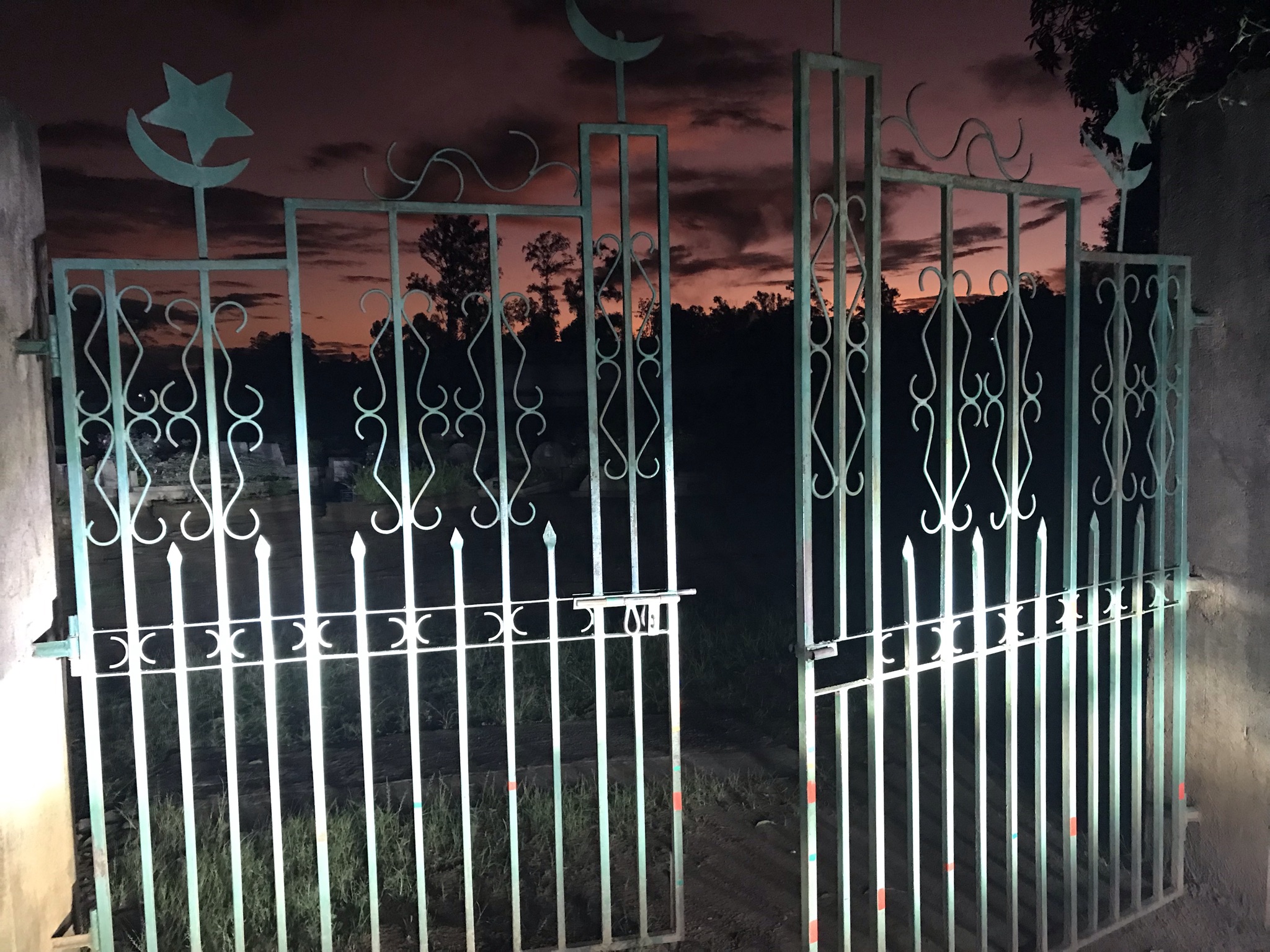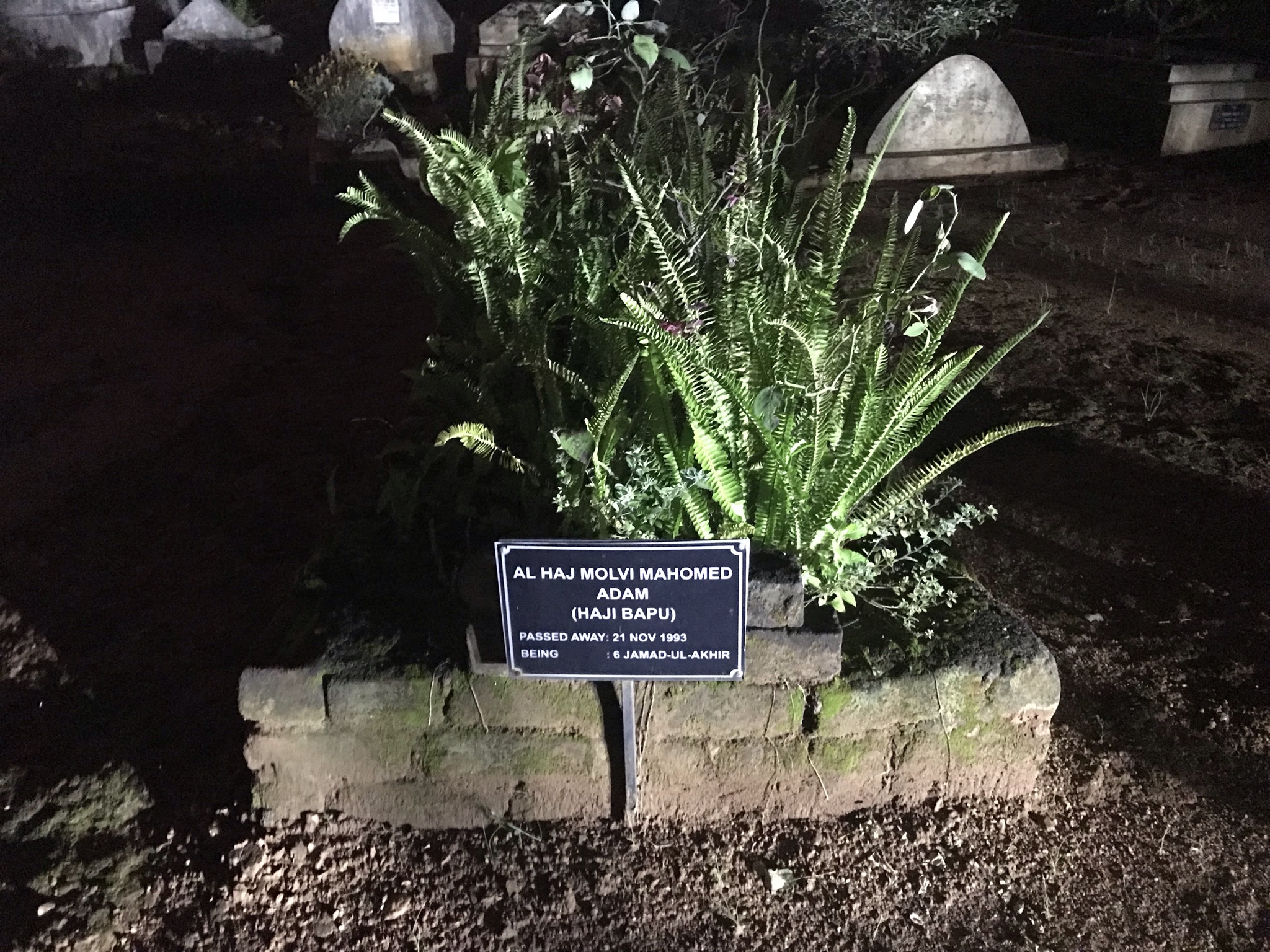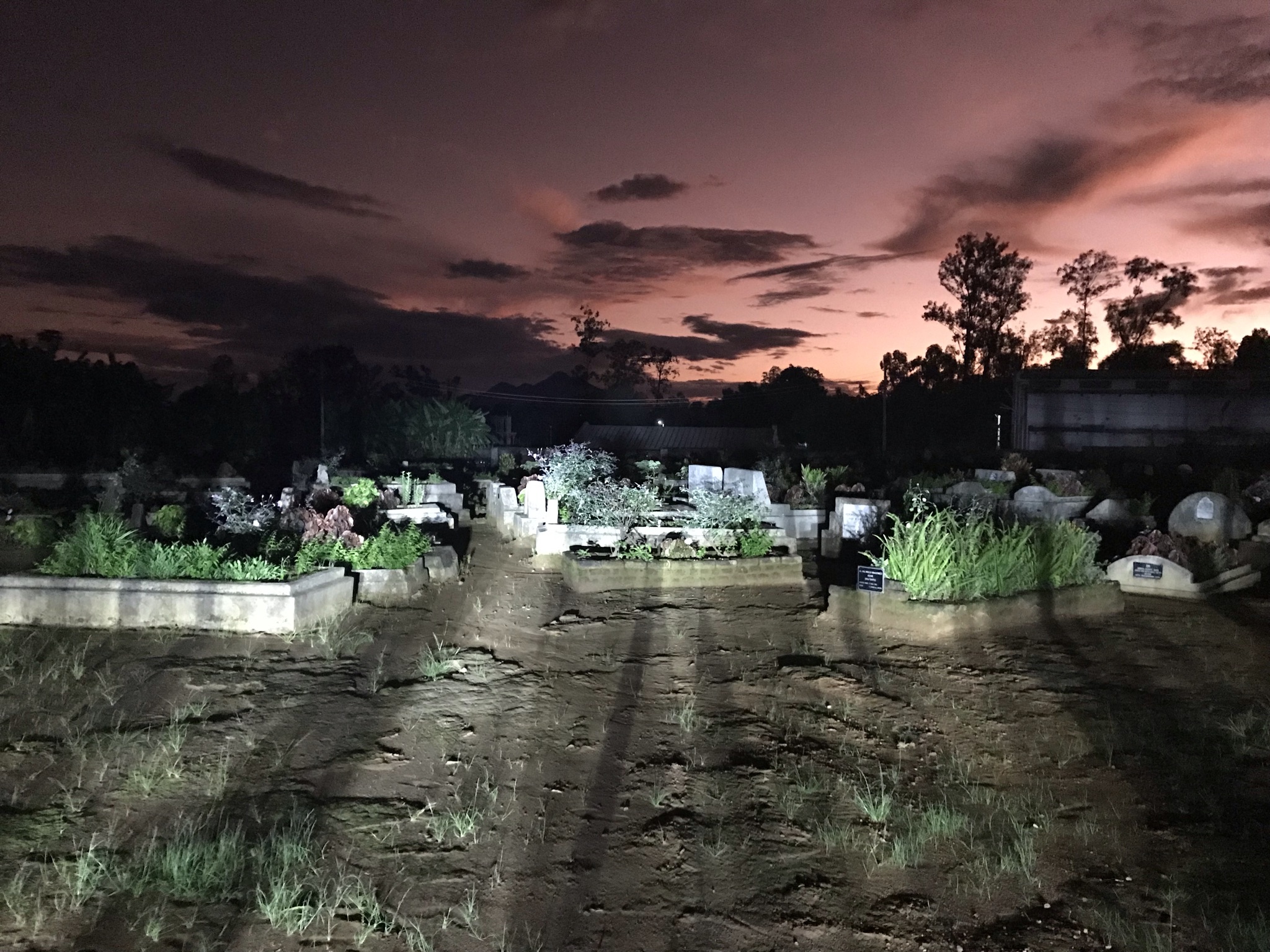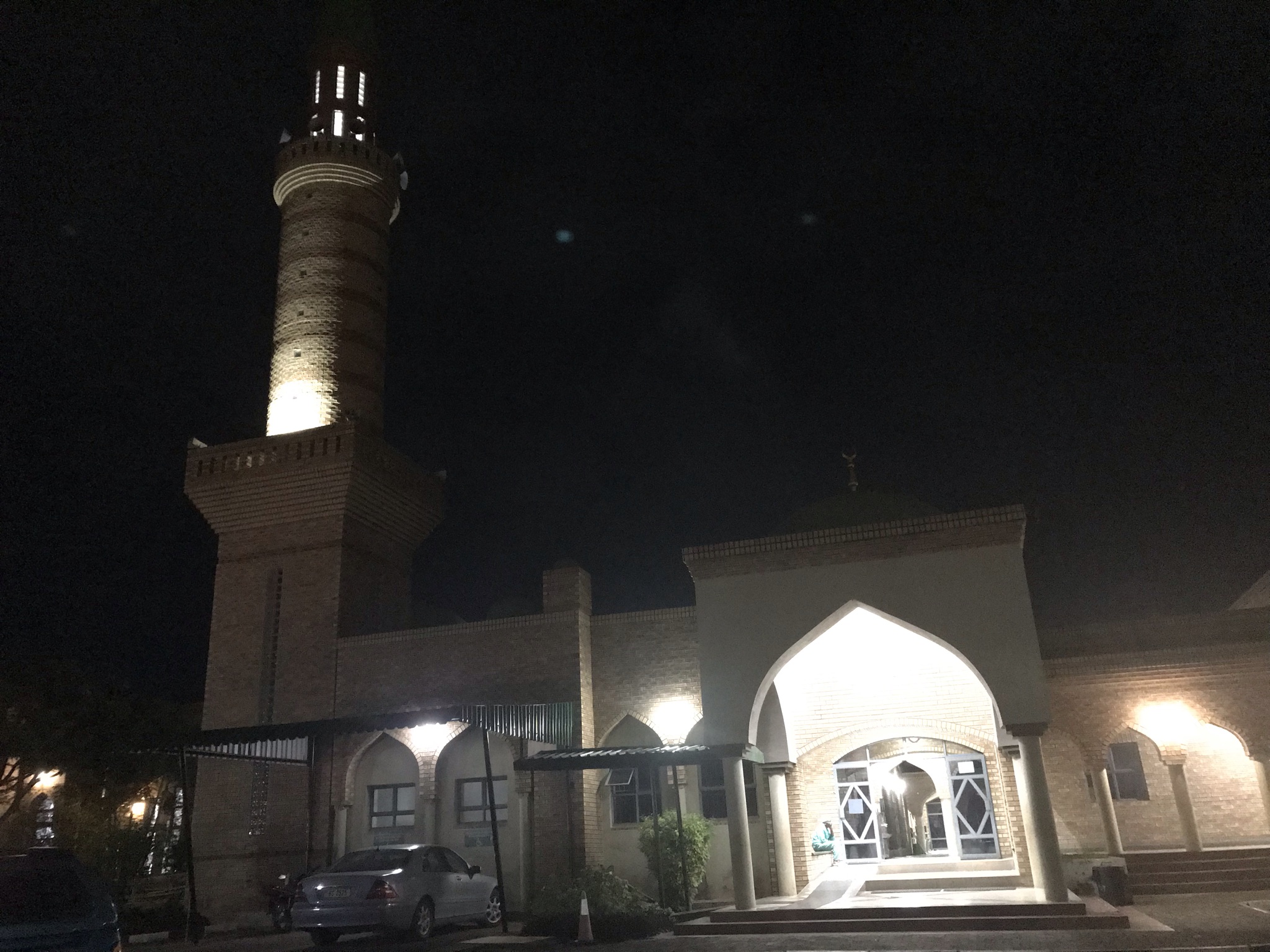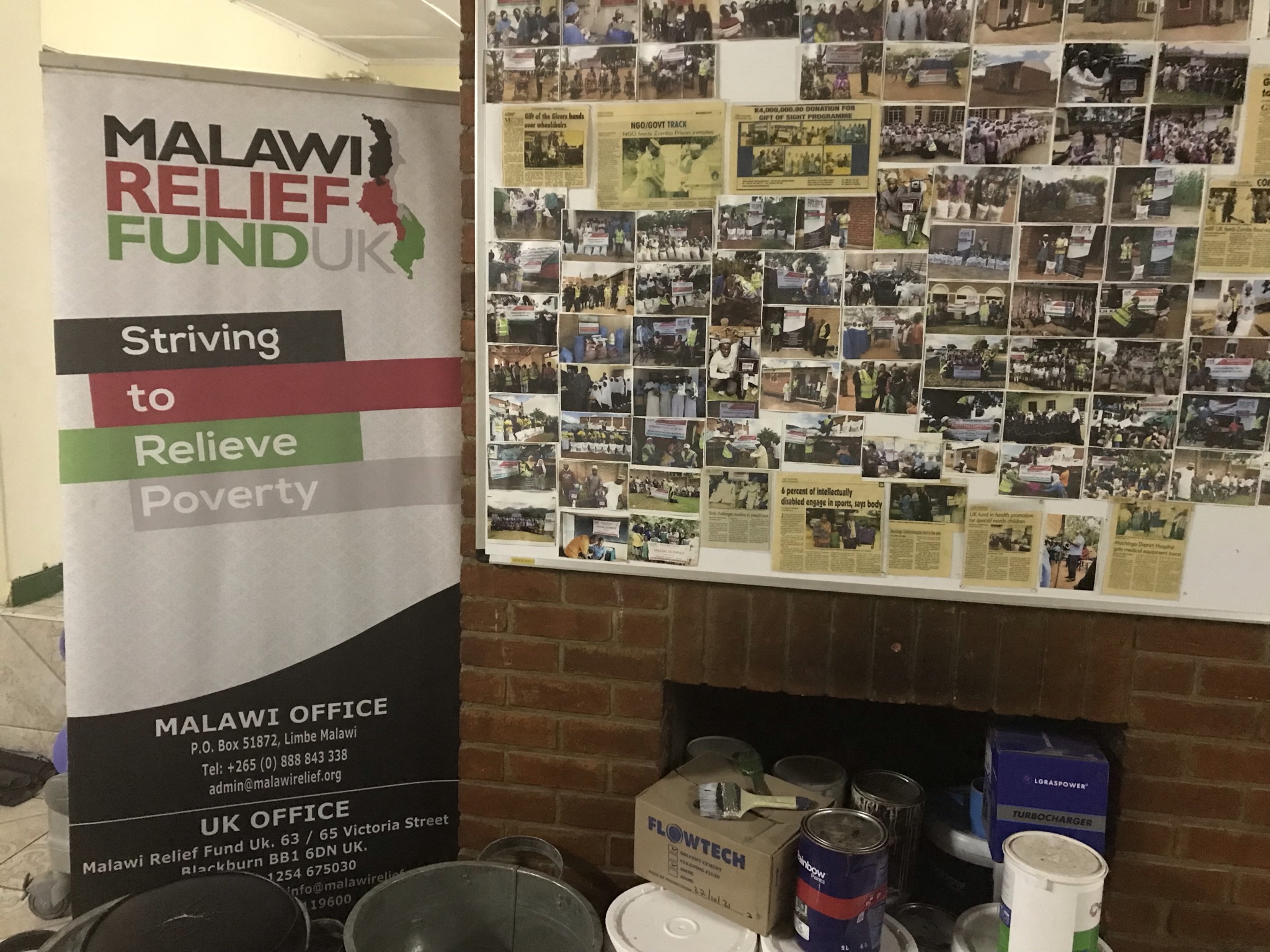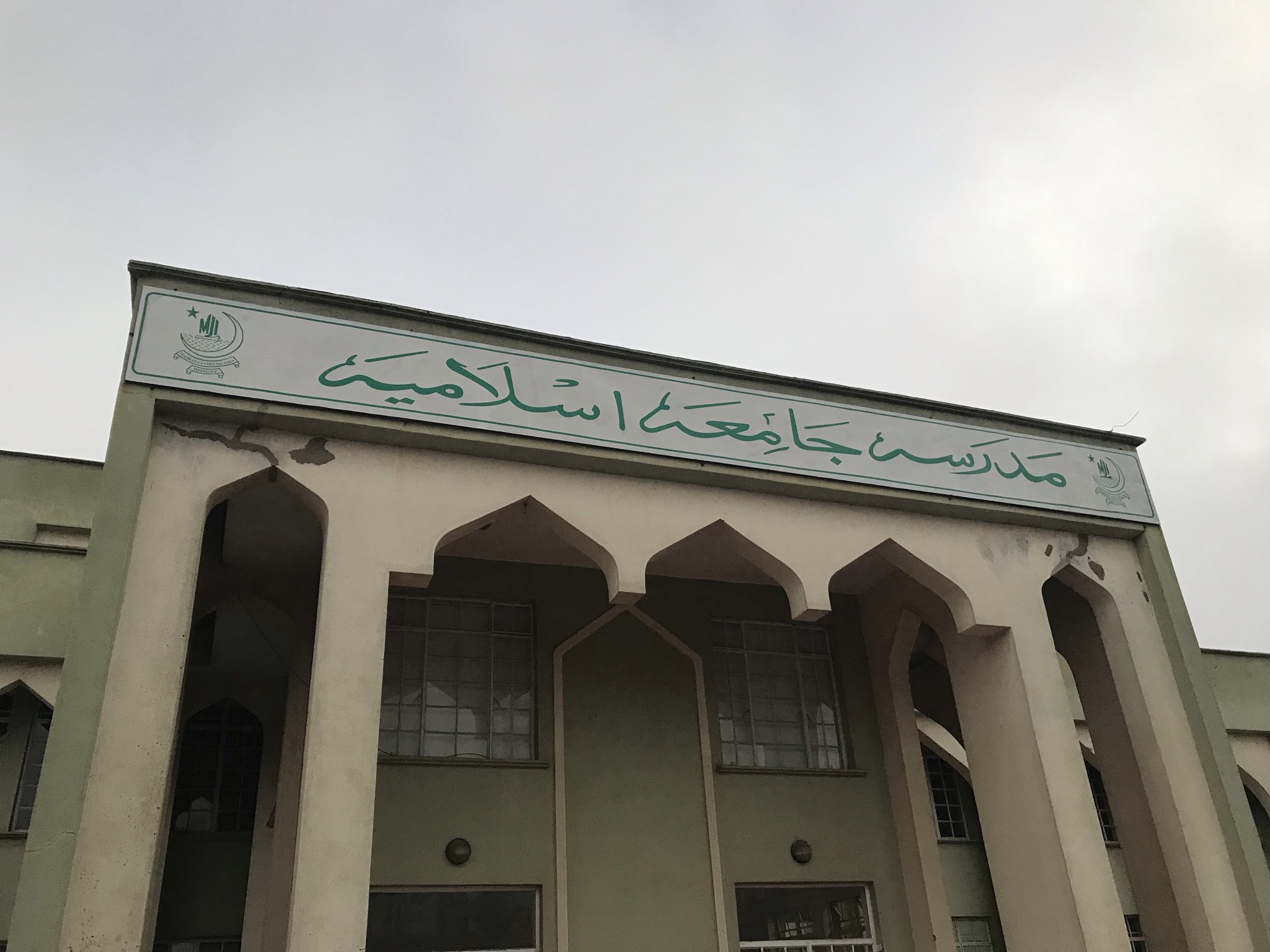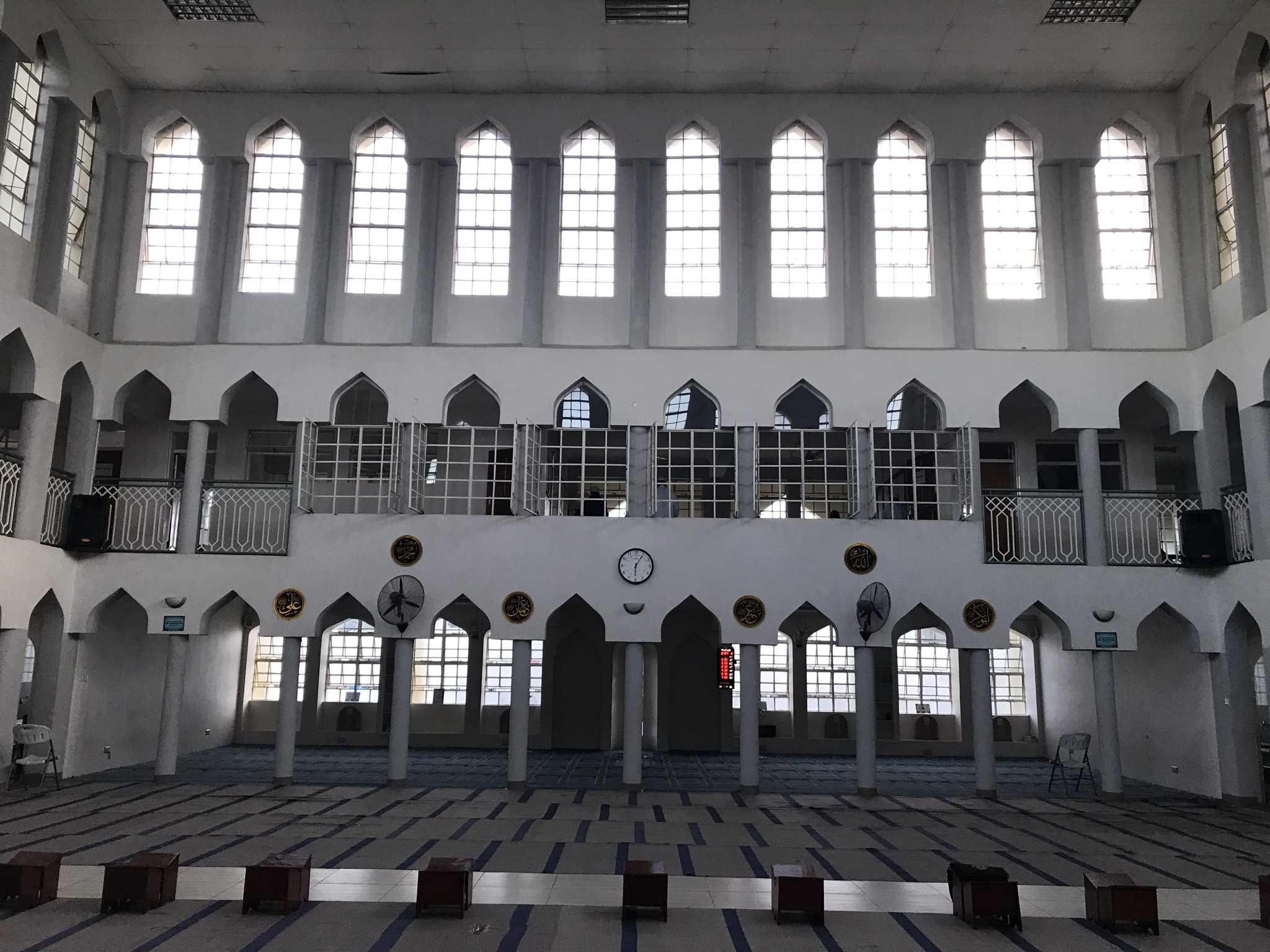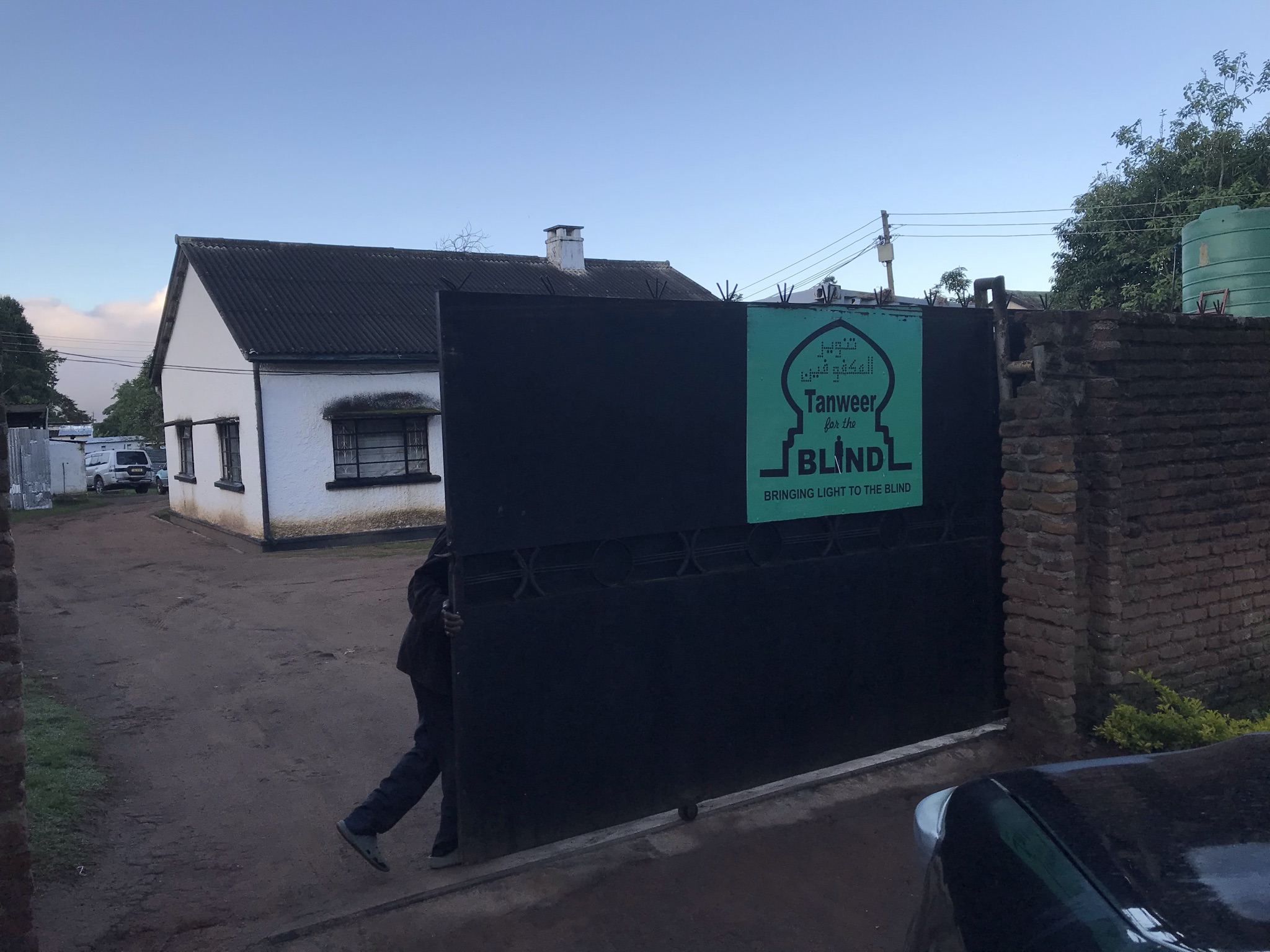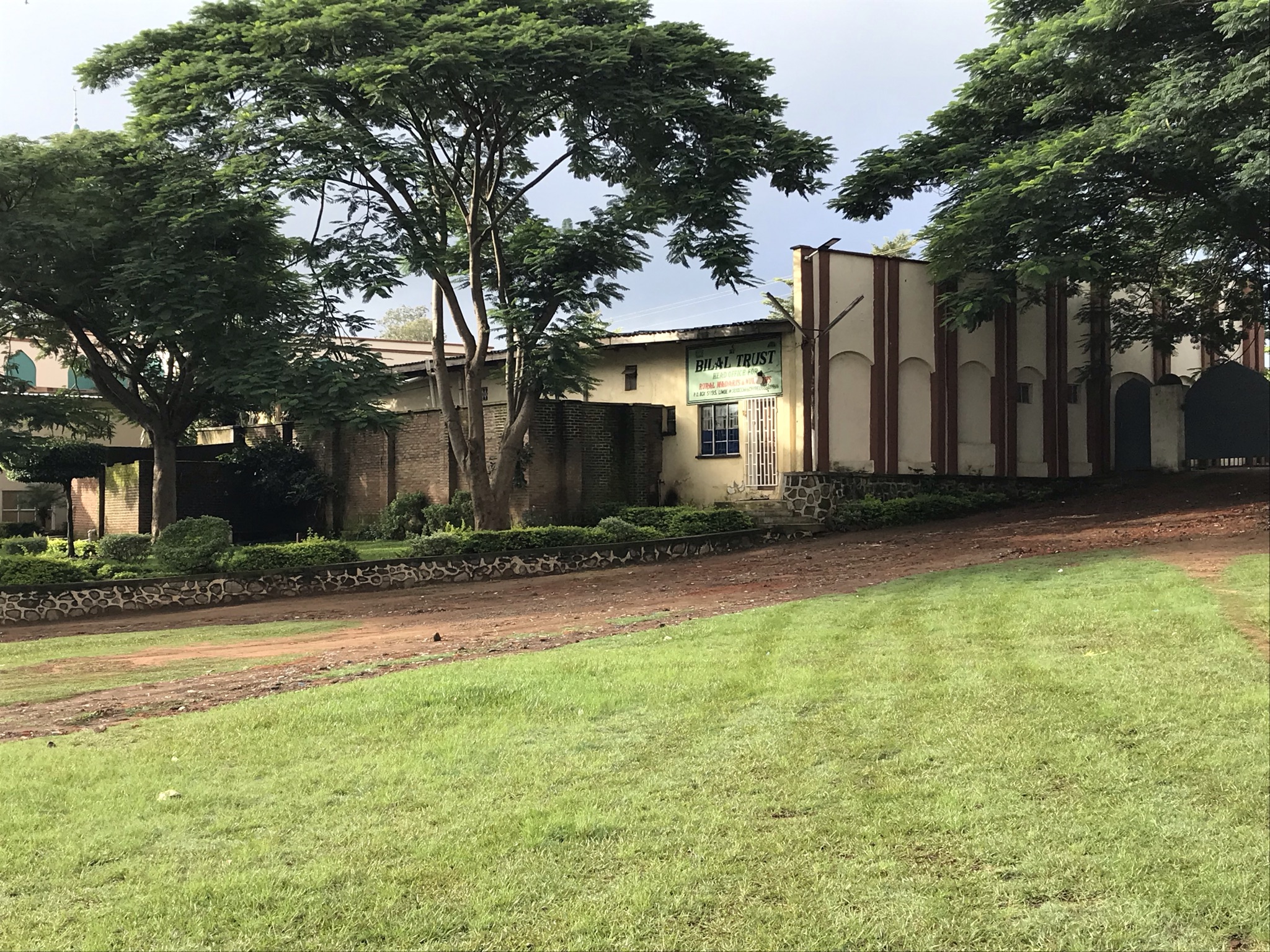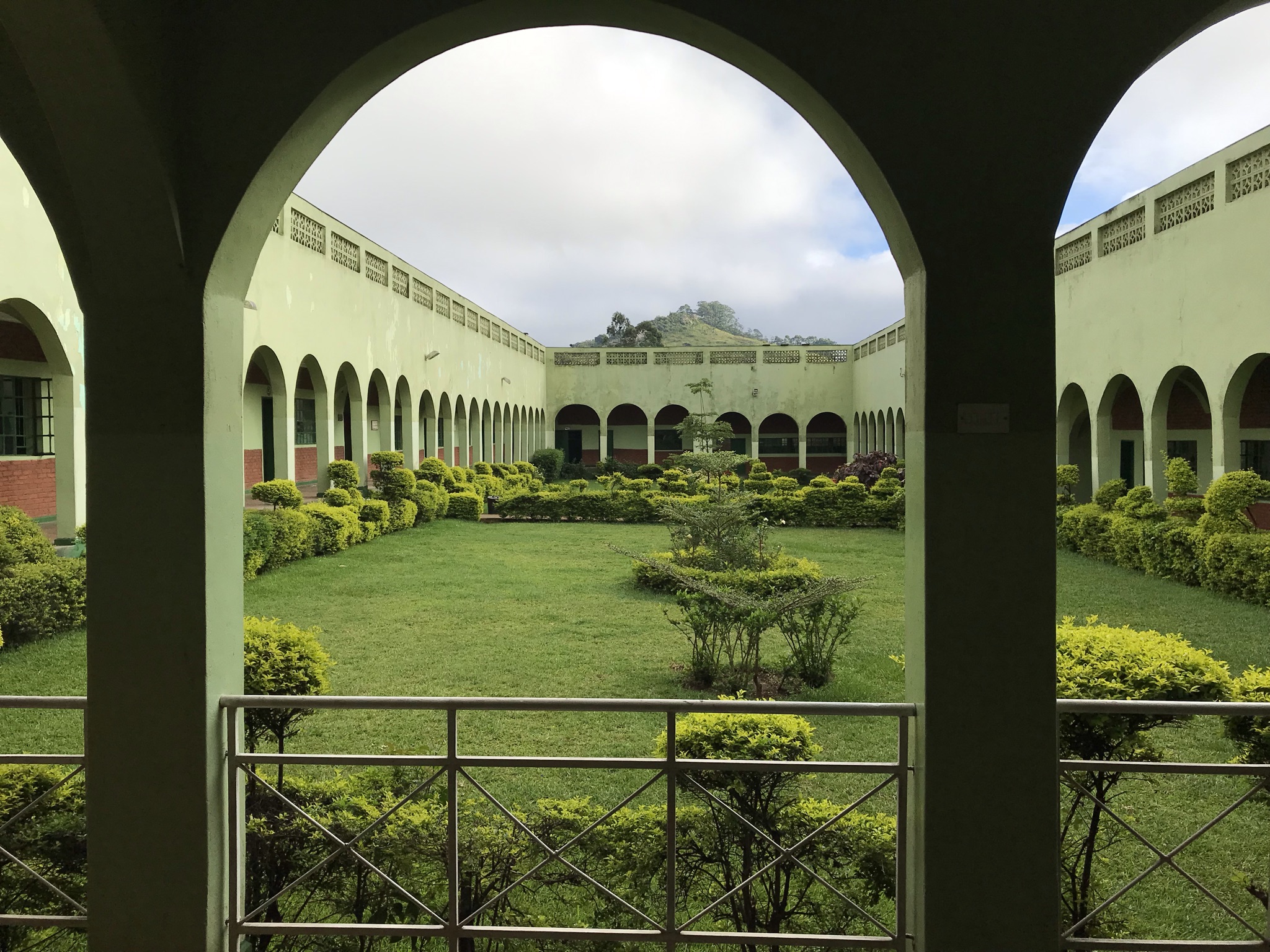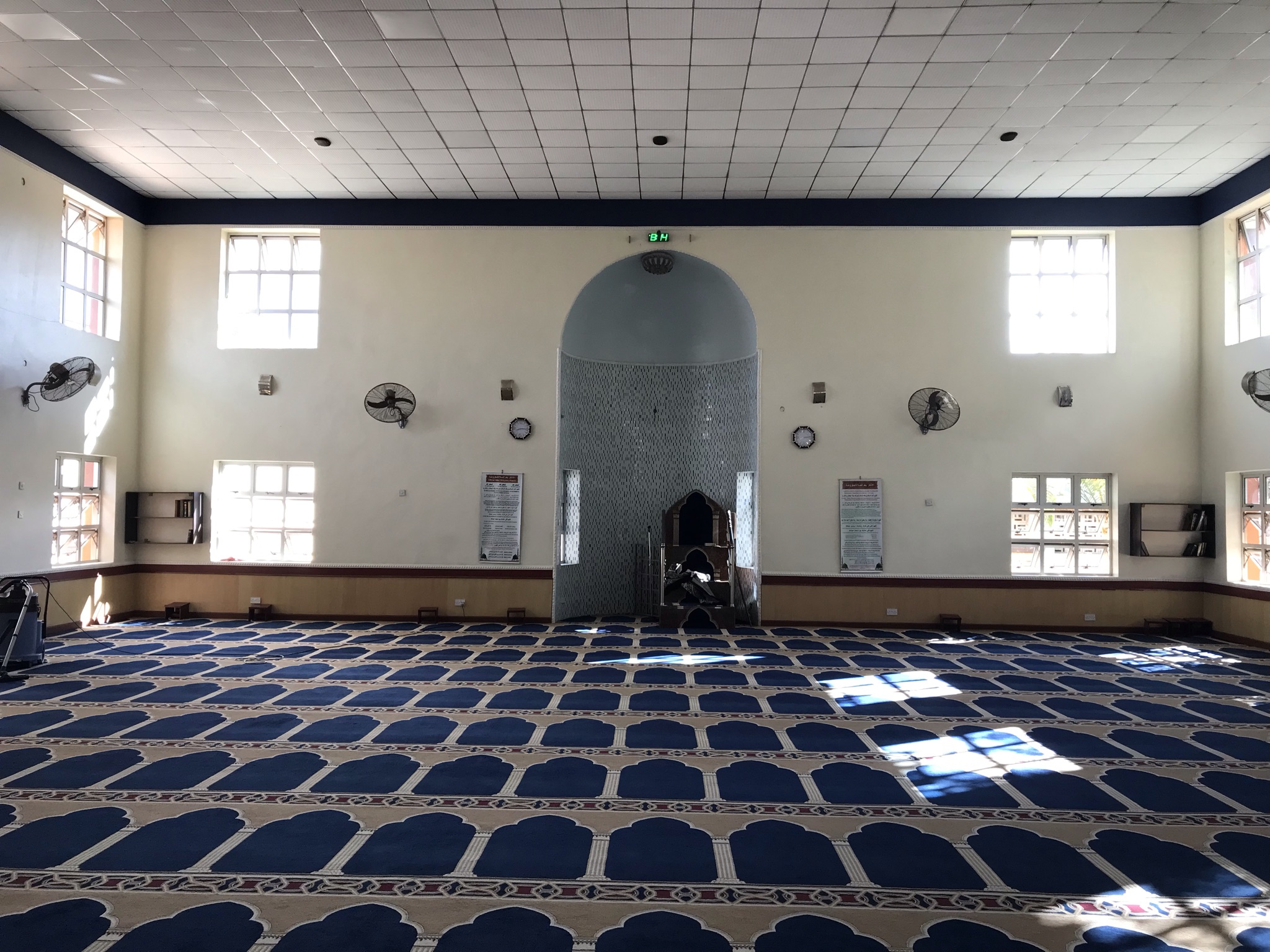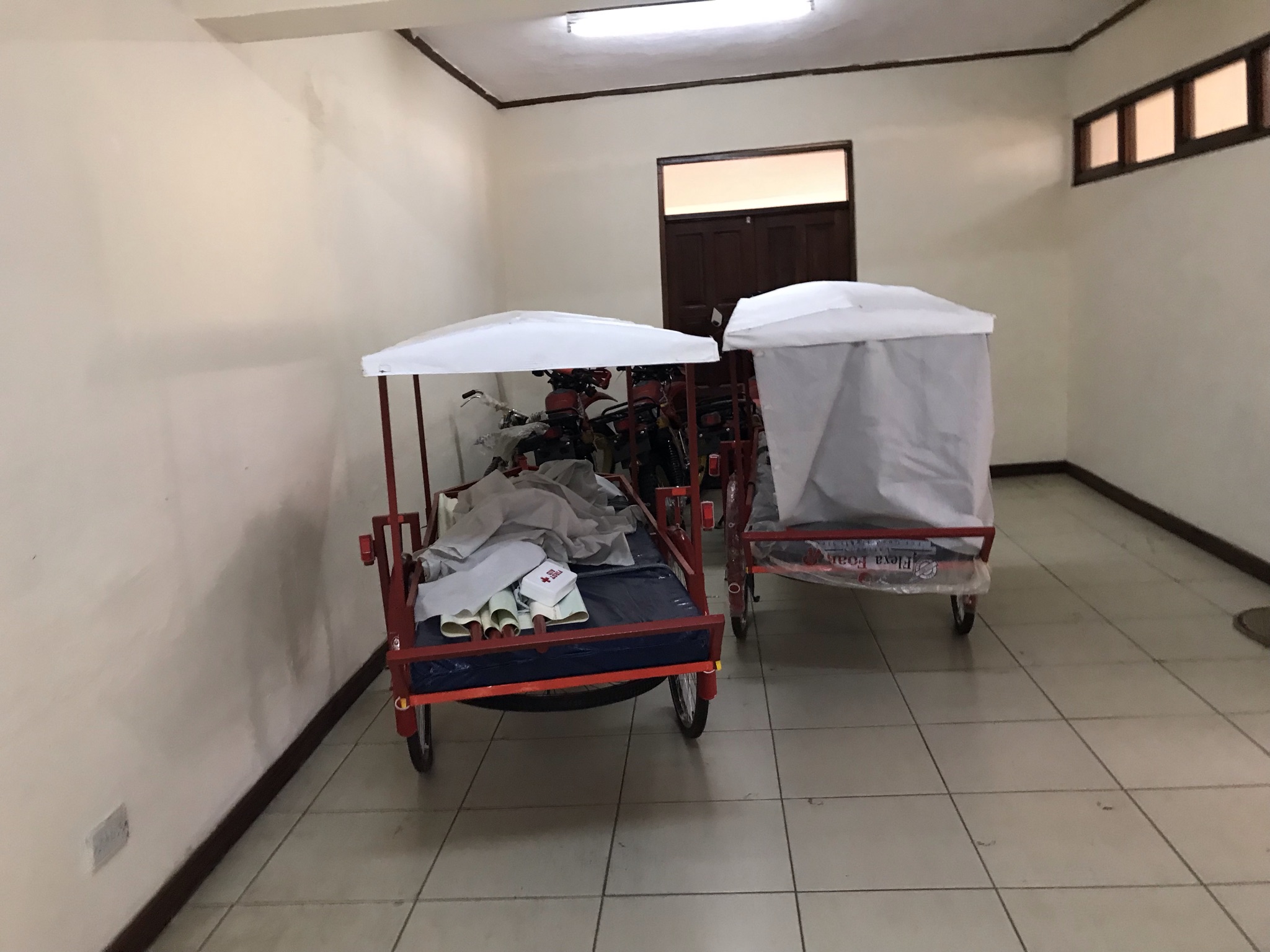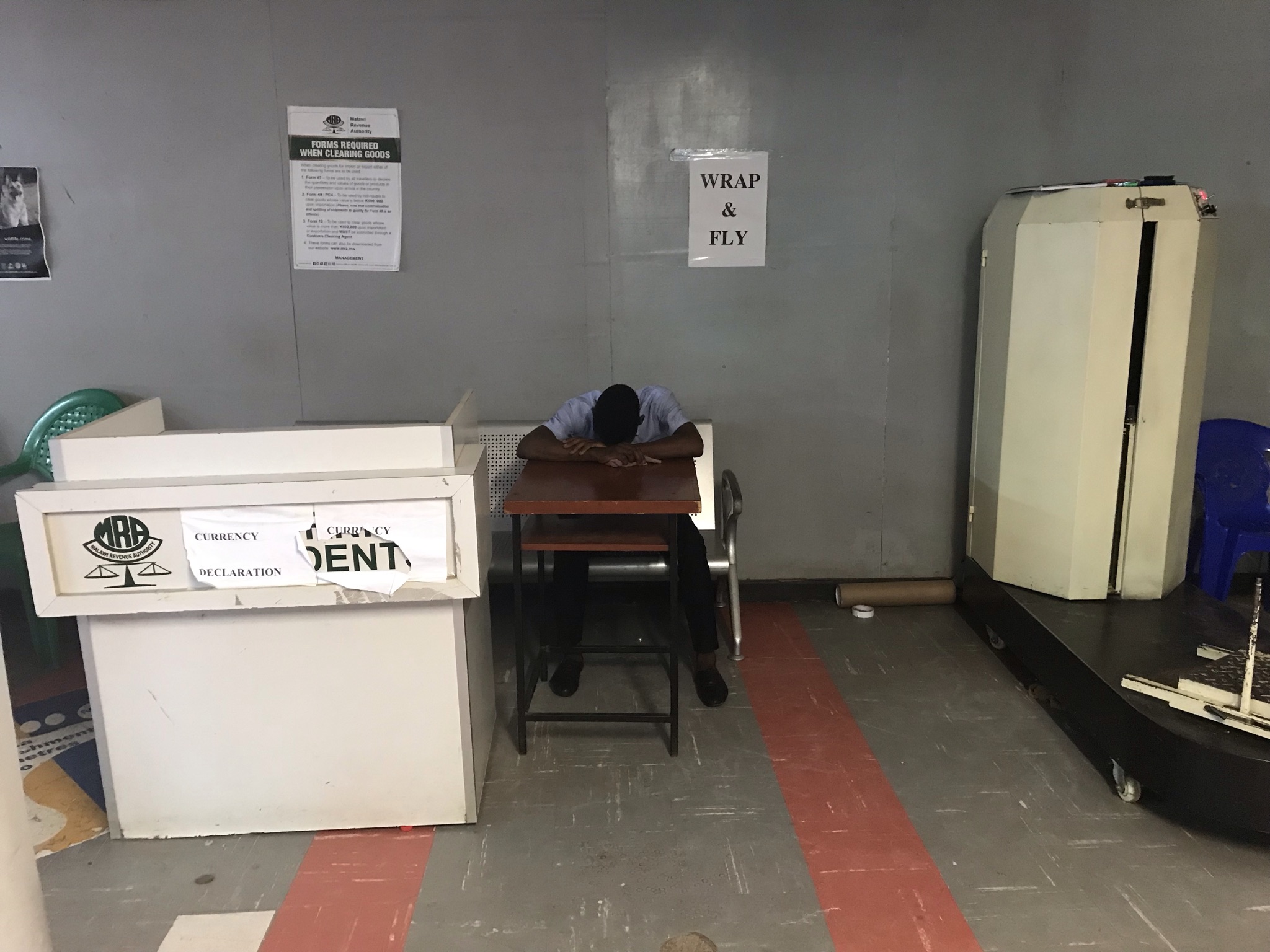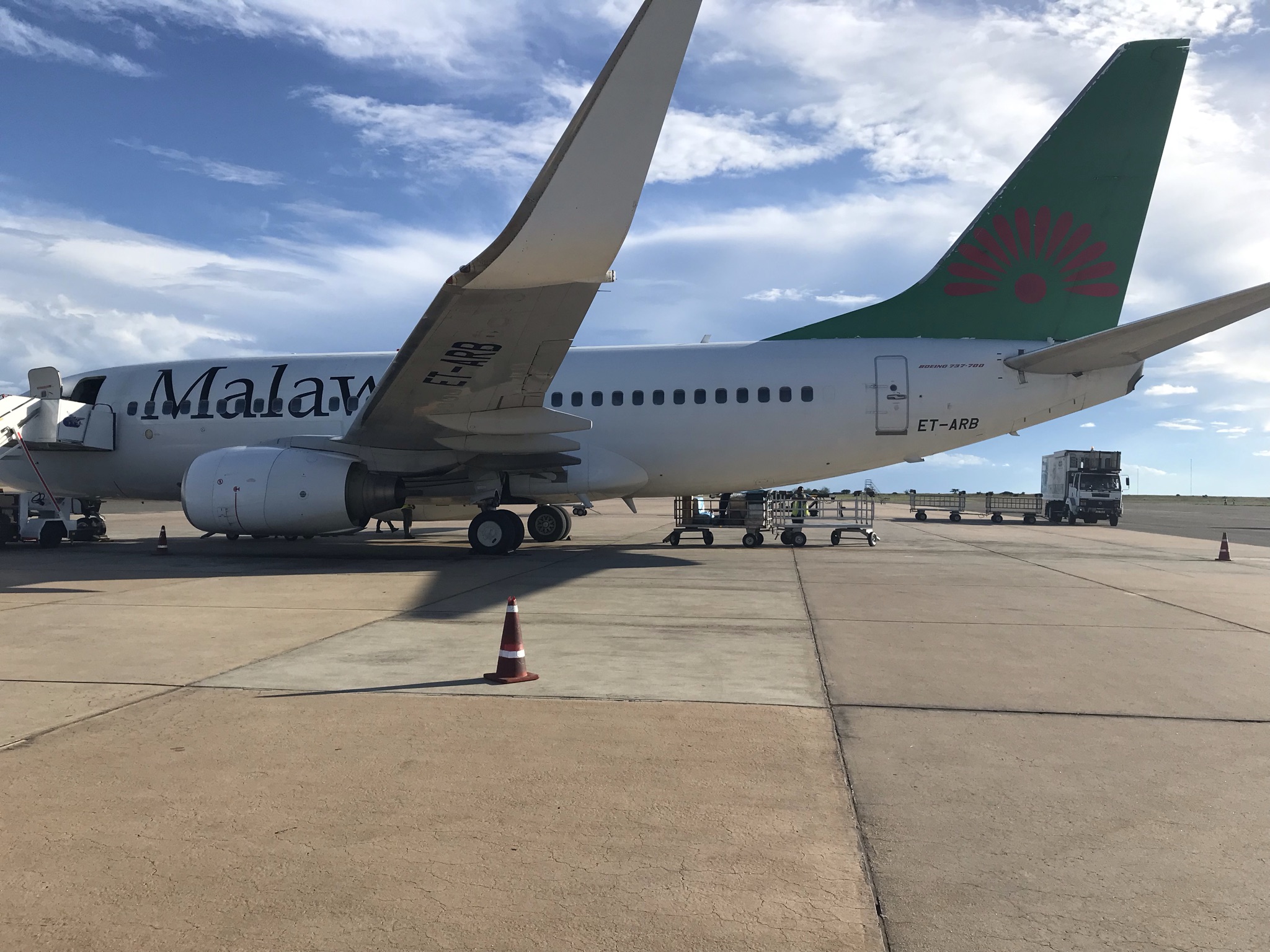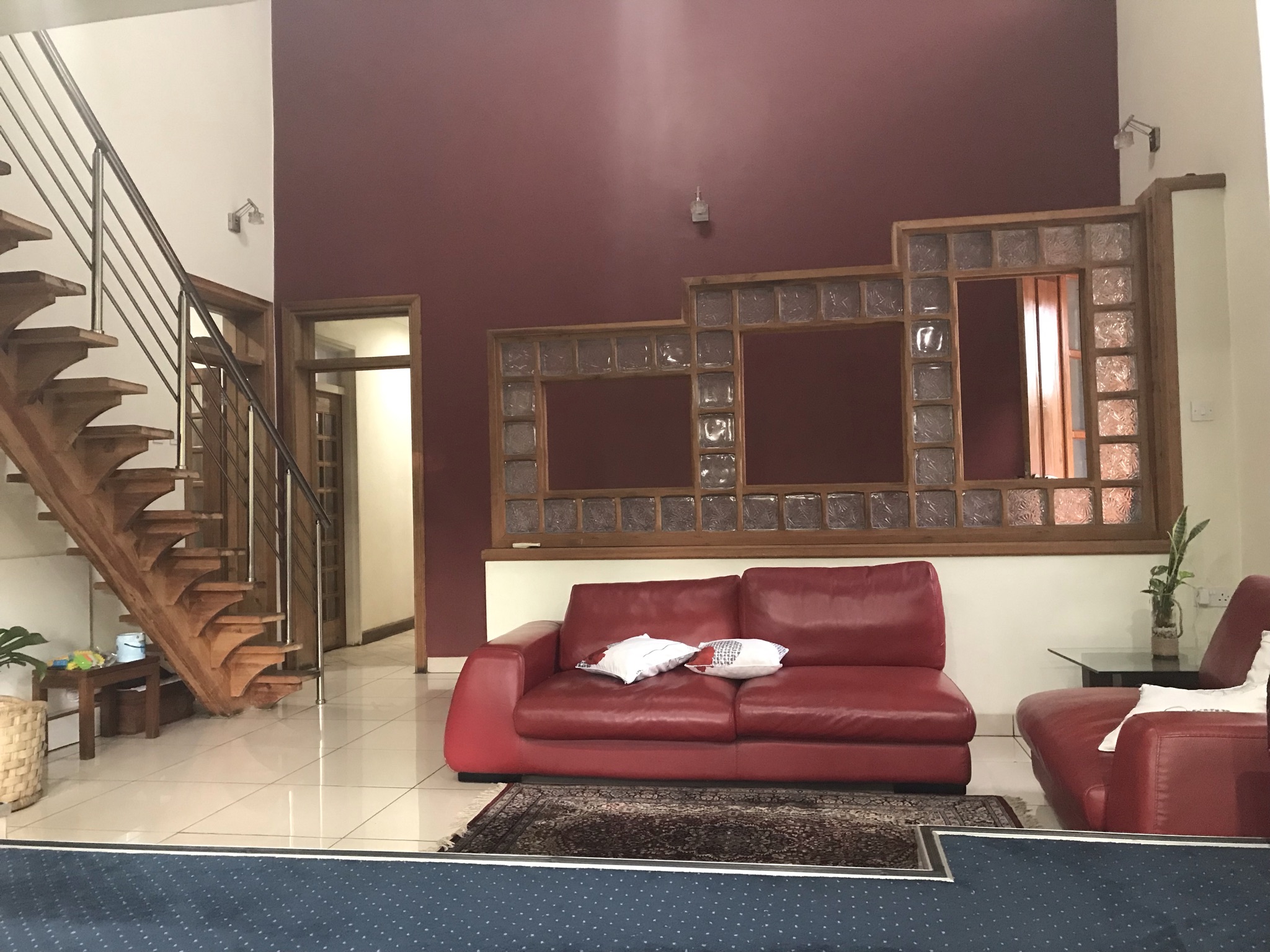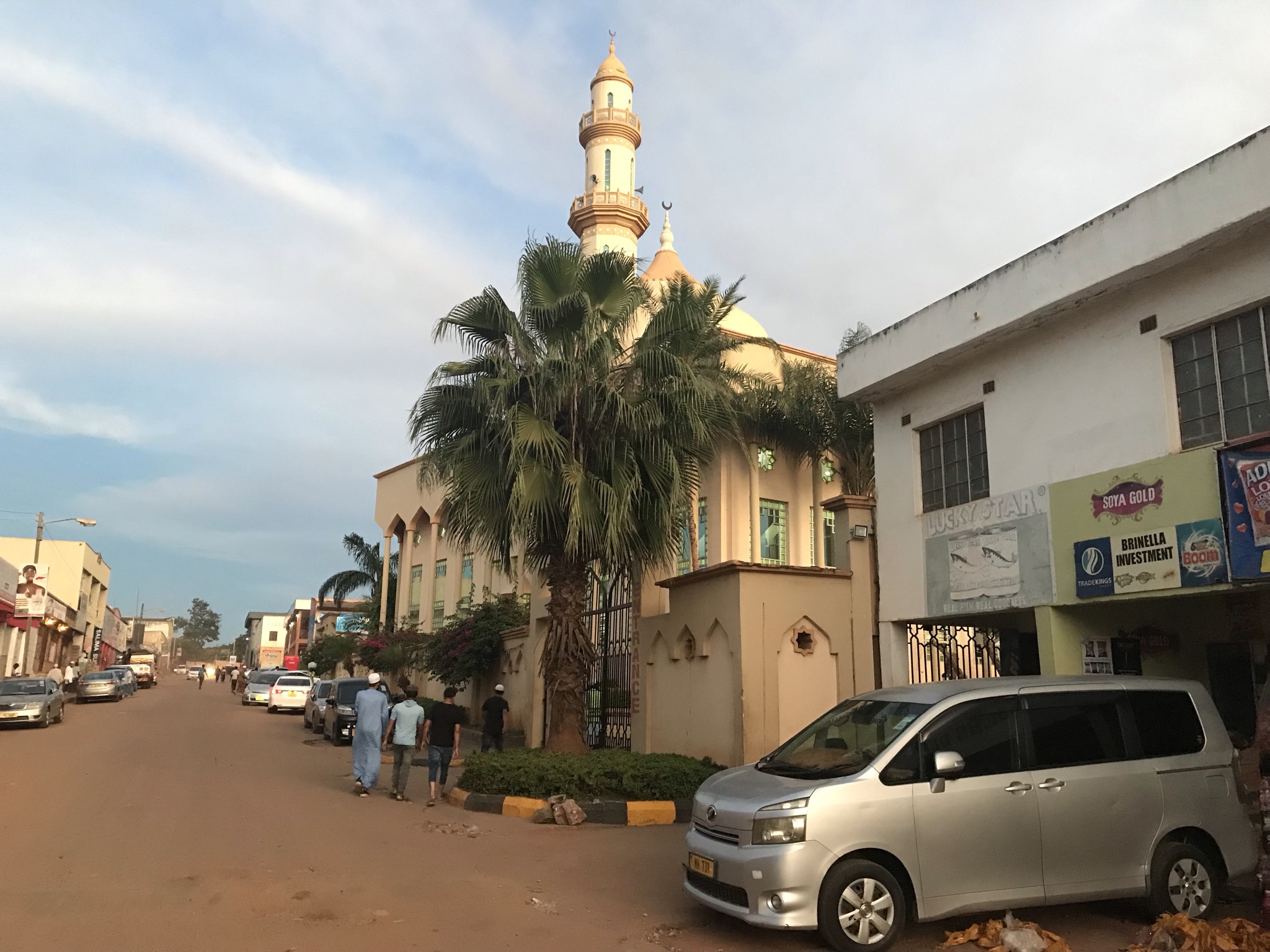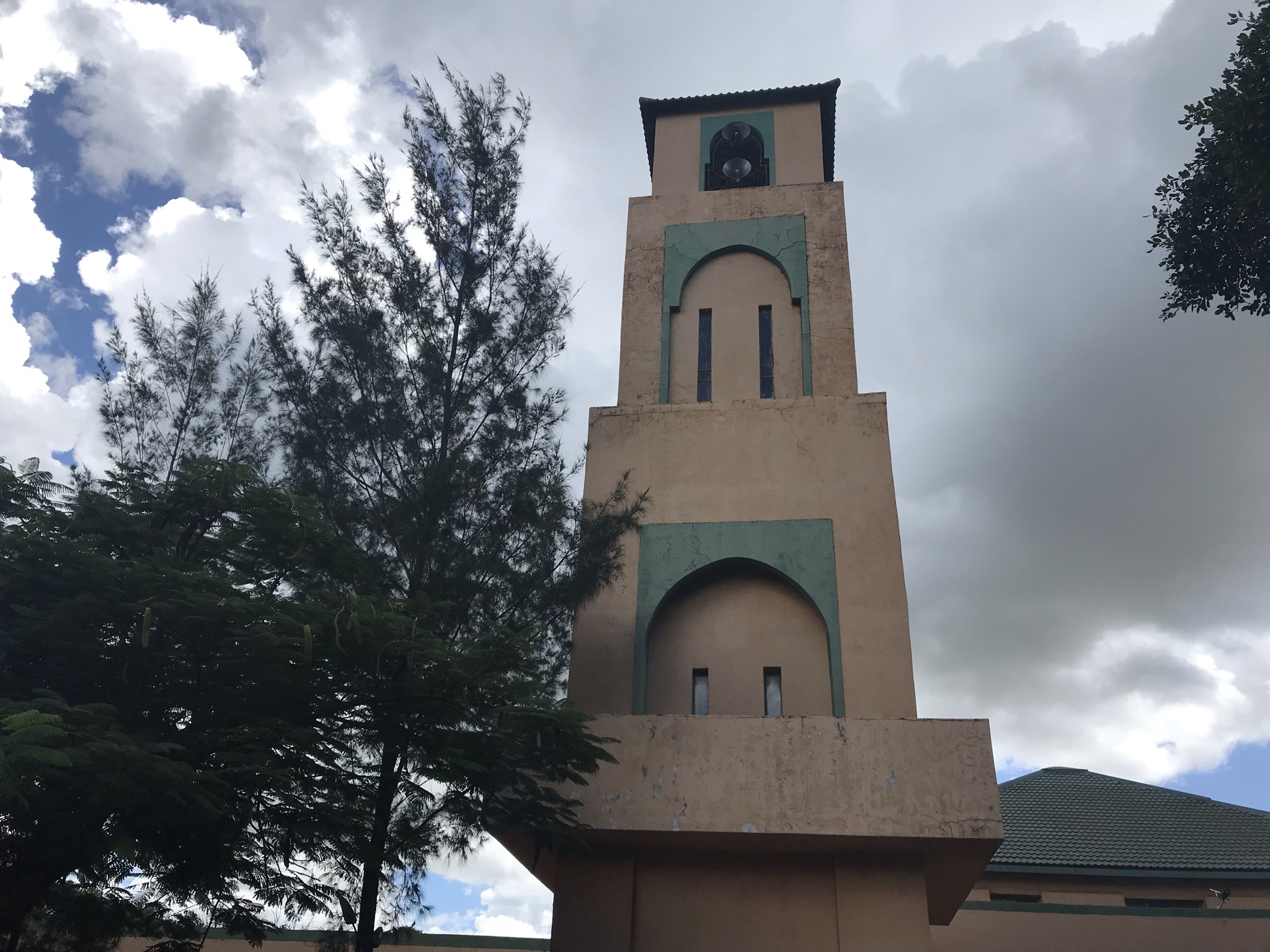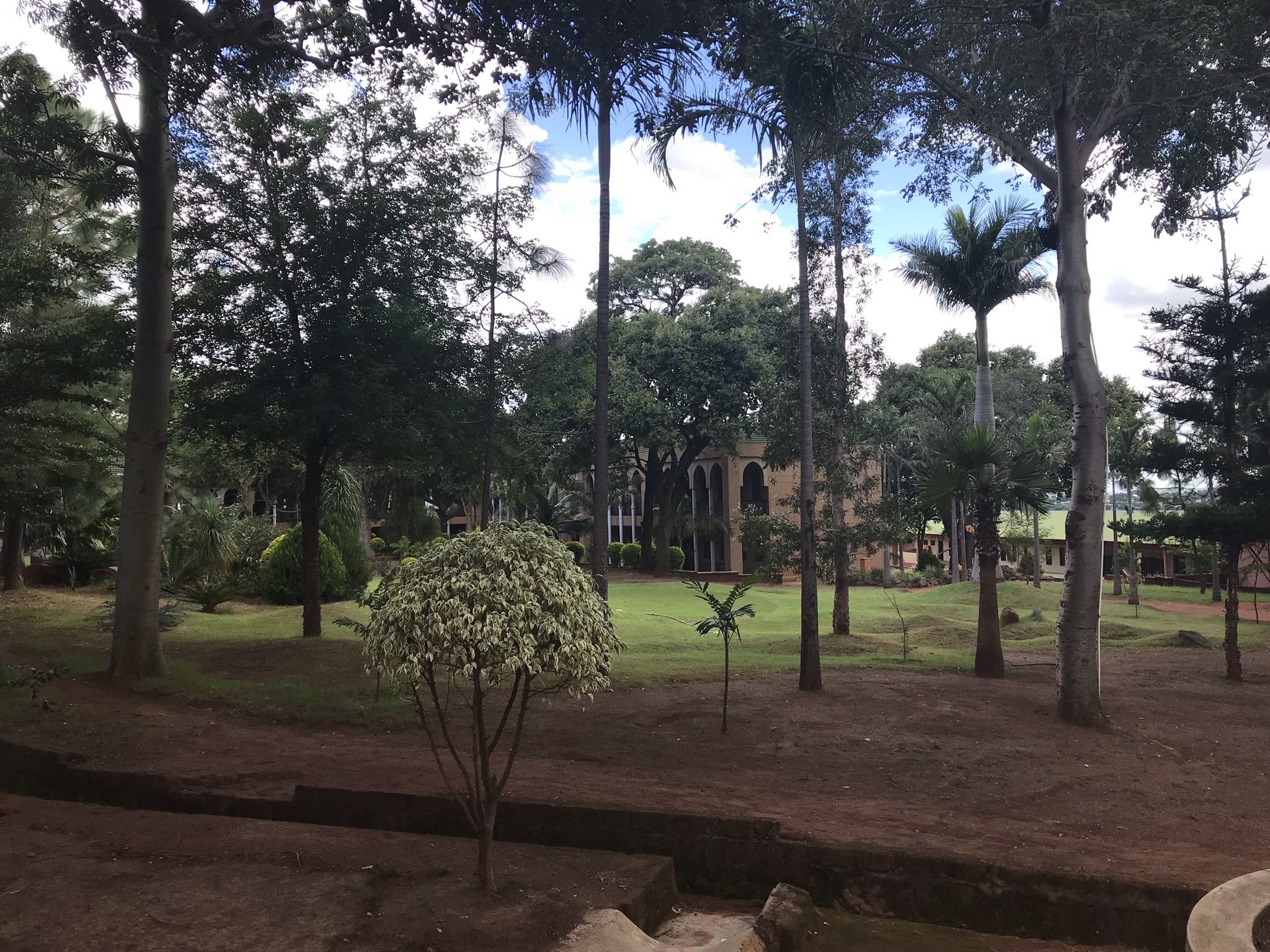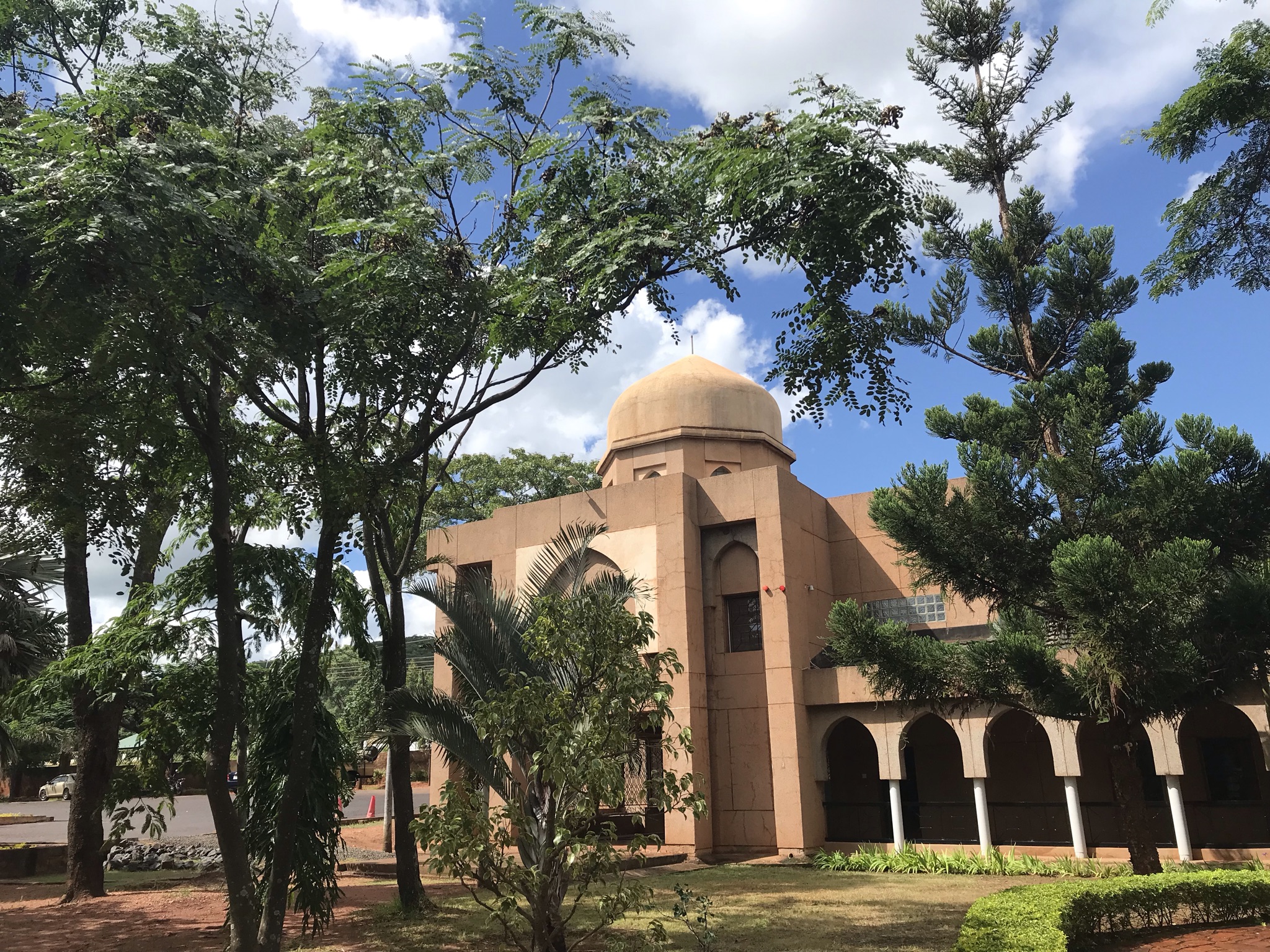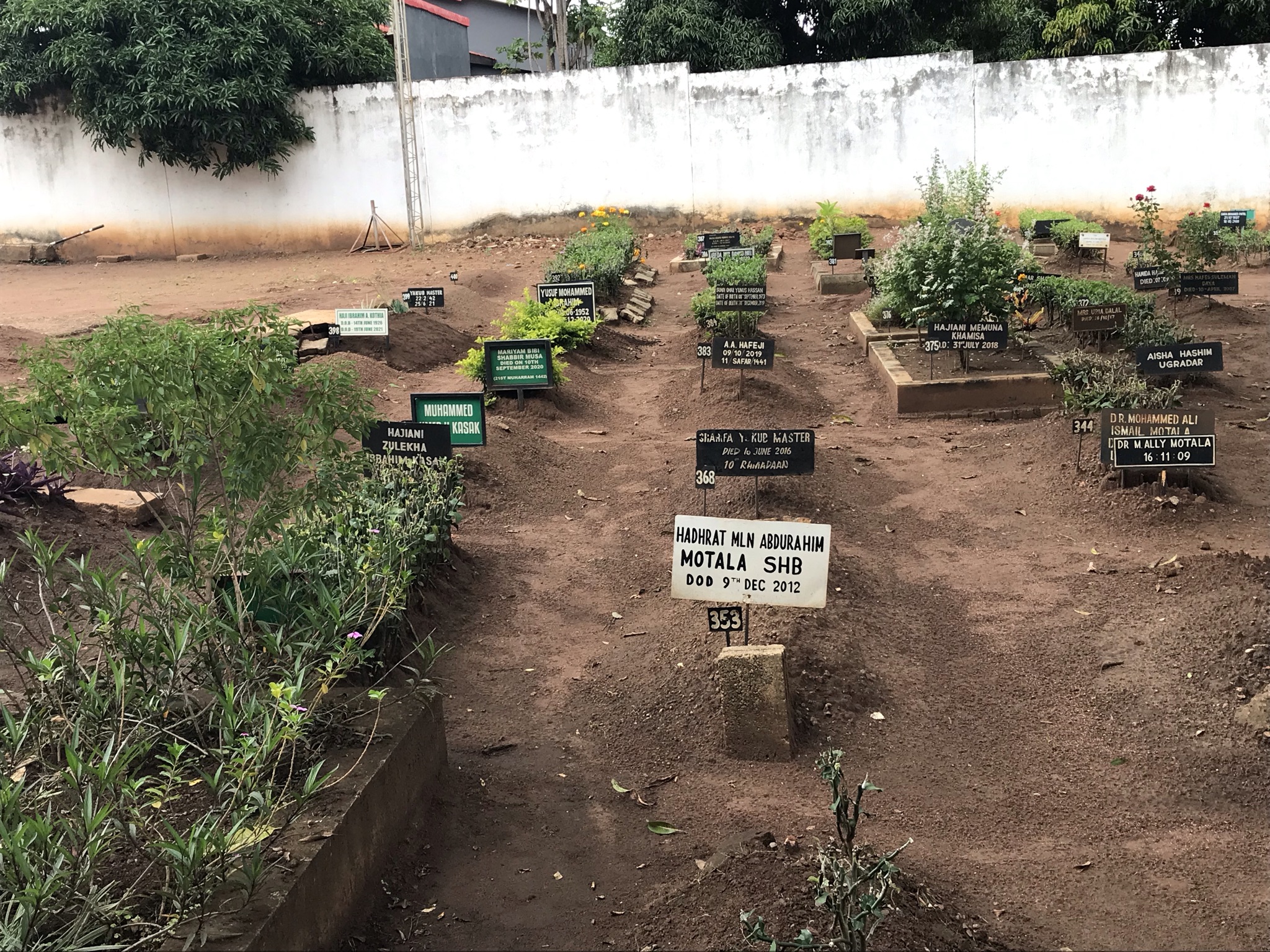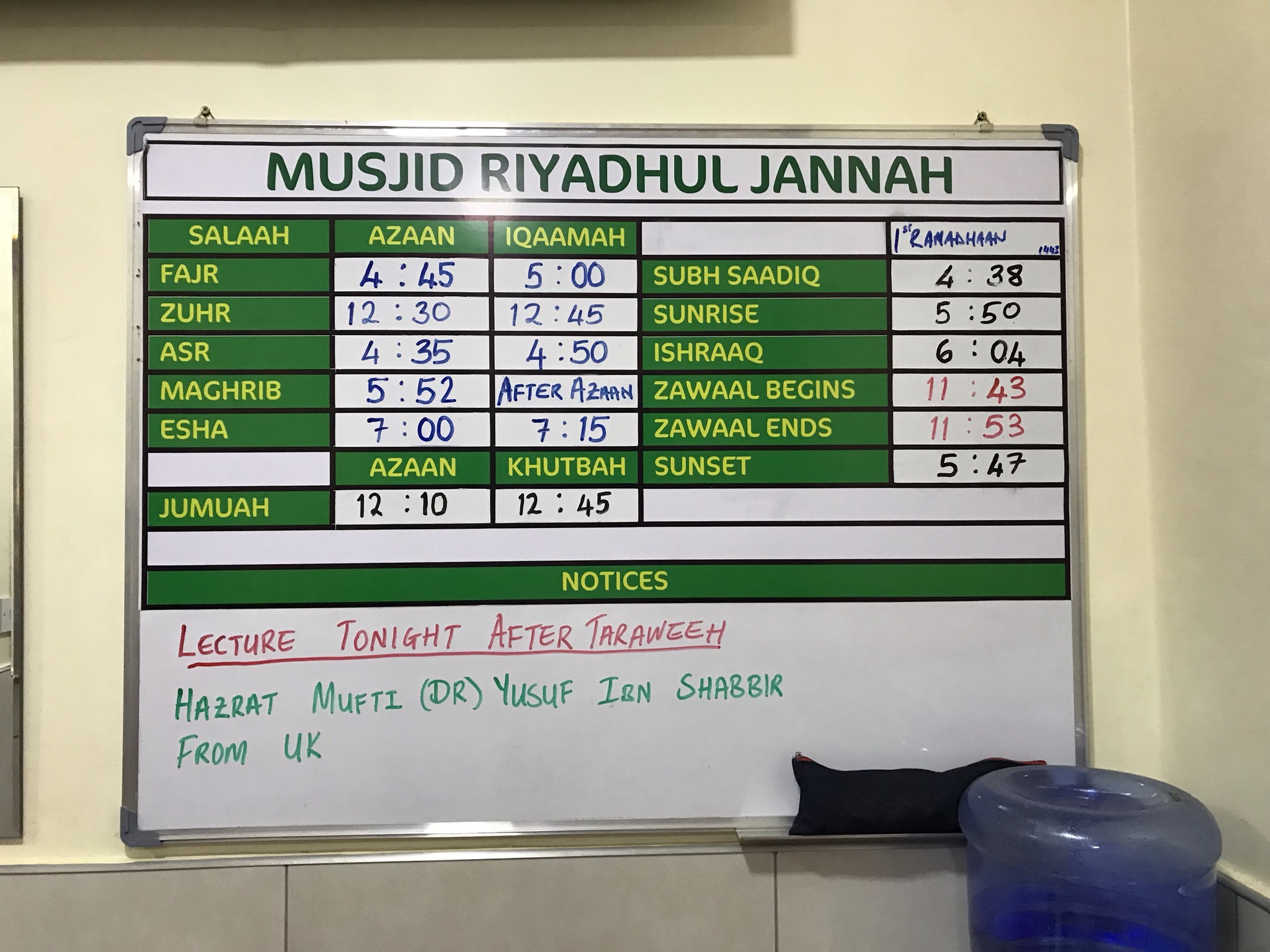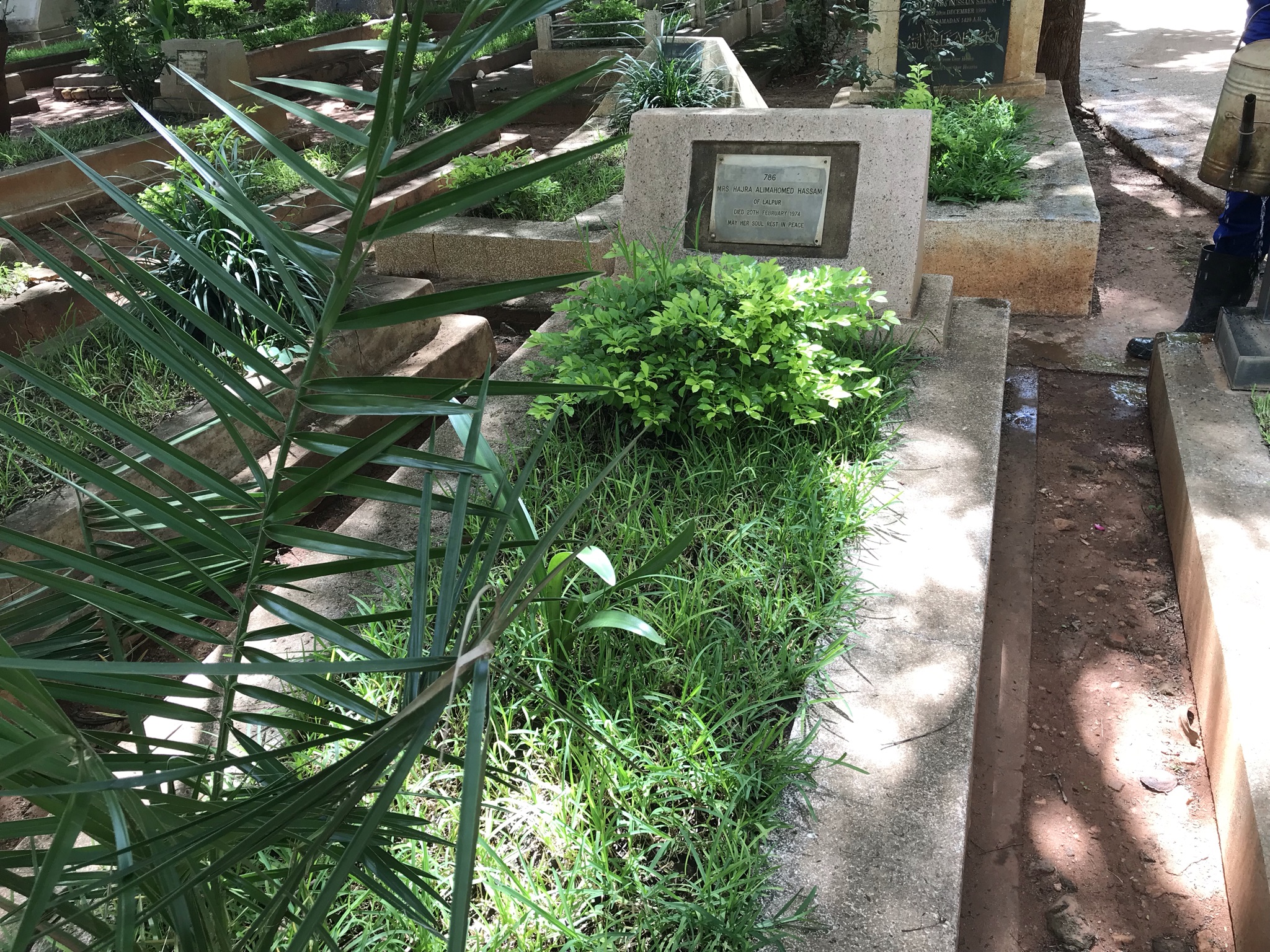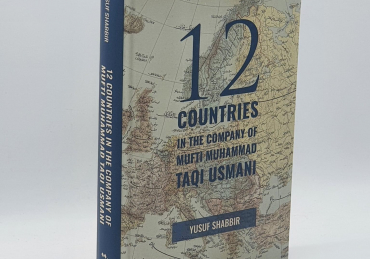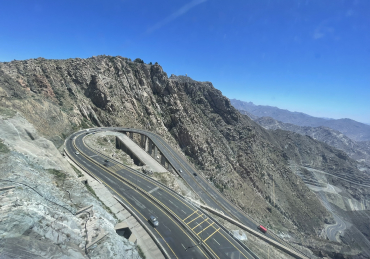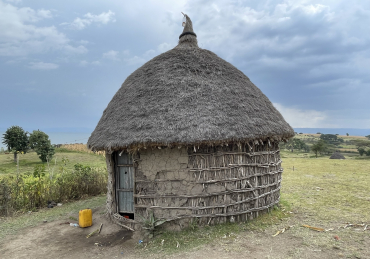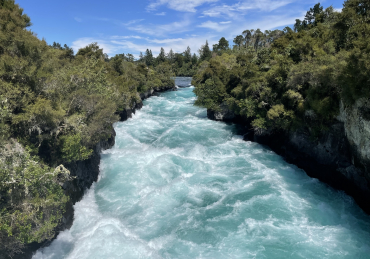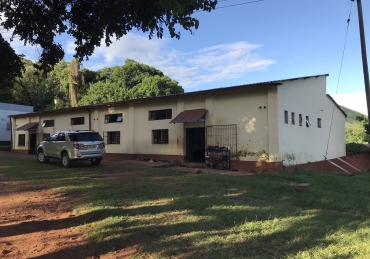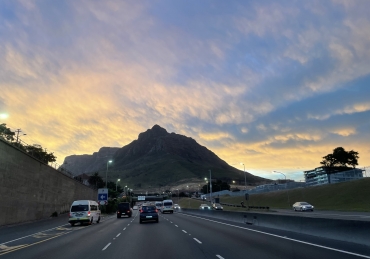One week in Malawi and East Zambia
In the Name of Allah, the Merciful, the Beneficent
Introduction
A few days ago, some very dear friends contacted me requesting me to visit Malawi and review their charitable and educational projects. During the last ten days of July 2017, I visited Malawi for the first time with our dear Abdul Rashid Geloo and visited some of these projects. This was one week after the demise of our respected teacher, Shaykh al-Ḥadīth Mawlānā Muhammad Yunus Jownpuri (d. 1438/2017). A travelogue was not written at the time. During that trip, I visited various cities including Zomba, the birthplace of my respected father Mufti Shabbir Ahmad (b. 1376/1957).
As the month of Ramadan is only a few days away, I decide to travel on Sunday 27 March 2022, earlier than originally planned. Flight options are limited from Manchester and it takes up to 20 hours. The best option is Ethiopian Airlines. My cousin and teacher, Mawlānā Rashid ibn Mawlānā Hashim Ṣāḥib, drops me to the Airport at 5pm. This is my first time at the recently refurbished Terminal 2. However, there is a long queue at both the check-in desk and also at security. It is shambolic and chaotic. The 6.55pm Ethiopian Airlines flight departs eventually at 8.15pm and heads to Brussels where some passengers board the flight. The flight is now heading to Ethiopia.
It is close to midnight and since boarding the flight at Manchester, I have been going through and responding to the backlog on my WhatsApp. There are messages congratulating me on my PhD award and there are also many questions on jurisprudence. WhatsApp has many benefits, but sometimes it is difficult to keep up with all the messages. Since my return from West Africa two weeks ago, it has been extremely busy due to our house move.
Day 1 – Monday 28 March 2022
Arrival into Malawi
Ethiopia
We arrive into Addis Ababa, the capital of Ethiopia, at 7.30am, one hour late. Ethiopia is a landlocked country in the Horn of Africa. It shares borders with Eritrea and Djibouti to the north, Somalia to the east and northeast, Kenya to the south, South Sudan to the west, and Sudan to the northwest.
The country has a total area of 420,000 square miles and is home to 117 million people, making it the 12th most populous country in the world and the 2nd most populous in Africa after Nigeria. Islam is the second-largest religion after Christianity. Approximately 1/3rd of the population is Muslim.
Addis Ababa Bole International Airport is a large airport with good facilities. Here, I meet a friend Abdul Wahid who has travelled from India to accompany me on this journey. His flight from New Delhi arrived a short while ago.
From Ethiopia to Malawi
At 9.40am, we board the Ethiopian Airlines flight to Lilongwe, Malawi.
The Republic of Malawi is a landlocked country in South-eastern Africa that was formerly known as Nyasaland. It is bordered by Zambia to the west, Tanzania to the north and northeast, and Mozambique to the east, south and southwest. The name Malawi comes from the Maravi, an old name for the Chewa people who inhabit the area. The country is nicknamed ‘The Warm Heart of Africa’ because of the friendliness of its people.
In 1891, the country was colonised by the British and became a protectorate of the United Kingdom known as Nyasaland. In 1953, it became a protectorate within the semi-independent Federation of Rhodesia and Nyasaland, which was dissolved a decade later. In 1964, the country became independent and was renamed Malawi. For the next three decades, the country was ruled by Dr Hastings Kamuzu Banda. Today, Malawi is a democratic, multi-party republic headed by an elected president.
Malawi spans over 45,747 square miles and has an estimated population of 19.5 million. According to official statistics, the Muslim population does not exceed one fifth. However, local Muslim leaders suggest that the percentage is much higher with some suggesting 50%. The official languages are Chichewa and English. The country is heavily dependent on foreign aid and is from among the world’s least developed countries.
The Encyclopaedia Britannica states:
“Endowed with spectacular highlands and extensive lakes, it occupies a narrow, curving strip of land along the East African Rift Valley. Lake Nyasa, known in Malawi as Lake Malawi, accounts for more than one-fifth of the country’s total area. Most of Malawi’s population engages in cash-crop and subsistence agriculture. The country’s exports consist of the produce of both small landholdings and large tea and tobacco estates. Malawi has received a significant amount of foreign capital in the form of development aid, which has contributed greatly toward the exploitation of its natural resources and has allowed Malawi to at times produce a food surplus. Nevertheless, its population has suffered from chronic malnutrition, high rates of infant mortality, and grinding poverty—a paradox often attributed to an agricultural system that has favoured large estate owners. Most Malawians reside in rural locations. The country’s few large urban centres include Lilongwe, the capital, and Blantyre, the seat of the country’s judiciary.”
Lilongwe
The journey between Ethiopia and Malawi takes less than four hours. We arrive at Kamuzu International Airport in Lilongwe at 12.30pm. Lilongwe is the capital and most populated city of Malawi, with more than 1.1 million inhabitants. The city is located in the central region of the country and serves as an important economic and transportation hub for central Malawi. It is named after the Lilongwe River. It became the capital in 1974. During colonial rule, the capital was Zomba, and after independence, Blantyre became the capital and remained so until 1974.
As we descend from the plane, we walk to a tent outside the small Airport building where our PCR test results are checked. In the Airport terminal, I purchase a Visa on Arrival for $50. For those that do not possess US dollars, the cost is £50. There are multiple luggage checks prior to exiting the Airport. Corruption is rife among Airport officials and police. However, one should stay firm and not give any money.
Mawlānā Arif Ṣāḥib
My dear friend Mawlānā Arif Ṣāḥib and his colleague Mawlānā Muzzammil receive us at the Airport. Both are graduates of Darul Uloom Azadville in South Africa. This reminds me of my respected father’s statement:
“The people of Malawi are indebted to the Tabligh Jamaat of Pakistan who work in the dangerous and difficult terrain, in addition to two institutes, Darul Uloom Zakariyya and Darul Uloom Azadville of South Africa that are educating the Black Muslims.”
I first met Mawlānā Arif Ṣāḥib in 2017 at his Al-Mahmood institute in Lilongwe and was impressed by the setup. He also visited my residence in Blackburn before the Covid-19 pandemic. Mawlānā is very active and takes a keen interest in the national and global issues facing Muslims.
Tadhkirat al-Aʿlām al-Sūd
During the brief encounter in 2017, Mawlānā Arif requested me to collate a few profiles of Black companions to inspire the indigenous African Muslims, who sometimes suffer from inferiority complex. I wrote a few lines on my mobile phone at the time but it was left at that.
It was a year and a half later in February 2019 during my visit to Makkah al-Mukarramah that I managed to begin collating some profiles, which eventually resulted in the publication of ‘Tadhkirat al-Aʿlām al-Sūd’. The book features profiles of 101 male and female black companions and scholars and has received wide spread acceptance, al-Ḥamdulillāḥ. Recently, the famous scholar Shaykh Nizam Yaquby messaged me (أعلام السود كتاب ممتع كما قال شيخنا العثماني لا تستطيع أن تتركه).
Both Mawlānā and I did not envisage for the collection to feature more than a dozen profiles. At the time in 2017, Mawlānā was in Tabligh Jamat and perhaps this is a result of his sincere request. Many times, a person decides to write, but the pen just does not proceed. And at other times, the pen writes something and the writer does not understand later how he managed to write it. This is all from Allah Almighty and all praise belongs to Him alone.
Lunch at Mawlānā Arif’s residence
We depart from the Airport and discuss the economic challenges facing the people. Inflation is high and the black market gives at least 20% higher exchange rate than the banks. The war in Ukraine is also having an impact on wheat prices. People are struggling financially.
Mawlānā informs me that there was a protest recently against the Asians in Malawi for the first time which is a cause of concern. The population of Asians does not exceed 30,000 across the country and they have resided in the country for over a century, predominantly doing business. As is the case with neighbouring South Africa, Asians are being made the scapegoats of the country’s wider economic and living costs problems. There is also the factor of global Islamophobia in some countries. This notwithstanding the fact that a small minority of Asians – and for that matter non-Asians – have taken advantage and ‘milked’ the system particular in government tenders.
We arrive at Mawlānā Arif’s residence at 2pm and eat lunch. Several prominent scholars and community leaders are present. They include Mawlānā Saleem Ṣāḥib, a graduate of the seminary in Dabhel, who is among the leading scholars of the country. They also include my friend Mawlānā Muhammad Chunara Ṣāḥib who runs an orphanage. He graduated from Darul Uloom Kidderminster in 2008.
Ismail Bhai Architect
The guests also include our very dear family friend, Ismail Bhai architect who has a deep love for and connection with scholars. He has known my father since 1976. Originally from Zambia, he came to the UK to study. When my father was a student in Darul Uloom Bury, Ismail Bhai would also visit and sit in some of the classes. He reminds me that he was the 19th student. Ismail Bhai was very close to our respected teacher Shaykh Yusuf Motala (d. 1441/2019) and his elder brother Shaykh Abdurrahim Motala (d. 1434/2012).
I had brought with me some confectionaries and books including the recently published ‘Maktūbāt Mashāyikh’ which I gift to these scholars and leaders.
Al-Mahmood Foundation Trust
At 4pm, we arrive at the Al-Mahmood institute founded by Mawlānā Arif Ṣāḥib. This is a residential institute in Nanjiri, in the outskirts of Lilongwe, which is home to 130 students. The provision includes a Ḥifẓ class and this is the first year in which students will be graduating as ʿĀlims (scholars). Along with Islamic education, four subjects are taught: English, Chichewa, Maths and Science. There are no external examinations for these subjects.
We visit various classes including the library which features a good collection.
Mawlānā explains that it is challenging and expensive to obtain books because they have to be purchased via South Africa. A library is the engine of any institute and therefore donors are requested to pay attention to this.
The institute is clean and organised. Mawlānā is particular about the environment and sustainability. 250 fruit trees have been planted. The fruits include mangoes, oranges, lemons, peaches, pears, guavas and avocadoes. The total cost of running the institute is $100,000 per annum. The staff here are paid $250 per month which is higher than the average. This is because many indigenous Malawians study in South Africa and remain there due to higher salaries. Therefore, to retain talent in Malawi, it is important to provide a reasonable salary.
Along with the institute, the Al-Mahmood Foundation Trust also runs 35 Maktabs which provide Islamic education to 2500 pupils. Other projects of the Trust include: Islamic publications, Higher Education bursaries, and building Masjids.
Mawlānā explains that the Majlis Taḥqīqāt Sharʿiyyah (Islamic Research Council) has prepared a syllabus which is currently deployed in 500 Maktabs across Malawi. This syllabus is based on the Shāfiʿī fiqh, as most Muslims in Malawi follow the Shāfiʿī school of thought. Allah Almighty accept the efforts of Mawlānā and everyone involved.
From Lilongwe to Mangochi
At 5.15pm, we depart for Mangochi with a driver who has come from Mehboob Memorial Centre. We stop for Maghrib Ṣalāh at Masjid Tawhid and visit the guest house for travellers within the complex. Part of the complex has been funded by the Blackburn based charity Malawi Relief Fund UK, run by some very dear friends.
We arrive at Mehboob Memorial Centre at 8.30pm and are welcomed by Mawlānā Riyaz Ṣāḥib, who is responsible for the Centre and all its programmes. Mawlānā is from Pakistan and has been stationed here since 2012 and also prior to this intermittently. The primary purpose of our visit is to review the work of the Centre and its various projects.
We eat dinner kindly prepared by Mawlānā’s wife, plan the itinerary for the next few days and rest for the evening. The good thing about Malawi is that people sleep early and also wake up early. There is a lot of blessing in the morning time. The Prophet ﷺ said:
“O Allah, bless my people in their early mornings” (Sunan Abī Dāwūd, 2606; Sunan al-Tirmidhī, 1212; Sunan Ibn Mājah, 2236).
Day 2 – Tuesday 29 March 2022
Mehboob Memorial Centre, Mangochi
Mehboob Memorial Centre
The Mehboob Memorial Centre is located 19km north of Mangochi town, off the Lake Shore Road towards Monkey Bay. The Centre was established in 1989 by the late Abdul Hamid Alimahomed in memory of his late son Mehboob who tragically passed away on 17 October 1988 in a car accident near the spot where the Centre is built. Abdul Hamid passed away in August 2008. In 2012, his brother took the responsibility of reviving the project. Today, the Centre is vibrant and is home to the following projects:
- A residential Darul Uloom which serves 288 African students.
- A primary school that serves 667 students
- A secondary school that serves 116 students.
- An OPG clinic that serves 27,000 patients annually.
- A maternity clinic.
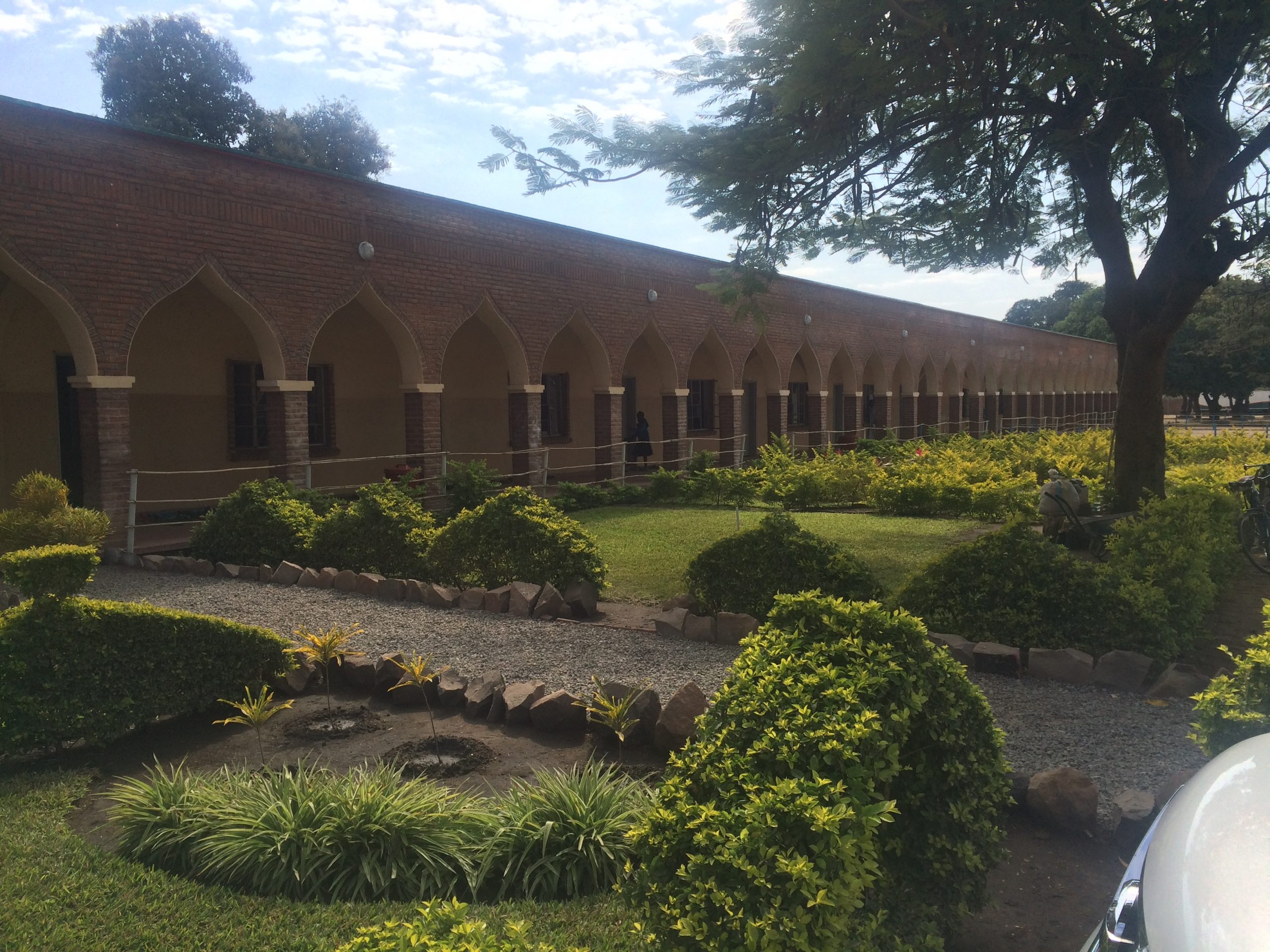
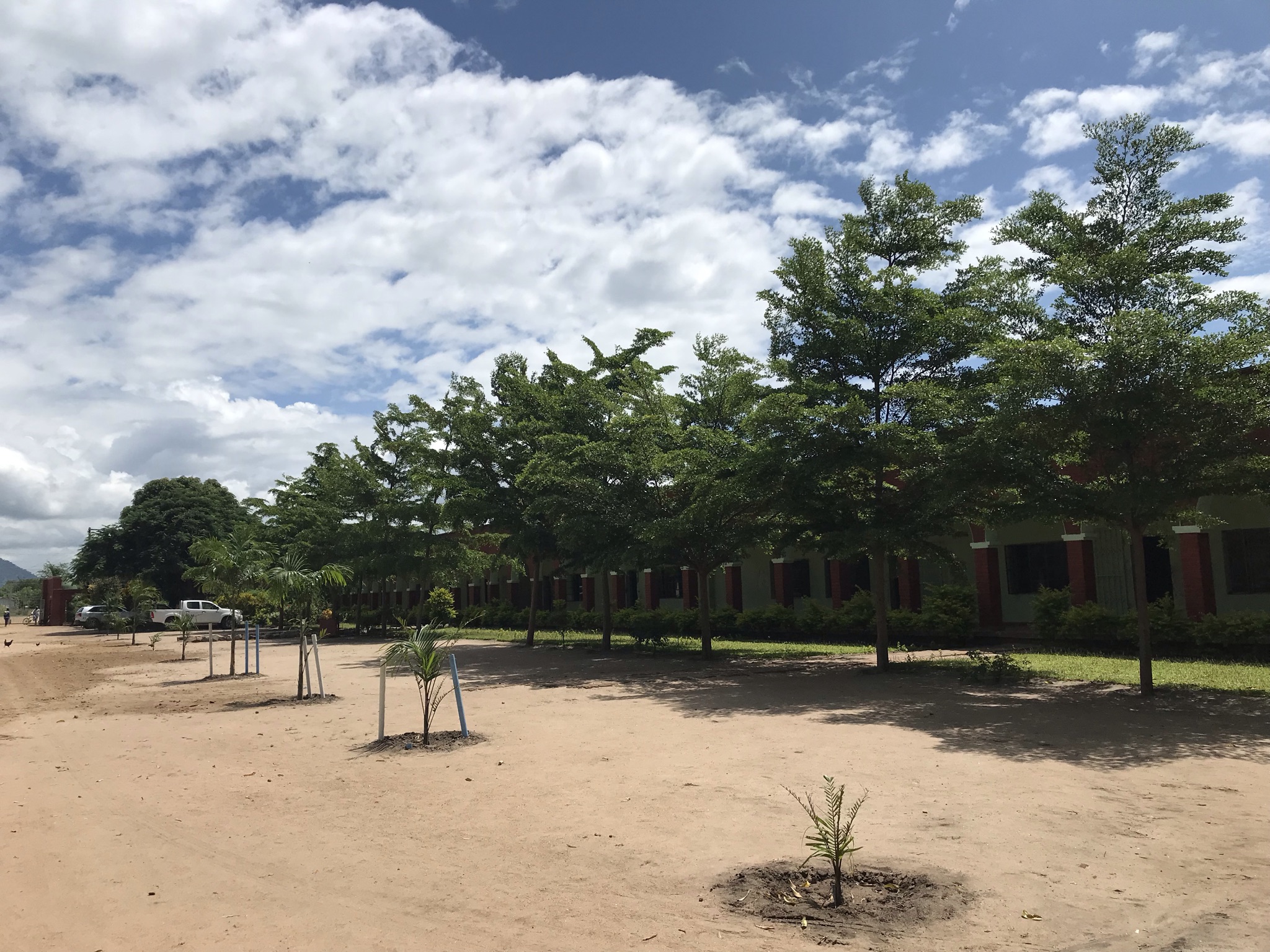
In addition to this, the Centre has established other projects in other locations of Malawi. They include:
- A primary school in Sharpvelle that serves 376 pupils.
- A primary school in Mponda that serves 768 pupils.
- A primary school in Makanjila that serves 814 pupils.
- A network of 33 Maktabs serving 4300 students.
- A borehole water wells program; 1332 wells have been dug to date.
- A Masjid and mobile health clinic in Mvunguti.
- Higher education bursaries.
The organisation employs 240 staff.
Fajr Ṣalāh and Breakfast
Sunrise here is at 5.45am. People do not normally sleep after Fajr Ṣalāh. We perform Fajr Ṣalāh and eat breakfast thereafter, kindly prepared by Mawlānā Riyaz’s wife.
Lake Malawi and Crocodiles
The Centre is located on land neighbouring lake Malawi.


The cottage where we are residing within the Centre’s complex is immediately next to the lake, providing us with some beautiful views. However, it is not possible to enter into the lake here. In January, a local adult was attacked and killed by a Crocodile and his body was rescued the following day from sea. Mawlānā Riyaz was part of the search team that went on boat to rescue the body. They managed to rescue the dead body and also attempted to kill the Crocodile. It is suggested that some crocodiles were released into the lake by someone in recent months.
Meeting with Senior Management
At 7.30am, we meet with the Senior Management of the Centre and the Heads of all the various project areas. The meeting continues until midday.
Son of Christian Parents wants to become Imam
At midday, we visit the dining area where fish and nsima is on the menu. Outside the dining area, we meet a young student whose parents are Christian. In fact, his mother is a senior Police Officer. He enrolled at the Darul Uloom after informing his parents he wants to become an Imam. This must be understood in the context of the active work of Christian missionaries throughout Malawi. May Allah make this young student an ambassador of Islam.
Chambo Fish for Lunch
After Ẓuhr Ṣalāh, Mawlānā arranges lunch which includes the Oreochromis lidole, known locally as the Chambo fish, freshly fished from the Lake and barbecued.
Darul Uloom Lessons Review
In the afternoon, I visit the Darul Uloom classes and review the teaching and learning. Here, the curriculum is taught in Chichewa in its entirety. Some Darul Ulooms like the one in Zomba run by Mawlānā Junaid teach some books in English. At Mehboob, there are two periods after Fajr Ṣalāh for the Islamic classes, this is followed by school until midday. The remaining periods for the Islamic classes take place after Ẓuhr Ṣalāh until ʿAṣr Ṣalāh.
Later in the evening, we visit the homes of some medical professionals on the other side of the Lake Shore Road, which were built by the Centre. These medics work at the Mehboob OPG Centre.
The evening concludes with dinner prepared by Mawlānā’s wife in addition to barbecued Chambo fish.
Day 3 – Wednesday 30 March 2022
A unique project in Mvunguti
Additional observations at Mehboob Memorial Centre
Immediately after Fajr Ṣalāh, at 5.45am, we visit the Ḥifẓ class. To date, 15 pupils have completed the memorisation of the Quran at the Centre.
This is followed by visits to the hostel and the newly built multipurpose hall, which is used for Ṣalāh as well as examinations. There are also plans to build new kitchen facilities here, enabling the hall to also be used for dining.
Meeting with Darul Uloom teachers
At 6.30am, we meet with the Darul Uloom teachers and discuss some of our lesson observations from the previous day. Various areas of improvement are discussed. The teachers promise to submit an improvement plan.
Mvunguti
At 8.15am, we leave the Mehboob Memorial Centre and head north to Monkey Bay. The plan is to visit Mvunguti village, which is not accessible by road despite being on mainland. There are no roads to the village. The boat ride from Monkey Bay takes thirty minutes and the ride is rough despite the boat travelling next to the shore. The scenery is beautiful.
Accompanying us on the boat is the mobile clinic team from Mehboob OPG Clinic, who visit the village once a week. There are 800 patients in the village, they inform me.
As we arrive, I remember visiting this village in 2017. I wrote the following message on my Facebook on 23 July 2017:
“Some pictures of Mvunguti, Malawi. We travel here today via a 30-minute boat journey. It is mainland but there are no roads to this remote area. When we reach, there is no phone network in the area. There are 17 churches in the area. A Masjid has been built here recently which is providing an invaluable service. We listen to children reciting the Quran. May Allah reward all those who are involved.”
In 2017, the Masjid construction was in the final stages. The following are some pictures from 2017.
Today, the Masjid painted green is now complete.
I suggest to add a minaret so that it is clear from far that it is a Masjid. We meet with the local Imam Ibrahim Yunus who graduated from Mawlānā Ayyub’s institute in Zomba. He explains that of the 500 families living in this village, 70 are Muslim. There are ten students in the Maktab. This is because many families send their children to live in ‘mainland’ Malawi due to the lack of education, health and other facilities here. In 2017, there was no phone network or electricity here. Today, there is electricity and there is network coverage. The establishment of a Masjid here is a unique project.
The mobile clinic team has setup quickly here and the clinic has begun. This is also a unique project. 150 patients are seen in any one day. The medical team from Mehboob bring the regular medicine along with any specific medicine required based on their previous week’s assessments. If someone falls severely ill, they have to travel by boat to reach ‘mainland’. Many cannot afford the cost. The local female leader who is not a Muslim is deeply appreciative of the mobile clinic. She has one request: Please establish a permanent clinic here.
Mehboob Primary and Secondary Schools
The return journey on the boat is much more challenging. The water is rough.
From Monkey Bay, we return to Mehboob Memorial Centre at 11am and observe some lessons in the Mehboob Primary and Secondary schools. The curriculum here is the national curriculum of the country which leads to the Malawi School certificate of Examinations (MSCE).
Mawlānā Junaid of Zomba
Al-Ḥamdulillāh, my dear friend Mawlānā Junaid has arrived from Zomba. Mawlānā is a graduate of Darul Uloom Zakariyya, South Africa and also studied in Syria for two years. He is from among the leading scholars of the country doing some excellent work in Zomba and surrounding areas. He runs a Darul Uloom and other projects. He has excellent organisational skills and possesses a very good understanding of the country. He is measured and balanced in his approach. I had invited him earlier to join us for the day to review the projects here. He provides some useful feedback including the need for effective external examinations.
Madina Mosque, Mbaluku, Mangochi
At 12.30pm, we visit the KK Hardware Shop in Mangochi and from there visit the Madina Mosque in Mbaluku, Mangochi which requires some repairs. A friend has requested us to visit this Masjid to verify the condition as it is in need of some repairs worth £1000. The Imam at the Masjid, Imam Aufi James is not currently present.
Meeting with Mehboob Secondary and Primary schools’ teachers
After Ẓuhr Ṣalāh and lunch, I meet with the teachers of the Mehboob Secondary and Primary schools at 2.30pm. A fruitful discussion takes place regarding the attainment of pupils and the challenges facing the schools.
Further Darul Uloom lesson observations
At 3.30pm, I join Mawlānā Junaid Ṣāḥib who has been reviewing the teaching and progress of students in the Darul Uloom. Mawlānā understands and speaks Chichewa and is therefore able to appreciate the progress, particular of the earlier years. Mawlānā also runs a Darul Uloom in Zomba. We also visit the Accounts office to review the systems and paperwork.
Meeting with Mehboob Darul Uloom alumni
At 5pm, we meet with the Mehboob Darul Uloom alumni. As mentioned above, to date fifteen pupils have completed the memorisation of the Quran. Of these, eight are present. They confirm they shall be leading Tarāwīḥ Ṣalāh in Ramadan. Some of them are now in ʿĀlim class here or at the neighbouring Umar Faruq Darul Uloom, run by Bilal Trust.
Over the past two years, a total of twenty-one students have graduated as ʿĀlims (scholars) from Mehboob. Of these, eighteen are in attendance. Some are now teaching at the Mehboob Darul Uloom itself, whilst many have been recruited to teach in Maktabs. Some are currently completing their secondary education and one or two have travelled abroad for further studies. One is an Imam in Mangochi and another is active in the field of Daʿwah. Some of them request support for further studies abroad.
Meeting with Darul Uloom Head
At 6.30pm, Mawlānā Junaid and I meet with the Darul Uloom Head Shaykh Abdussalam and discuss ways in which the syllabus and teaching can be enhanced. We also meet with the Head of the Maktabs, Shaykh Hanif.
Dinner
A range of issues are discussed with Mawlānā Junaid over dinner. During Covid, it was tough in Malawi. The medical facilities here are generally inadequate. People travel to South Africa for advance treatment. Many foreigners were stranded in Malawi during Covid and for many months there were no flights. Mawlānā is also responsible for the work of Ummah Welfare Trust (UWT) in the Zomba region and commends their stringent systems and processes. He also makes reference to my Uzbekistan travelogue and expresses his desire to visit the region.
Day 4 – Thursday 31 March 2022
Makanjila (The Road to Makkah)
From Mangochi to Makanjila
At 8am, we leave for Makanjila, which is very close to the Mozambique border. The distance between Mangochi and Makanjila is only 100km. However, the journey takes four hours. The roads are very bad. There are large potholes and, in some sections, large water puddles. The recent flooding has worsened the road condition. In 2017, the journey took three hours. The name Makanjila is originally Makanjira which comprises of two words; Makkah and Njira which means road. This was the route to Makkah al-Mukarramah. Pilgrims would gather and travel from here.
Makanjila Private Primary School
We arrive at Makanjila Private Primary School at midday. This is another project established and managed by the Mehboob Memorial Centre. In 2017, construction was ongoing at the site when we visited. The construction completed in 2018.
Today, the Primary school is operational with 814 students, which includes more than 100 non-Muslims. In the afternoon, there is a vibrant Maktab operating serving 700 pupils. This area is unique because along with the extreme poverty, the majority are Muslims. The religiosity of the people is clearly visible. Some girls within the school wear the Niqab, the face veil. There is gender segregation with different classrooms for males and females respectively. This is also better from an education perspective. Single sex schools perform better than their counterparts in the UK and elsewhere.
We visit some of the classes and ask pupils questions regarding their secular and Islamic education.
During lunch break, we meet with the seven Maktab staff and enquire about their well-being. Salaries are generally nominal in Malawi. A Maktab teacher can earn anything between £50 and £80 a month. We have some donations with us and distribute 10000 Kwachas (£10) to them.
Makanjila is a remote village and reaching here is not easy. Projects in such locations are most deserving where most charities do not reach. This project is therefore commendable notwithstanding the challenges.
Return journey to Mangochi
At 1.30pm, we begin the return journey to Mangochi. We had planned to meet some residents in the Makanjila village; however, we are informed that it may rain. It is therefore advised to begin the return journey otherwise it could become difficult to return. During the return journey, I ask Mawlānā Riyaz to identify poor Muslims on the way so we can distribute 4000 Kwachas (£4) to them. We distribute to many people throughout the journey. They are rejoicing, it is Eid for them not least because it is totally unexpected. This is totally unplanned. Allah Almighty is the one who provides.
Water Wells
On our return journey, we come across many wells dug by Ummah Welfare Trust (UWT) and stop at one of them. UWT has two borehole machines in Malawi managed by Mehboob Memorial Centre. To date, 1332 wells have been dug as mentioned above. The cost of one borehole is £1300. If this was contracted to an external company, the cost would exceed £3000.
Distribution of funds in the Mangochi area
We return to Mangochi at 5.45pm and head to a local village Fundi, which 12km from Mangochi town. Earlier in the day, I had requested Mawlānā Riyaz that we have some funds which we would like to distribute personally. Al-Ḥamdulillāh, within 2-3 hours, he made the arrangements for the distribution. We begin with Fundi, where we distribute 4000 Kwachas (£4) to 150 people. Hundreds of people have gathered because the 150 people were selected earlier and given a token. The news has spread. One has to be extremely cautious when doing cash distributions.
Our next stop is Kugumbe village where we distribute the same amount to 100 people. From here, we head to Nasenga where we distribute to 200 people. This is followed by Timbuka where we distribute to 100 people. The final stop is Aminas where we distribute to 150 people. £4 means a lot to people here.
We eat dinner in the Sun & Sand restaurant and thereafter return to Mehboob Memorial Centre and rest for the evening.
Day 5 – Friday 1 April 2022
Visit to Zomba, the birthplace of my father
Early morning start
It is an early morning start at 6am, as we have a few important meetings before departing from Mehboob Memorial Centre. We begin by meeting Shaykh Hanif, the Maktabs coordinator and discuss various issues including the need to have a 1:50 teacher-student ratio as a maximum.
At 6.30am, we meet with Mawlānā Riyaz and the Financial Coordinator brother Tindiko. At 7.30am, we visit the library which needs expanding and also meet with the Water Wells manager, brother Isaac.
Mehboob OPG Clinic and Maternity Centre
At 8am, we visit the OPG Clinic established by the Mehboob Memorial Centre in 2017. When we visited in 2017, the clinic had just begun. Today, it is fully functional with 27,000 people benefiting annually. To date, it has served 124,000 people. I meet with the staff and discuss a range of issues and concerns.
Neighbouring the OPG Clinic is the Maternity Centre. In 2017, this building was under construction. It became operational in 2021. 700 births have been delivered to date. There is, however, a need for a theatre therein for complex deliveries.
Both the OPG Clinic and Maternity Centres are clean and organised and the service is provided for free. Patients who can afford the medicine are requested to pay; this is only for the medicine.
Mponda Primary School
We depart from Mehboob Memorial Centre at 9am and head south towards Zomba. On route, we make a brief visit to the primary school established by Mehboob Memorial Centre in Mponda which serves 768 pupils and also provides Maktab education in the afternoon.
Aboo Bakr Siddik Girls Academy, Ulongwe
We are now heading to Zomba. The distance between Mangochi and Zomba is 125km. It is a two-hour direct journey. At 10am, we stop to visit the Aboo Bakr Siddik Girls Academy, which is run by ASUM (Association of Sunni Madrassahs) in partnership with a Turkish organisation. The Academy serves 100 girls.
Arrival into Zomba
We arrive into Zomba at 11.30am and are welcomed by a demonstration on the main road. People are protesting about the rising living costs and the economic situation. This delays us. Mawlānā Junaid is waiting for us at a local petrol station.
As mentioned above, Zomba was Malawi’s capital during colonial rule. The British colonial past is evident in the architecture. The city lies at the foot of the Zomba Plateau, which has forest trails, waterfalls and sweeping views over the surrounding plains. The plateau is home to baboons, giant butterflies and raptors.
At 12.15pm, we arrive at a local guest house where I resided in 2017, prepare for Jumuʿah Ṣalāh and head to the main Masjid of Zomba, which was rebuilt by my grandfather in 1962 and in which my father undertook his early studies before migrating to the UK.
My grandfather Haji Ahmad Ismail
My grandfather Haji Ahmad Ismail was locally known as Ahmad Bapu and many people continue to remember him with this name. He was not a scholar but was very fond of the scholars and had a close relationship with ʿAllāmah Shabbir Ahmad Uthmani (d. 1369/1949) and Mawlānā Badr Alam Mirti (d. 1385/1965). At some point in the early 1940s, he migrated from our ancestral village of Jogvad in Gujarat, India to Malawi and settled in Zomba. This was a time when there were hardly any scholars in Malawi. Thus, although he was not a scholar, he taught Islamic classes and was the lead responsible in the Masjid. He led the rebuild and expansion of the Masjid in 1962. There was no minaret in the previous structure, so this was also added. He was also involved in the construction of the Masjid in Jogvad during one of his visits to India. In Zomba, he also established a business from which various goods were sold including Islamic books. He travelled to Saudi Arabia several times and also visited Masjid al-Aqsa. He was very courageous.
Several years after arriving in Zomba, Haji Bapu came from Pakistan in 1947 and became the Imam of the Masjid. Both worked closely together.
My respected father was born in Zomba on 11 May 1957 and migrated to the UK in 1969 for studying purposes. My grandfather and other members of the family also migrated a few years later in 1976 and settled in the UK. There was an option at the time to migrate to Saudi Arabia and acquire Saudi citizenship but UK was chosen eventually.
My grandfather passed away on 10 December 1988, ten days after my birth. I was born at home and he was extremely worried about me and made lots of supplications. My father always lived with my grandparents and continues to reside in the same house in Blackburn. The house has been visited by many luminaries, some alive and some deceased. For the record, they include: Mufti Mahmood Hasan Gangohi (d. 1417/1996), Shaykh Muhammad Yunus Jownpuri (d. 1438/2017), Sayyid Mawlānā Asad Madani (d. 1427/2006), Mawlānā Abdul Halim Jownpuri, Mufti Abdul Aziz, Mawlānā Salimullah Khan (d. 1438/2017), Mawlānā Yusuf Ludyanwi (d. 1421/2000), Mufti Saeed Ahmad Palanpuri (d. 1441/2020), Shaykh Muhammad Alawi al-Mālikī (d. 1425/2004), Dr Mawlānā Adil Khan (d. 1442/2020), Mawlānā Talha (d. 1440/2019), Shaykh Abdul Hafiz Makki (d. 1438/2017), Sayyid Mawlānā Muhammad Salman Mazahiri (d. 1441/2020), Mawlānā Abdullah Kapodrawi (d. 1439/2018), Shaykh Yusuf Motala (d. 1441/2019), Mufti Muhammad Taqi Usmani (b. 1362/1943), Mawlānā Arshad Madani (b. 1360/1941), Mufti Ahmad Khanpuri (b. 1365/1946), Shaykh Nizam Yaquby (b. 1378-9/1959), Mawlānā Mahmood Madani (b. 1383/1964), Mufti Muḥammad Salman Mansurpuri (b. 1386/1967) and others.
Zomba Masjid
The Zomba Masjid was originally built in 1925 as some pictures on display in the Masjid illustrate.
In 1962, it underwent a substantial renovation and expansion led by my grandfather. I visited the Masjid in 2017 and posted the following on Facebook with some pictures:
“Pictures of the main Zomba Masjid in Malawi built in 1962 by my grandfather Haji Ahmed Ismail locally known as Ahmed Bapu. He was extremely close to Mawlānā Badr Alam Mirti. A remarkable structure built without a plan. Not a single window has had to be replaced since. Even the gate to the Masjid has not been replaced. The first Tabligh Ijtima out of India took place here in the 60s. May Allah elevate his status and grant him Jannah.”
We arrive at the Masjid at 12.30pm. Mawlānā Junaid informs me that some windows in the ablution area have been replaced recently, otherwise most of the windows are from 1962. A Black Malawian scholar is delivering the pre-Khuṭbah speech. This would have been unimaginable in Haji Bapu’s era! Mawlānā Junaid requests me to lead the Jumuʿah Ṣalāh. Most of the locals are Shāfiʿīs.
After Ṣalāh, I do not undertake any congregational Duʿāʾ. Later, a thought crosses my mind that maybe I should have done it. However, Mawlānā Junaid confirms that this is perfectly fine because there is no iltizām of it in the Masjid. My personal view is that congregational Duʿāʾ after Ṣalāh has no basis in the Sunnah and should be avoided. I have discussed this in a standalone answer and also in my book ‘al-ʿIqd al-Thamīn fī Ḥubb al-Nabī al-Amīn ﷺ’ (p. 273). However, in such countries where there is a challenge of Īmān and Kufr, if it is being practiced, a visitor should approach the issue with wisdom and consider the wider implications and challenges.
Ḥāfiẓ Walī’s sons and Ḥajī Bashīr
After Jumuʿah Ṣalāh, we meet with Ḥāfiẓ Walī’s sons Aziz and Ḥāfiẓ Saeed. Ḥāfiẓ Wali Raḥimahullāh was one of my father’s Maktab teachers.
We also meet with Haji Bashir, my respected father’s childhood friend. He is a charismatic jovial person. He reminds me that he visited UK in 2005 and partook in the congregational Tahajjud Ṣalāh at Darul Uloom Bury which I and my elder brother led. He recollects his childhood. He would play football and cricket with my father, who was very intelligent from a young age, he recalls. He explains that my grandfather played a key role in the building of the Masjid in 1962, he would personally climb up the minaret and supervise the work. He studied by my grandfather, who would eat Pān. He suggests that my grandfather’s zeal and passion has had its effect on the children and grandchildren.
Lunch at Mawlānā Junaid’s House
Mawlānā Junaid Ṣāḥib, as usual, has prepared a feast. Fish and Chips is on the menu along with the traditional Akhni dish. Mawlānā’s right hand colleague, Mawlānā Sheraz Ṣāḥib also joins. We had a memorable time together in 2017. Mawlānā’s barbecued prawns remain a fresh memory and, as he will be reading this, will remain Qaḍāʾ for a future trip.
Our plan was to leave immediately after lunch as we have a busy schedule. However, we are unable to leave as the demonstration is close by. Mawlānā Sheraz gets a phone call as tear gas has reached the Masjid compound. Al-Ḥamdulillāh, no one is harmed. Asians have to be more cautious; their businesses are impacted more by such demonstrations.
Janāzah Ghusl Facility
At 3.20pm, we arrive at Madrasah al-Noor, run by the World Association Friends of Africa (WAFA). The compound is also home to Zomba’s Ghusl facility which is the main purpose of visiting the place. Many parts of Malawi do not benefit from such facilities. People bathe the deceased in their homes.
Our Zomba Residence
Our next stop is the Zomba Private Primary and Secondary School. On route, we stop at the IMCO Wholesalers shop which was my grandfather’s shop and residence, which I understand was sold for a mere 2000 Kwachas (a few hundred pounds) when they left Malawi. On my previous visit in 2017, we visited the inside including the rooms behind the shop where my father and the siblings resided.
Zomba Private Primary and Secondary School
The Zomba Private Primary and Secondary (ZPPS) school is located next to the Masjid. It is a fee-paying school; the fees are £280 per term. There are 155 students between the ages of 3-15, the average class size is 15 pupils. The school offers the Cambridge curriculum. We meet with the Indian Headteacher, Raj who has been residing in Malawi with his wife for seven years. He is currently completing his doctorate and has twenty years of experience in the education sector. He led the conversion to the Cambridge curriculum in 2019.
Zomba Mental Hospital
At 4.10pm, we visit the Zomba Mental Hospital. The hospital serves 350 patients and employs 200 staff.
Anjuman Himayatul Islam
Our next stop is the headquarters of Anjuman Himayatul Islam which is home to a Darul Uloom run by Mawlānā Junaid Ṣāḥib.
The Darul Uloom currently serves 92 students and offers the full ʿĀlim course. As mentioned above, some of the books are taught in English whilst others are taught in Chichewa. There is an emphasis on the quality of education. We arrive at 4.30pm and Mawlānā requests me to say a few words to the students. We also visit the library which is in a rented building.
There is a land within the complex and the plan is to construct a building to house the Darul Uloom and the other activities of the organisation. Mawlānā requests me to make Duʿāʾ at the land. May Allah grant the means to bring this project to fruition and completion.
In addition to running a Darul Uloom, the Anjuman is running many other projects. They include the 30 Maktabs that provide Islamic education to 3500 pupils. Other projects include Masjid construction, house construction, seasonal projects like Iftar and Qurbani. Ummah Welfare Trust is a key partner of the Anjuman. The Anjuman’s total annual budget is £1 million.
The Prison Project
A unique project run by the Anjuman is the Prison project. In 2017, I had the honour of visiting the Zomba Prison with Mawlānā Junaid Ṣāḥib and experience first hand the impact of the Anjuman’s intervention. The Anjuman is regarded as the official Muslim organisation for all matters related to Islamic affairs and the Muslim prisoners. Imams are provided and trained by the Anjuman. Mawlānā informs me that sometimes an Imam is selected and trained from within the prisoners. The Anjuman liaises with the prison authorities in relation to Ṣalāh, Islamic education along with Halal food and related matters. Al-Ḥamdulillāh, this work started with the Zomba Prison. Today, the Anjuman has similar arrangements with six prisons in total.
Al-Falah Institute
At 5.15pm, we arrive at the Al-Falah Institute which serves 105 girls, predominantly orphans. The organisation also runs 45 Maktabs which serves 2500 pupils along with a vocational centre where ladies are taught sewing alongside Islamic education.
The Institute was founded by Mawlānā Ayyub Ṣāḥib who I met in 2017. He passed away on 18 August 2020 (9 Muḥarram 1440). He was a humble down to earth person. We meet his sons and son in laws and offer our condolences.
Zomba Pleatau
A visit to Zomba is incomplete without visiting the Zomba Pleatau. In my 2017 visit I recall visiting the beautiful water spring at the top and eating some strawberries there with Mawlānā Junaid and Mawlānā Sheraz. I also took a short clip which I had tweeted:
https://twitter.com/ibn_shabbir/status/890540392923398144?s=20&t=FVT56pJVAf-9itFq01SHWA
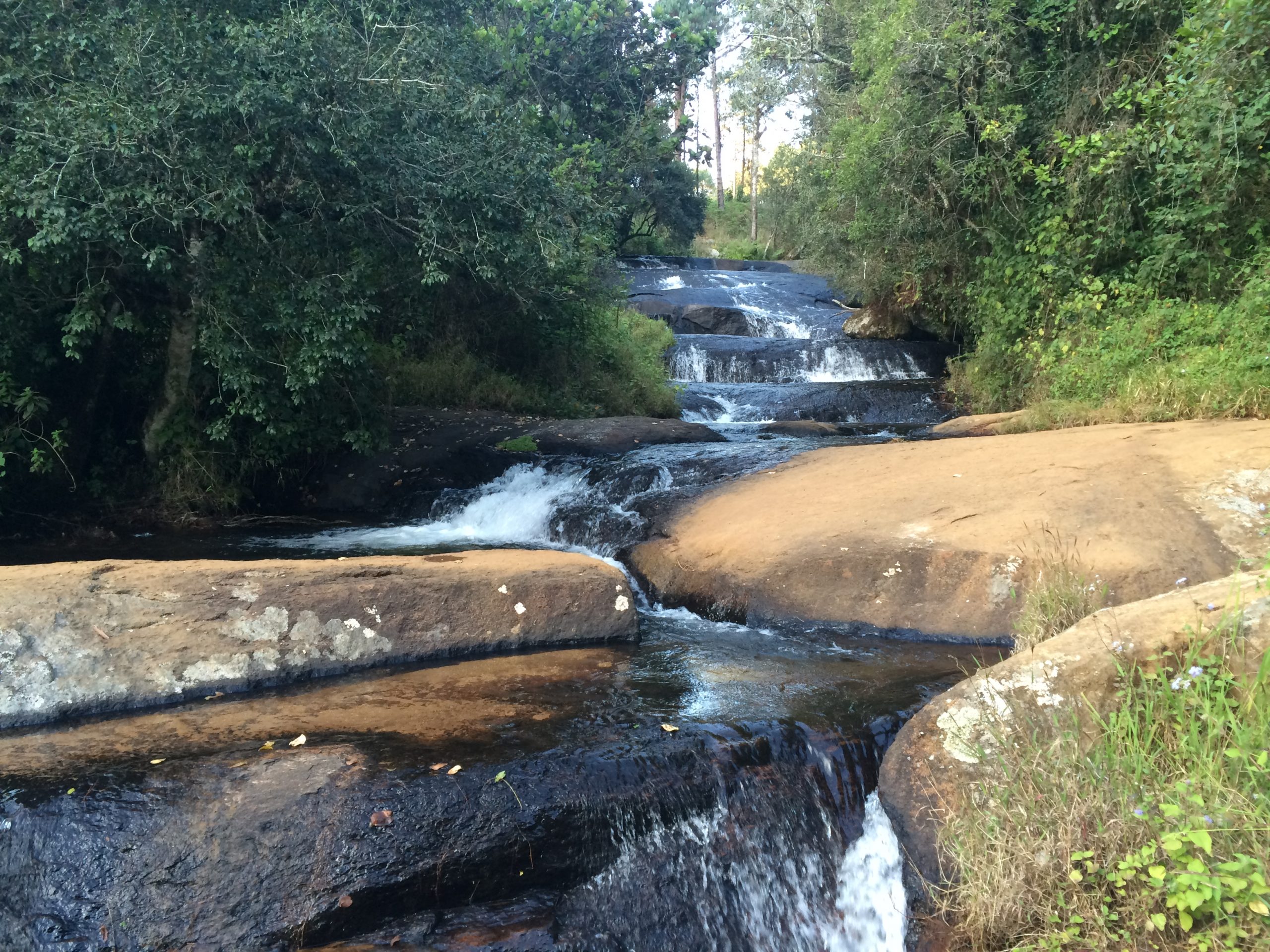
Time is tight as we have to reach Limbe. However, I request both to ascend the Pleatau. The scenes are breath-taking. We visit the reservoir, but do not go all the way to the top due to shortage of time.
Moonsighting
The time for sunset is close and it is 29 Shaʿbān. As was expected, Saudi Arabia has announced the beginning of Ramadan and once again there is chaos in the UK. There is simply no justification for Masjids in the UK to follow Saudi Arabia in moonsighting. This is why no reputable Darul Ifta of the UK is willing to issue a Fatwa endorsing the Saudi moon sighting. Relying on a Fatwa dated more than three decades ago is no longer tenable. The jurisprudential and scientific debate aside, Muslims of the UK and other countries have been visiting the blessed cities of Makkah and Madīnah in huge numbers. Is there any example from the past two decades when the moon was sighted in these blessed cities by the masses? If not, why not? This is precisely why the Ḥanafī jurists stipulated the condition of Jamm Gafīr (large group) for the Ramaḍān and Shawwāl moon if the horizon is clear despite this condition not being mentioned explicitly in the Quran and Sunnah. The Ḥanafi condition is fully appreciated in the context of this fiasco. If all British Muslims were united on following Saudi Arabia, this may have been tolerable. However, this is not the case. Muslims from the same street, and sometimes from the same household, celebrate Eid on different days.
An interesting discussion follows with Mawlānā Junaid and Mawlānā Sheraz as we ascend and descend and try to sight the moon. Generally, there is unity in Malawi and the criteria is local moonsighting. The moonsighting decisions of some neighbouring countries such as South Africa and Mozambique are also considered. In recent years, there was a slight disagreement during the ‘Venus sighting’ issue with some scholar suggesting Qadāʾ of the fast. Personally, there was no need for suggesting Qaḍāʾ. A collective national decision was made based on the sighting.
Mawlānā Junaid is relaxed but is making Duʿāʾ for Mawlānā Arif who is responsible this year to make the final announcement. The responsibility rotates among the scholars of the various regions. Mawlānā Junaid is also sometimes responsible so appreciates the job at hand. It is a challenging task as news of a sighting can come later in the evening from a neighbouring country. The positive is that the Barelwi and Deobandi scholars work together on the issue and there is unity. Contrast this to the UK where scholars from one city from one school of thought are not willing to discuss the issue let alone resolve it.
Zomba Cemetery
We do not sight the moon, and we head towards our final stop in Zomba, the graveyard. My father’s grandfather Ḥājī Ismail Patel is buried here. The precise grave is not known. The late Abdul Hamid Alimahomed’s father Alimahomed is also buried here.
From Zomba to Limbe
It is time to bid farewell to Zomba. At 6.15pm, we head towards Limbe, a neighbourhood next to Blantyre. Mawlānā Sheraz drops off in Zomba just in case there is a sighting reported from the Zomba region and it requires investigation.
Yaqub Bhai Bharuchi’s residence
We arrive at 7pm at Yaqub Bhai Bharuchi’s residence in Limbe and eat dinner. This is where Abdul Rashid Geloo and I resided in 2017. My father has also resided here. At the time, Ismail Bhai Bharuchi, Yaqub Bhai’s brother was alive. Sadly, he passed away during the pandemic. He, like Yaqub Bhai, was very hospitable. Yaqub Bhai is also the country Director of the Blackburn based NGO, Malawi Relief Fund UK.
Meeting with Bilal Trust
At 8pm, we meet with the Trustees of Bilal Trust at the Madina Mosque in Limbe.
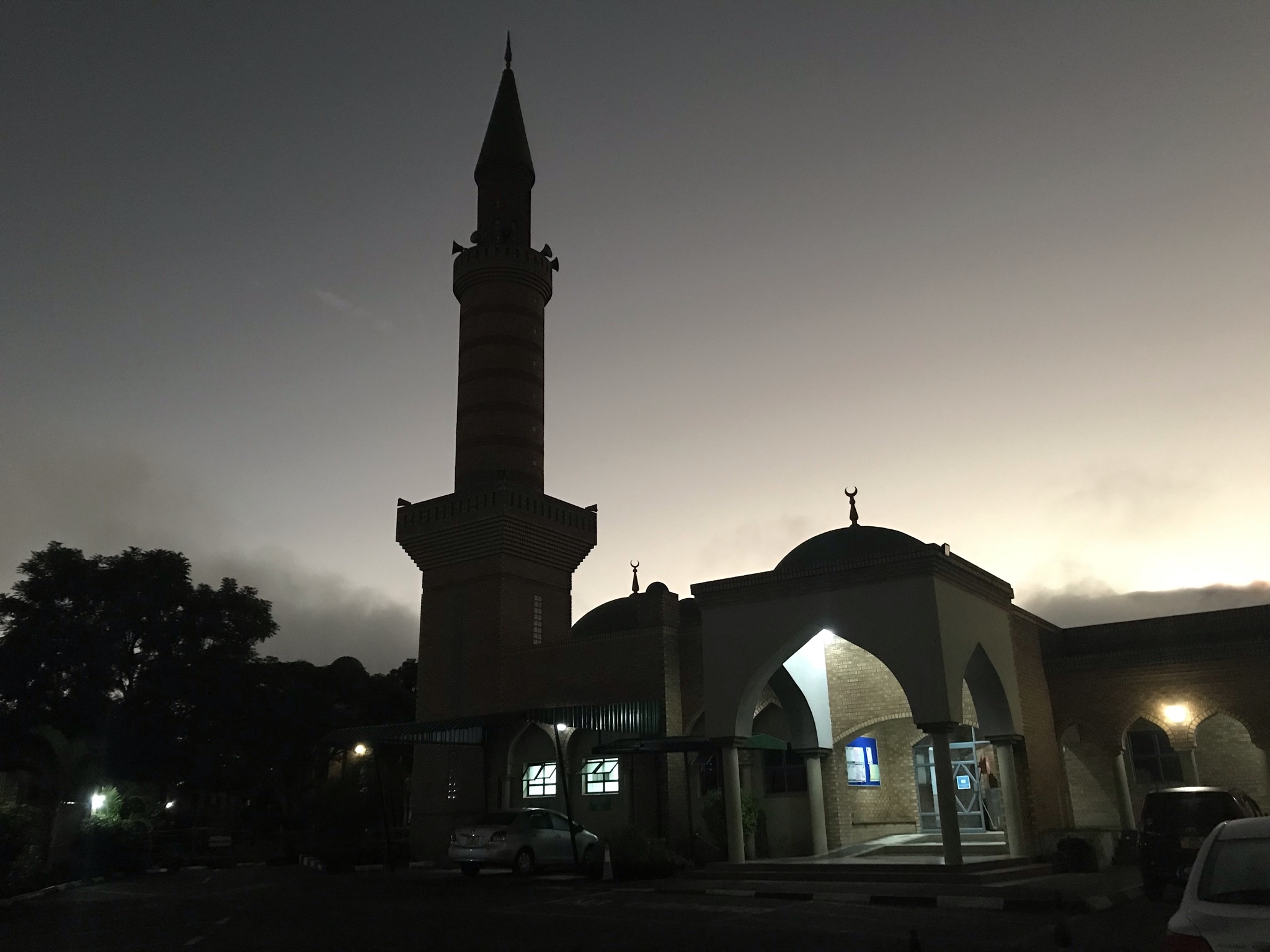
Bilal Trust is from among the largest Muslim NGOs in the country operating 120 Maktabs and two Darul Ulooms. The Darul Uloom based in Limbe is known as Bilal Darul Uloom and the other is the Umar al-Faruq Darul Uloom located near Mehboob Darul Uloom in Mangochi.
The Trust also has a range of medical and education projects and has recently been given the license, via its Iqra University, to deliver university level degree courses in six subject areas. This is a significant achievement.
Before resting for the evening at Yaqub Bhai’s house, we visit Mushtaq Bhai who has experience of running water borehole machines. We also visit the Malawi Relief Fund UK’s office.
Day 6 – Saturday 2 April 2022
Tanweer for the Blind
Madrasah Jamiah Islamiyyah
We perform Fajr Ṣalāh at Madinah Masjid, Limbe and thereafter head to Madrasah Jamiah Islamiyyah, which has provision until ʿArbī Sawm, the third year of the ʿĀlim course alongside a school.
The founder Mawlānā Ahmad Ṣāḥib welcomes us. He graduated from Darul Uloom Kantharia in 1980 and studied for a year in Darul Uloom Deoband. He knows my father since then, as my father was a student in neighbouring Saharanpur. Mawlānā became a Ḥāfiẓ in Malawi under Mawlānā Adam Ṣāḥib of Leicester who was in Malawi then. It was Mawlānā Adam Ṣāḥib who sent him to Kantharia to become an ʿĀlim (scholar).
Mawlānā Ahmad’s son is Mufti Safwaan who is currently abroad. He runs a Darul Iftaa website. He messaged me as soon as he found out I was in Malawi. I was also eager to meet him but this is not possible.
Tanweer for the Blind
At 6.15am, we arrive at the Tanweer for the Blind.
I had received a message yesterday that Mawlānā Riyaz Bhana wishes to meet me. When I enquired about his activities, I was informed that he runs an institute for the blind, which I was not aware of. I inform colleagues that we should visit him at the institute, something I do not regret as this is the highlight of the day. After the visit, I tweet the following:
“Honoured to have visited the ‘Tanweer for the Blind’ Madrasah in Limbe, Malawi which is serving 23 blind boys and 16 blind girls. Brought tears to our eyes. A unique project. May Allah reward the founder Mawlānā Riyaz Bhana and the team.”
This is a unique project with students from all over Malawi. The students use Braille to memorise the Quran and acquire Islamic education. It is my elder brother’s habit to send sweets with me for distribution whenever I visit abroad, and I was thinking about where to distribute it. This is an ideal place. I also have some funds which I give to Mawlānā to distribute to the pupils and staff.
Mawlānā explains that some students come from the villages with only clothes on, with no other belongings. I ask him how long it takes the pupils to learn Braille. He explains that sometimes it takes months, and sometimes it takes two weeks, it varies on a student-by-student basis.
The accommodation is currently on rent and Mawlānā plans to establish a permanent base. May Allah Almighty make it easy.
Bilal Darul Uloom
Our next stop is Bilal Darul Uloom. On route, we meet Shakil Bhai who was involved in the construction of the Makanjila Private Primary School mentioned above.
We arrive at Bilal Darul Uloom at 7.15am and meet with Mawlānā Khurshid Ṣāḥib who is responsible here. There are 144 students within the ʿĀlim class and two Ḥifẓ classes.
We visit the library and thereafter proceed to examine the students of the upper classes on their learning, by making them read the Ḥadīths and asking them questions. An unexpected examination for them.
Breakfast
We return to Yaqub Bhai’s residence at 8am and eat breakfast. There is a lot of blessing in the morning time. It is only 8am and so much has been achieved, al-Ḥamdulillāh. After breakfast, we pack up and head to Yunus Patel’s house to meet his 95-year-old father. He remembers my grandfather.
Meeting with Ḥāfiẓ Faisal Kassam
At 10.30am, we meet with Ḥāfiẓ Faisal Kassam, the Director of the Mai Aisha Trust and Chair of IHAM (Islamic Health Association of Malawi). The Trust is working in a range of areas and in particular education. Some of its schools are Government aided schools. It is possible to establish Government aided schools, wherein the Government pays salaries and some other costs, as long as the location needs a school.
IHAM (Islamic Health Association of Malawi)
At 11.30am, we make a short visit to the office of the Islamic Health Association of Malawi. This is an umbrella organisation for the medical institutes run by Muslims in Malawi to facilitate learning and share best practice. The UK based charity Doctors Worldwide works closely with IHAM.
Blantyre
We leave Limbe and head to Blantyre where we meet Irfan Bhai, a Trustee of Mehboob Memorial Centre. From here, we visit a family friend and thereafter head to the Airport.
Blantyre was once the capital city of the country as mentioned above, and is currently the country’s centre of finance and commerce, and its second largest city. It is also home to the country’s Judiciary. Many Asians live in Blantyre and Limbe.
From Blantyre to Lilongwe
It is time to bid farewell to South Malawi. There is only one regret. Due to shortage of time, I am unable to visit Shaykh Muadh Nadwi. I met him in 2017. He established the first Darul Uloom in Malawi in 1982. He was close to Shaykh Zakariyya Kandhelwi (d. 1402/1982) and Shaykh Abu al-Hasan Ali al-Nadwi (d. 1420/1999).
We arrive at Chileka International Airport at 1.30pm. The building is in a very poor condition. There are many mosquitos. An officer is sleeping at his desk.
The 3pm Malawi Airlines flight arrives slightly late from South Africa. We board and it takes off at 3.30pm. The journey to Lilongwe takes 30 minutes.
Ismail Bhai’s House
Ismail Bhai Architect (mentioned above) collects us and takes us to his house. We shall stay here for the next two nights.
Ramadan begins tonight, so we head to the main Masjid al-Falah in Area 2 Commercial Area for Maghrib Ṣalāh.
Tarāwiḥ Ṣalāh and Bayān
We perform Ṭarāwiḥ Ṣalāh at Masjid al-Falah. The recitation is clear and slow. It takes nearly ninety minutes excluding ʿIshāʾ Ṣalāh. There are no posters featuring the ‘Tasbīḥ Tarāwīḥ’ which is good. It has no basis in the Ḥadīths let alone being a Masnūn supplication in between the Tarāwīḥ Ṣalāh units. After Ṭarāwiḥ Ṣalāh, I deliver a short lecture on Tawbah (repentance).
Dinner
Ismail Bhai has put on a grand dinner and invited some of the prominent scholars of Lilongwe including Mawlānā Salim and Mawlānā Arif. Various issues are discussed including the position of Asians within Malawi. I am surprised to learn of the discriminatory policies against Asians particularly within politics. Other challenges facing the Muslims globally are discussed including the situation of Muslims in India.
Day 7 – Sunday 7 April 2022
Day trip to Chipata, Zambia
Suḥūr
We wake up at 4am for Suḥūr and perform Fajr Ṣalāh at Masjid al-Falah and rest thereafter.
To the Zambia border
At 10.30am, we depart for the Zambia border. Ismail Bhai is driving and Mawlānā Muhammad Chunara is also with us. There are many checkpoints on the way. At most checkpoints, the officers ask for money. Corruption and bribery are endemic here. We arrive at the border at midday. Mawlānā Muhammad has, through his contacts, arranged for a day pass which means we do not have to apply for visa for Zambia nor for re-entry into Malawi. This has made it very easy.
Zambia
We walk over into Zambia. This is my first time in this country. The Republic of Zambia is a landlocked country at the crossroads of Central, Southern and East Africa. Its neighbours are Congo to the north, Tanzania to the north-east, Malawi to the east, Mozambique to the southeast, Zimbabwe and Botswana to the south, Namibia to the southwest, and Angola to the west.
The capital city of Zambia is Lusaka, located in the south-central part of Zambia. The population is concentrated mainly around Lusaka in the south and the Copperbelt Province to the north, the core economic hubs of the country. The country became independent in 1964 from the United Kingdom. It is renowned for the rugged terrain and diverse wildlife, with many parks and safari areas. On its border with Zimbabwe is the famed Victoria Falls plunging a misty 108m into narrow Batoka Gorge.
Mahad al-Rashid Chipata
Lusaka is far from here. However, Chipata is close, and our purpose of visiting Zambia is to visit the Mahad al-Rashid Darul Uloom in Chipata. This Darul Uloom was established by the late Ḥaḍrat Mawlānā Abdurrahim Motala (d. 1434/2012) who served and remained in the company of Shaykh al-Ḥadīth Mawlānā Muhammad Zakariyya Kandhelwi (d. 1402/1982) for sixteen years. It was upon his instruction that he purchased this land in Chipata in 1979. Shaykh Zakariyya visited the institute in 1981 and cried a lot. In 1979, Mawlānā Abdurrahim Ṣāḥib was ridiculed by many, as the common perception was that black Muslims cannot become Ḥāfiẓ or ʿĀlim.
The Darul Uloom is not far from the border. We arrive at 12.30pm. Mawlānā’s son, Mawlānā Abdurrashid Ṣāḥib welcomes us and mentions that in 1982, a black student became Ḥāfiẓ of the Quran and his father Mawlānā Abdurrahim Ṣāḥib dispatched him to Mangochi, Malawi for Tarāwīḥ Ṣalāh. People could not believe that a black African had memorised the Quran, and there was a discussion whether to allow for the entire Quran to be recited in Tarāwiḥ Ṣalāh or not. People thought this was a thing of the past. Eventually this was permitted, and people travelled from far and wide to participate in the Tarāwiḥ Ṣalāh and verify what they had heard. It was regarded alien in this region for African children to memorise the Quran.
Mawlānā Abdurrashid Ṣaḥib explains that Islam came to this region over 1000 years ago. However, the missionary work of the Christians and colonialism had such a negative impact that people became distant from Islamic knowledge. Indian Muslims had been living in Malawi and the region for over 100 years, however, not much attention was paid to educating black Muslims. The thought of having black scholars had disappeared totally. It was Shaykh Muhammad Zakariyya’s foresight and instinct that he sent Mawlānā Abdurrahim Ṣāḥib here, which initiated a revolution here.
The Darul Uloom serves 270 students and plans to expand. It is holiday time so there are only a few students at the moment. The 15-acre complex is beautiful. It is clean and organised. Mawlānā Abdurrashid Ṣāḥib gives us a tour. He is very particular. Everything is well maintained and organised. I did not think that the institute would be as developed and large as it is. Our respected teacher Shaykh Muhammad Yunus Jownpuri visited here for the completion of Ṣaḥīḥ al-Bukhārī several years ago. Prior to this, Mufti Mahmood Hasan Gangohi (d. 1417/1996) visited several times.
Chipata Graveyard
After performing Ẓuhr Ṣalāh and touring the estate, we take leave. Mawlānā Abdurrashid Ṣaḥib insists we stay the night. Time does not permit this. We head to Chipata Graveyard. Chipata is home to many Asians and therefore the graveyard has many graves of Asians and non-Asians. It is here in this graveyard that Mawlānā Abdurrahim Ṣāḥib is buried. A detailed account of his life and his demise is available in the Urdu collection of his younger brother, our respected teacher Shaykh Yusuf Motala, entitled, ‘Mere Bhai Jaan’.
Return to Malawi
At 3pm, we begin the return journey to the border, cross over into Malawi smoothly and return to Lilongwe.
Al-Nasiha Trust
At 5pm, we arrive at the orphanage run by Mawlānā Muhammad Chunara’s Al-Nasiha Trust. This is in Mpingu, 30km from Lilongwe. The orphanage serves 125 orphans and was established in 1990. The Trust also delivers other projects such as water wells and building Masjids.
At 5.45pm, we briefly meet Haroon Sacranie outside his Crossroads Hotel. Haroon Bhai is the Chairperson of ASUM (Association of Sunni Madrassahs).
Tarāwīḥ and Lecture
We return to Ismail Bhai’s house, eat Ifṭār, perform Maghrib Ṣalāh and a short while later proceed to the recently built Masjid Riyad al-Jannah in Area 2 Residential Area.
The Masjid was built by Mawlānā Muhammad Chunara’s family. After Tarāwīḥ Ṣalāh, I deliver a short speech on ‘Do you know what you own?’ and the importance of Waṣiyyah and clarity in dealings. Ismail Bhai suggests after the programme that this was a pertinent and important subject to discuss.
After Tarāwīḥ Ṣalāh, Mawlānā Muhammad Chunara Ṣāḥib has arranged a grand Braai (BBQ) at his residence. Mawlānā Arif and other young scholars are present and a fruitful discussion follows on what it means to be a Deobandi and the selective approach in some quarters.
Day 8 – Monday 8 April 2022
Return to the UK
Packing
At 9am, Ismail Bhai and Mawlānā Muhammad Chunara start packing for me. Mawlānā Salim Ṣāḥib comes to bid me farewell and also gifts some things. Hafiz Ghulam Chunara, who became a Ḥāfiẓ in Darul Uloom Bury (and fell from the window whilst fleeing from Qārī Ṣāḥib!), gifts some Paprika. Ismail Bhai has arranged for a range of items including vegetable, peanuts, peanut butter and much more. Mawlānā Junaid also gifted peanuts, coffee and hot sauce.
Lilongwe Kabrestan (graveyard)
At 10.15am, we head to the Lilongwe Kabrestan. A very dear friend’s grandmother is buried here. Mawlānā Muhammad Chunara explains that during Covid there were 28 deaths in one month, whereas prior to this the average was ten deaths a year.
Water Aid office
At 11am, we arrive at the office of Water Aid and meet with Tiwonge, who is the Head of Funding and Strategic Partnerships.
Water Aid is a UK based global NGO specialising in water. Their annual budget in Malawi is £5 million. The advantage of such organisations is their expertise on specific areas and focus on quality. Ismail Bhai asks whether it is better to dig one borehole (via a machine) for £3000 or dig six wells (dug via hand). An interesting discussion follows.
Lilongwe Airport
We arrive at Lilongwe Airport. Mawlānā Muhammad Chunara has kindly arranged for our boarding passes to be issued via his contacts. He suggests I register on the Ethiopian Airlines’ Sheba Miles scheme as this would increase me allowance from 2 x 23kg bags to 1 x 23kg and 1 x 28kg bags. This is useful.
It is time to bid farewell to Ismail Bhai and Mawlānā Muhammad. Both have been extremely hospitable and these memories will be cherished. Both insist I return with the family. Allah reward and bless them for their affection and generosity. Both went out of their way, and along with them a special gratitude to Mawlānā Arif, Mawlānā Riyaz and Mawlānā Junaid.
As I depart from Lilongwe, I reflect on the 2017 journey wherein we resided at the late Khalid Dodia’s house. He passed away and since then his family moved to Blackburn, with the help of our Abdul Rashid Geloo. Allah Almighty grant him an abode in Jannat al-Firdaws.
Return to UK
Our Ethiopian Airlines flight departs at 1.40pm and with a short stop in Lubumbashi, Congo, we arrive in Addis Ababa at 8.30pm local time. The onward flight to Manchester via Brussels is at midnight.
I arrive into Manchester the following day at 8am.
Concluding thoughts
The colonial project in Africa and elsewhere was not merely political; it was social, economic and religious. Thus, anti-colonial struggles are also religious struggles. This is why the scholars of the sub-continent fought hard against colonialism. In his auto-biography ‘Naqsh Ḥayāt’, Shaykh al-Islam Mawlānā Husayn Ahmad Madni (d. 1377/1957) has documented in detail the impact of colonialism on the sub-continent from all these perspectives.
In Africa, the colonial project enabled Christian missionaries to penetrate Muslim communities and enable mass conversions. In my 2017 visit, I witnessed the Jehovahs Witness annual gathering in Madzedze, Malawi and noted their hard efforts in Muslim areas.
During that visit, we also saw a Christian Missionary Centre and School established deliberately in the Muslim populated area of Namwera.
Al-Ḥamdulillāh, the work of Muslim charities, Tabligh Jamat and Darul Ulooms is now turning the tide although there is much more to do.
In relation to the work of Muslim NGOs, a general observation for Malawi and also for other countries is the need for increased communication and cooperation to avoid duplication. A carefully coordinated and integrated approach can yield greater benefit. As a possible example, an umbrella body for all Muslim NGOs of Malawi could prove invaluable. May Allah unite and protect the Ummah.
Dr Yusuf Shabbir
18 Shaʿbān 1443 / 21 March 2022

